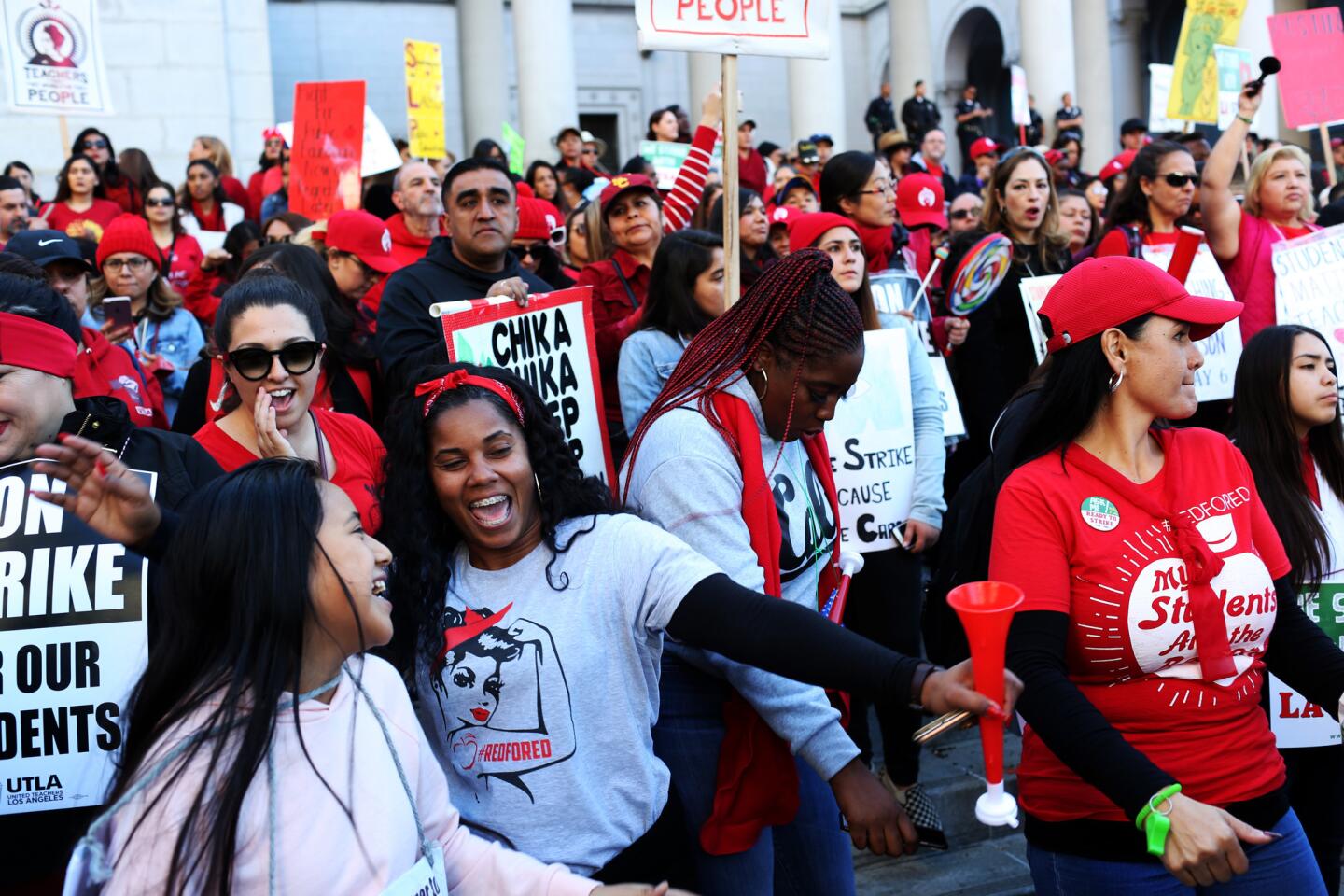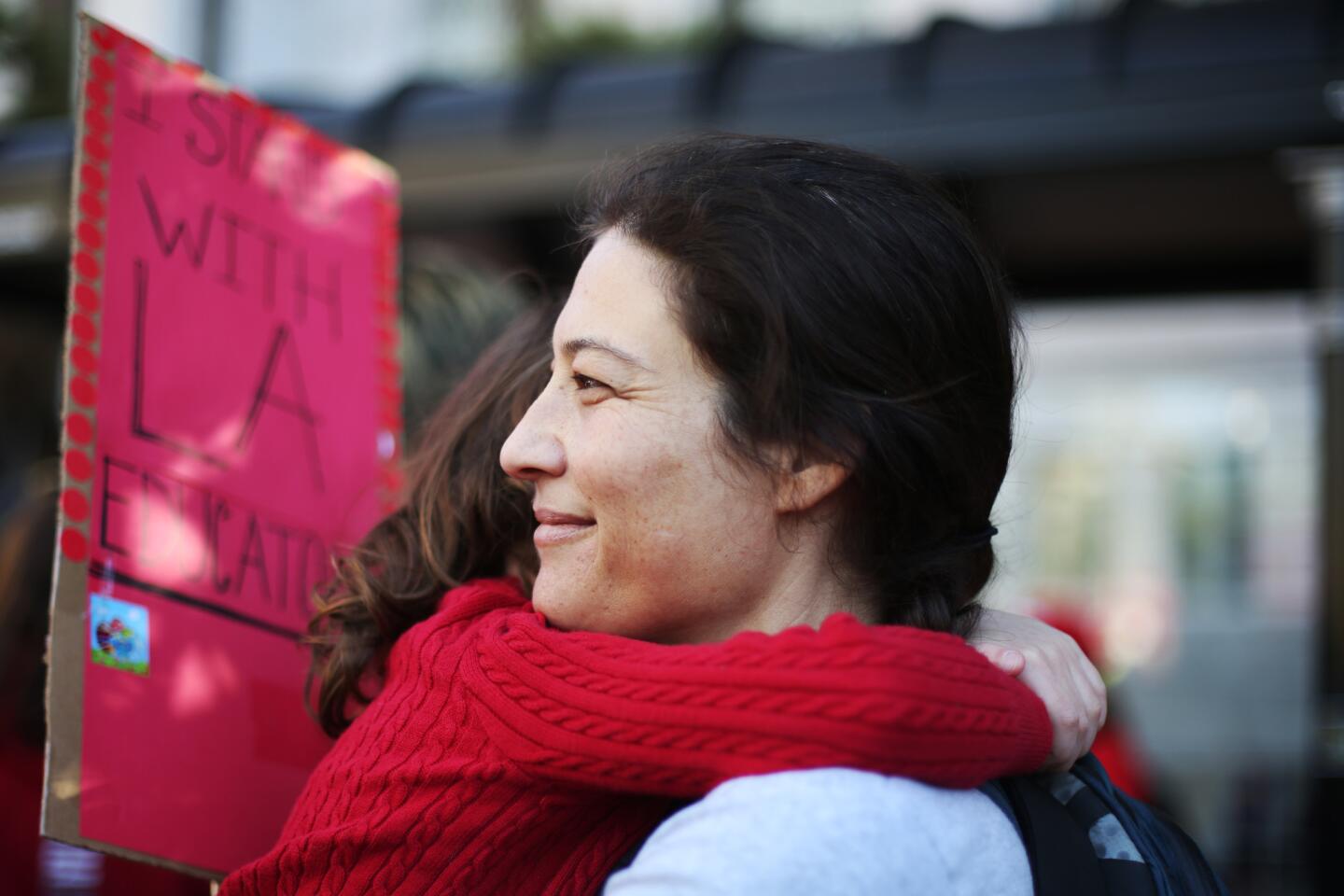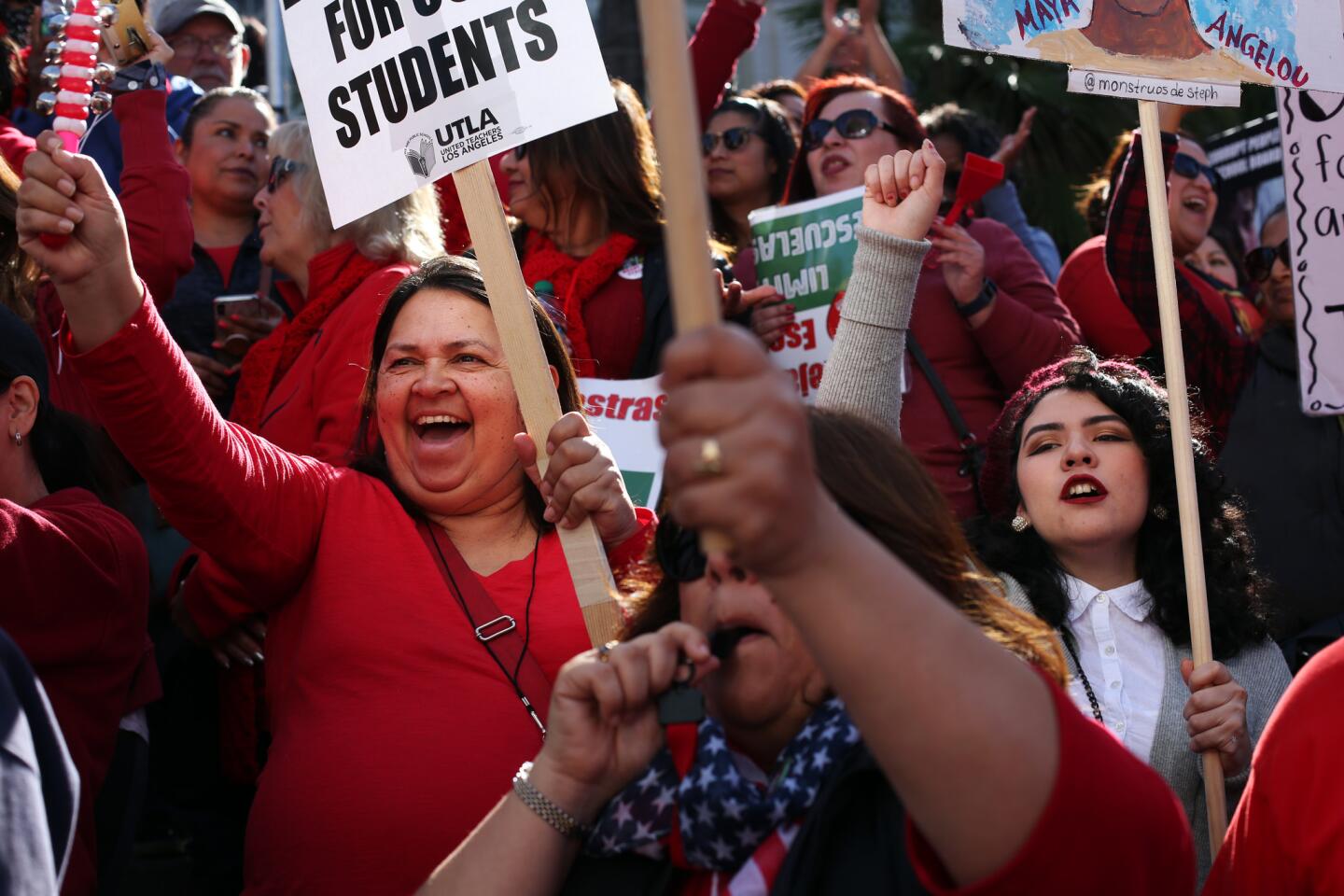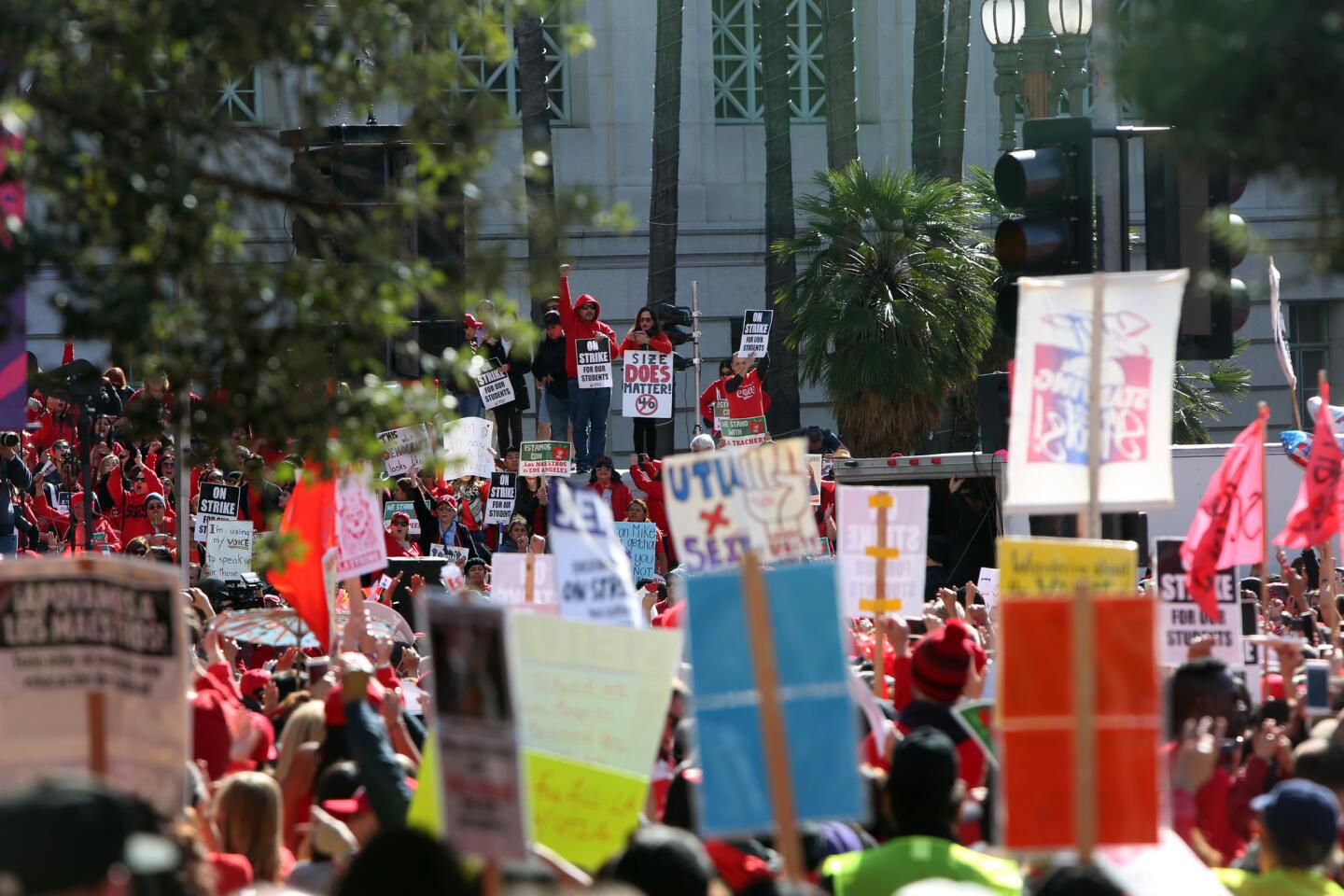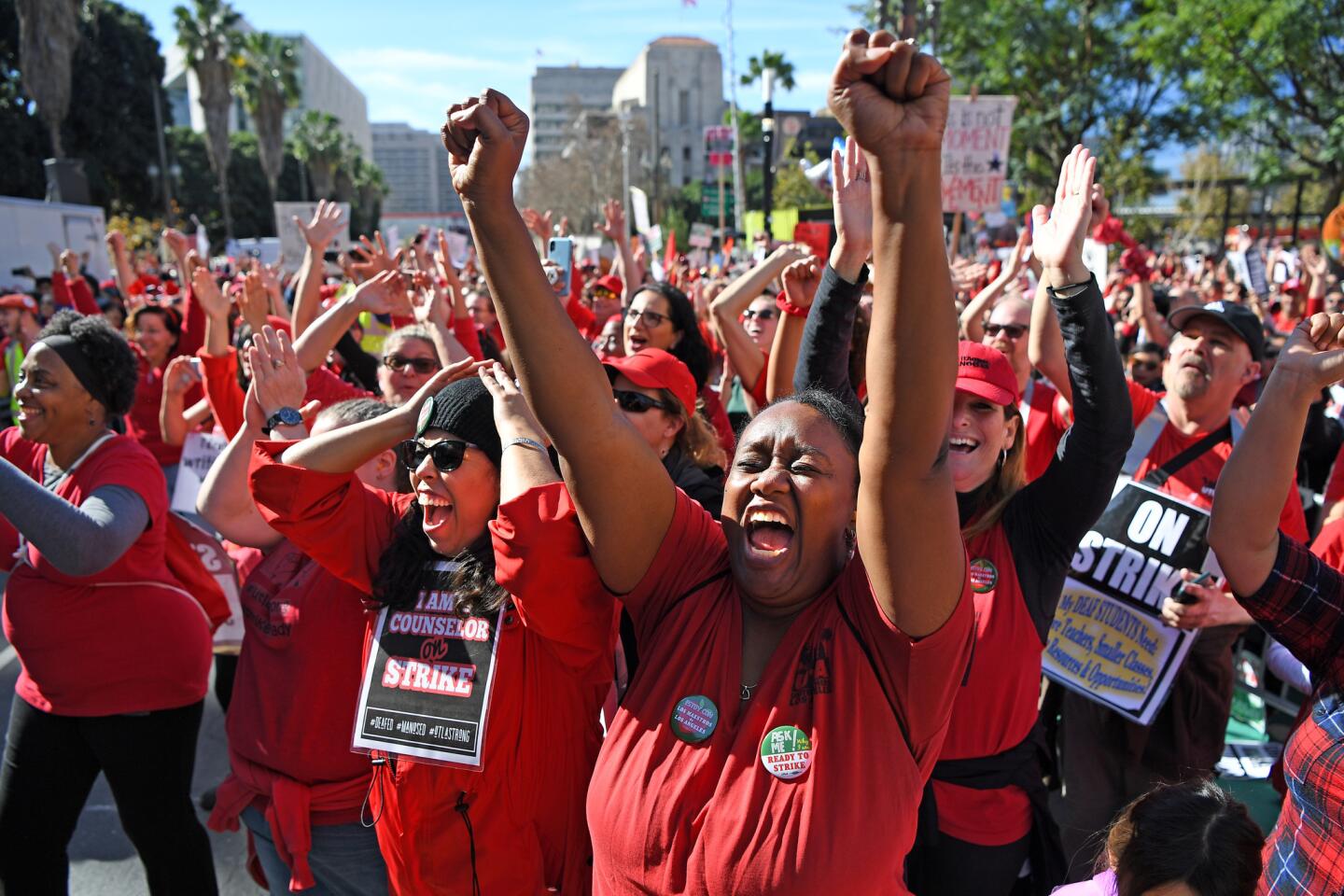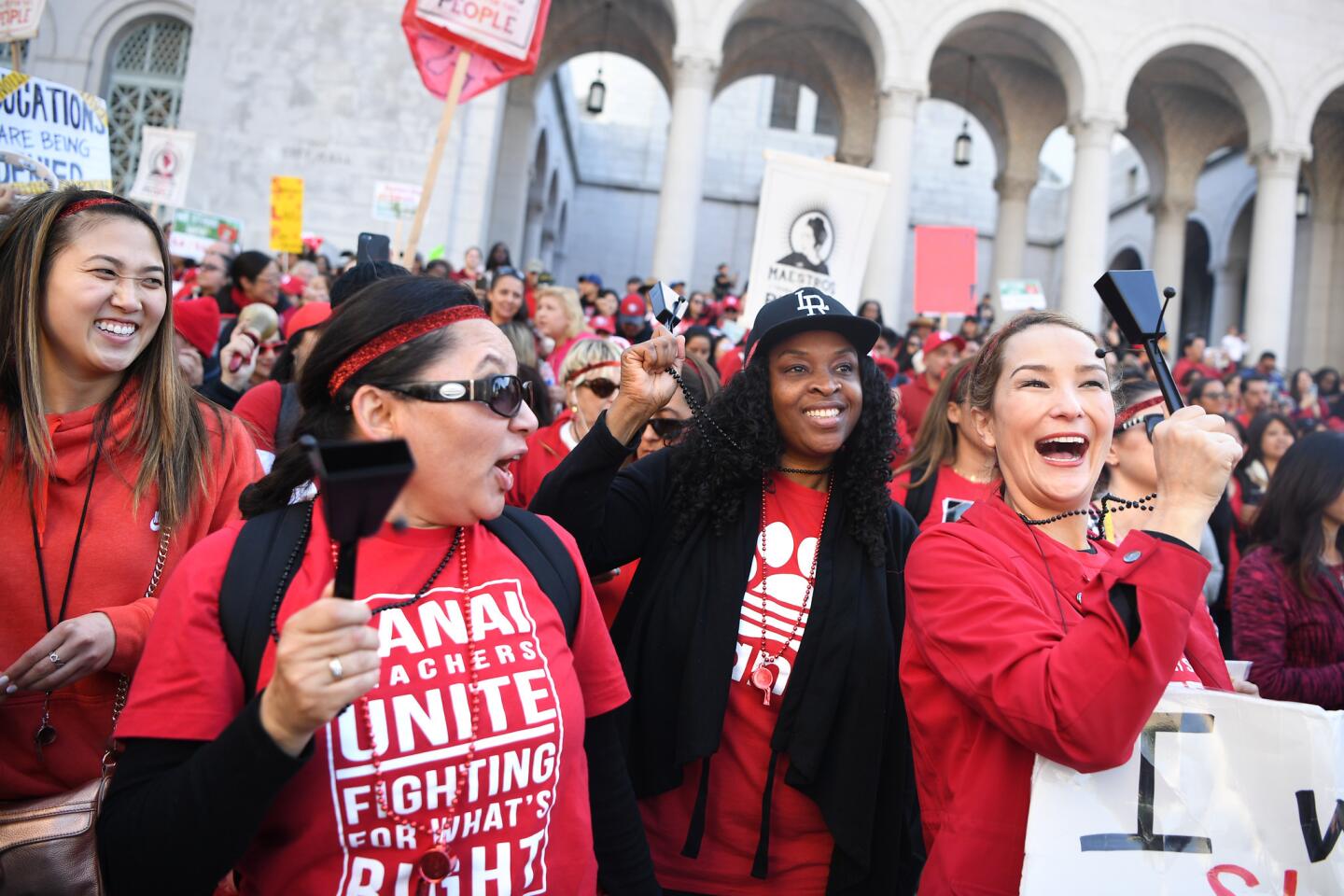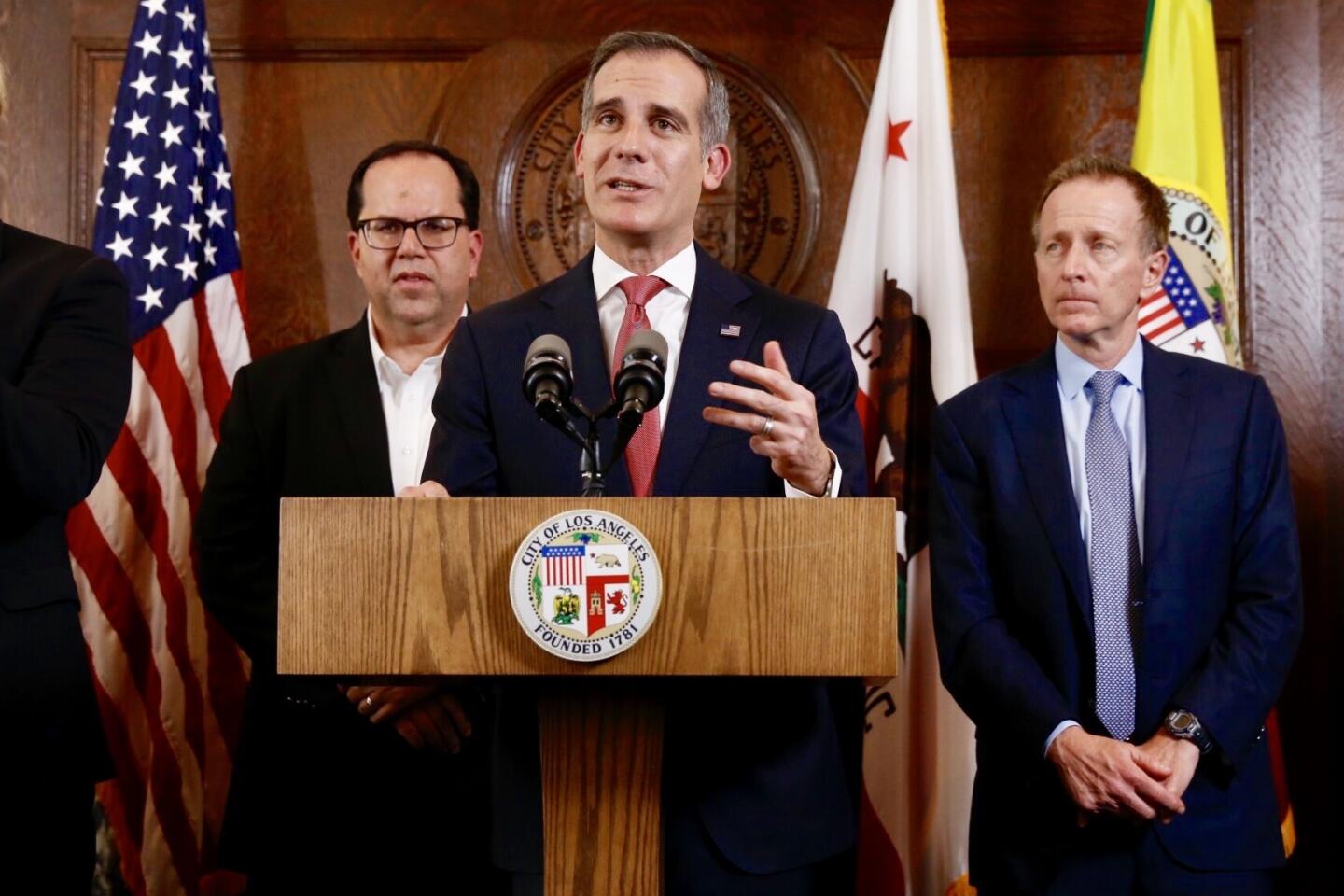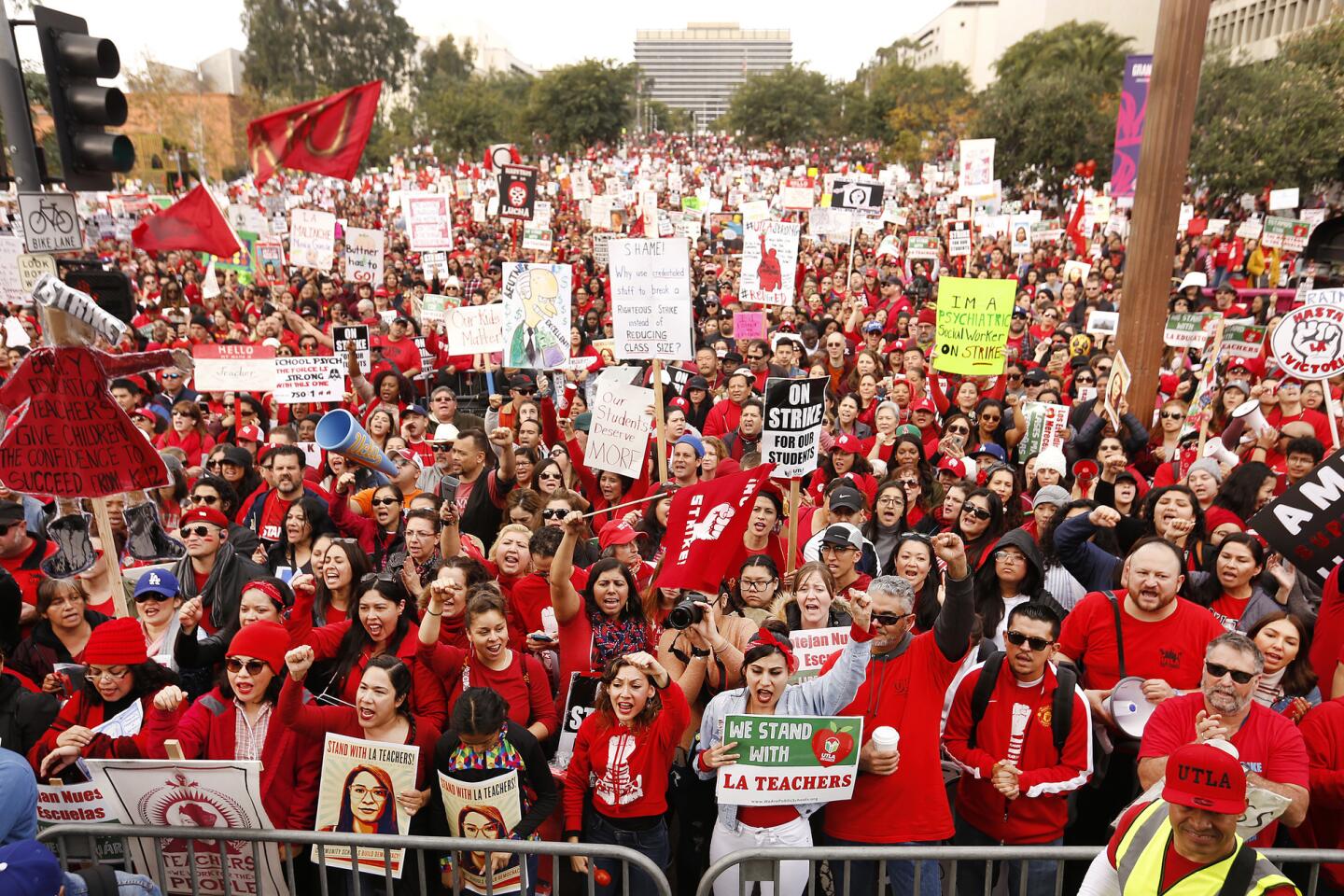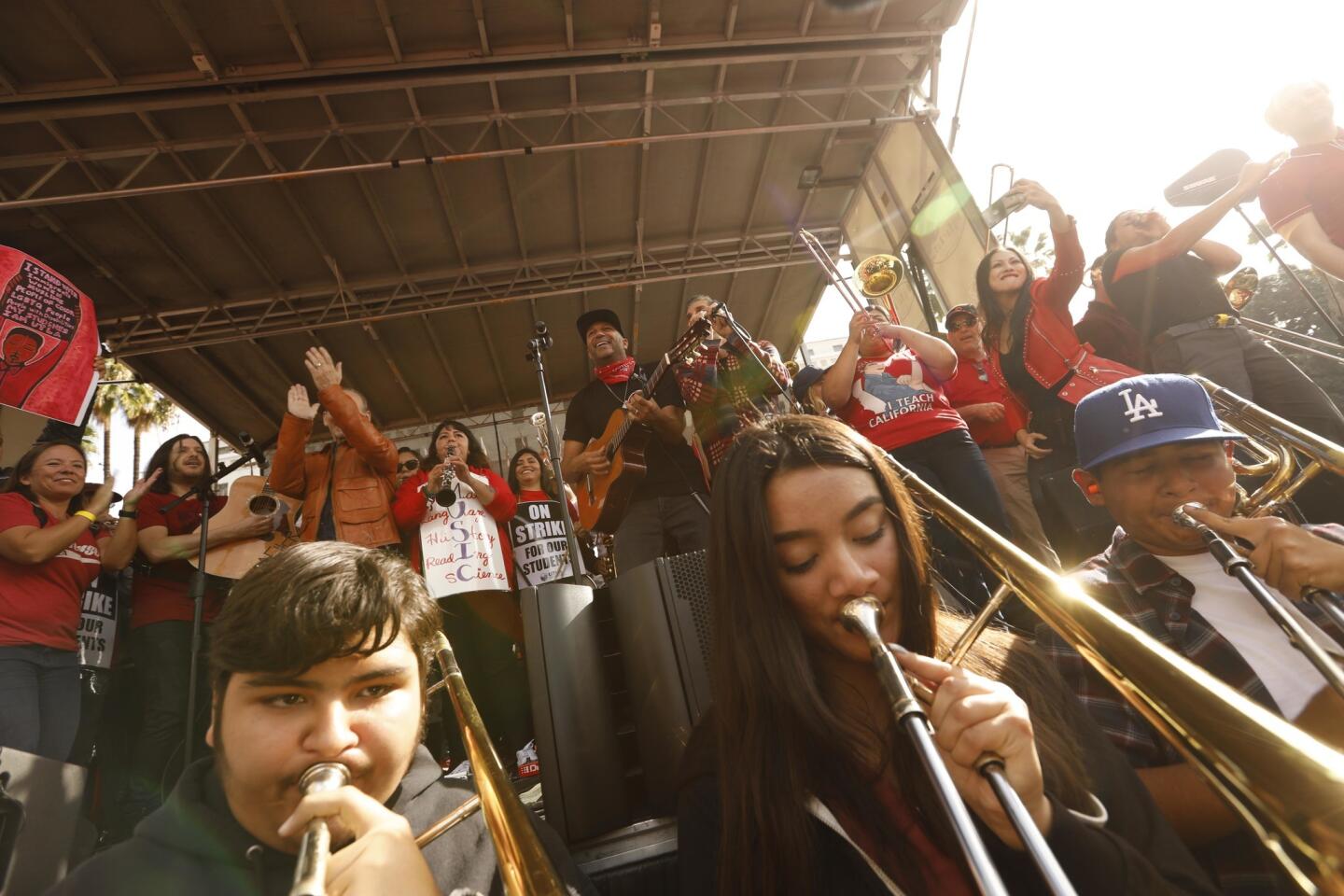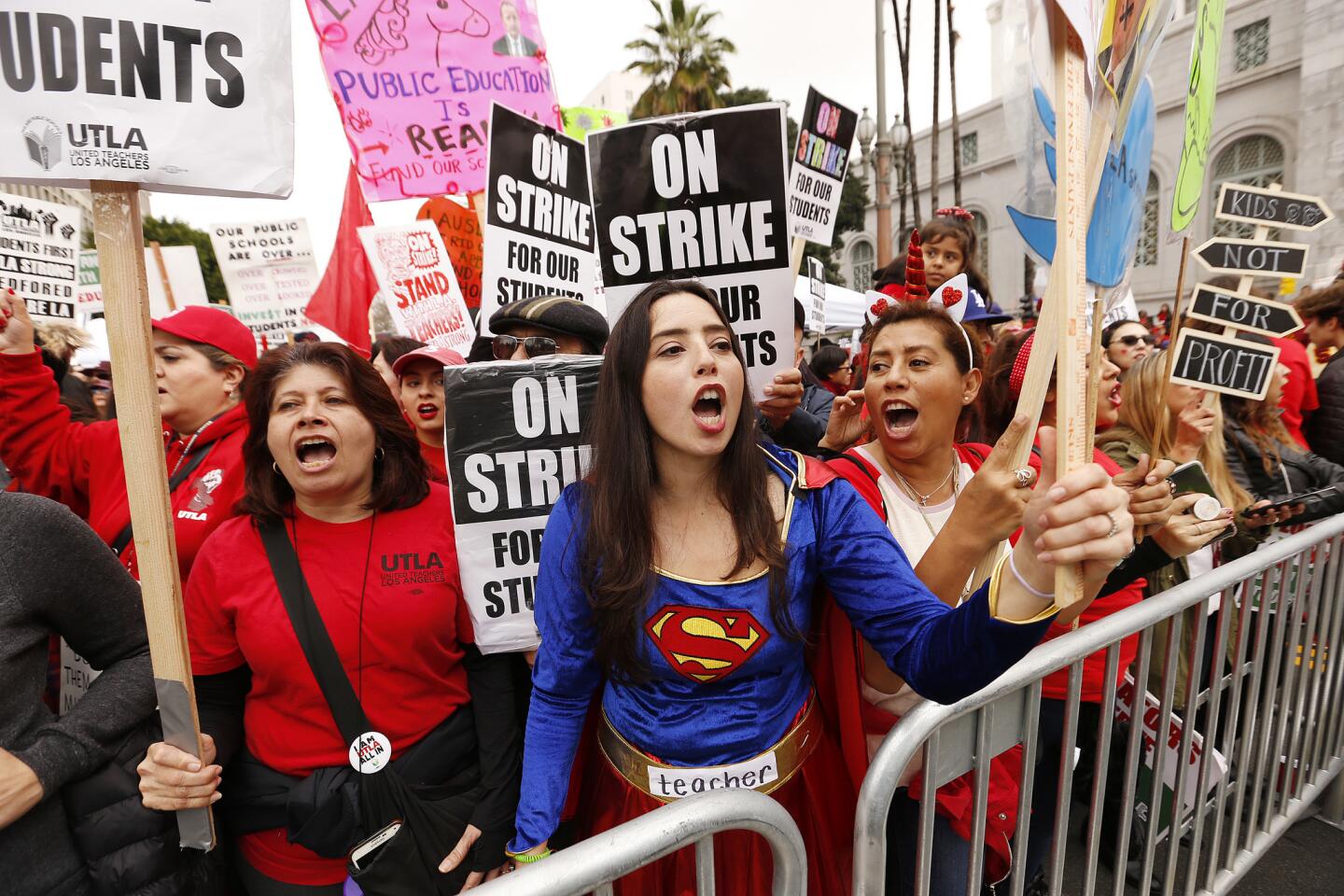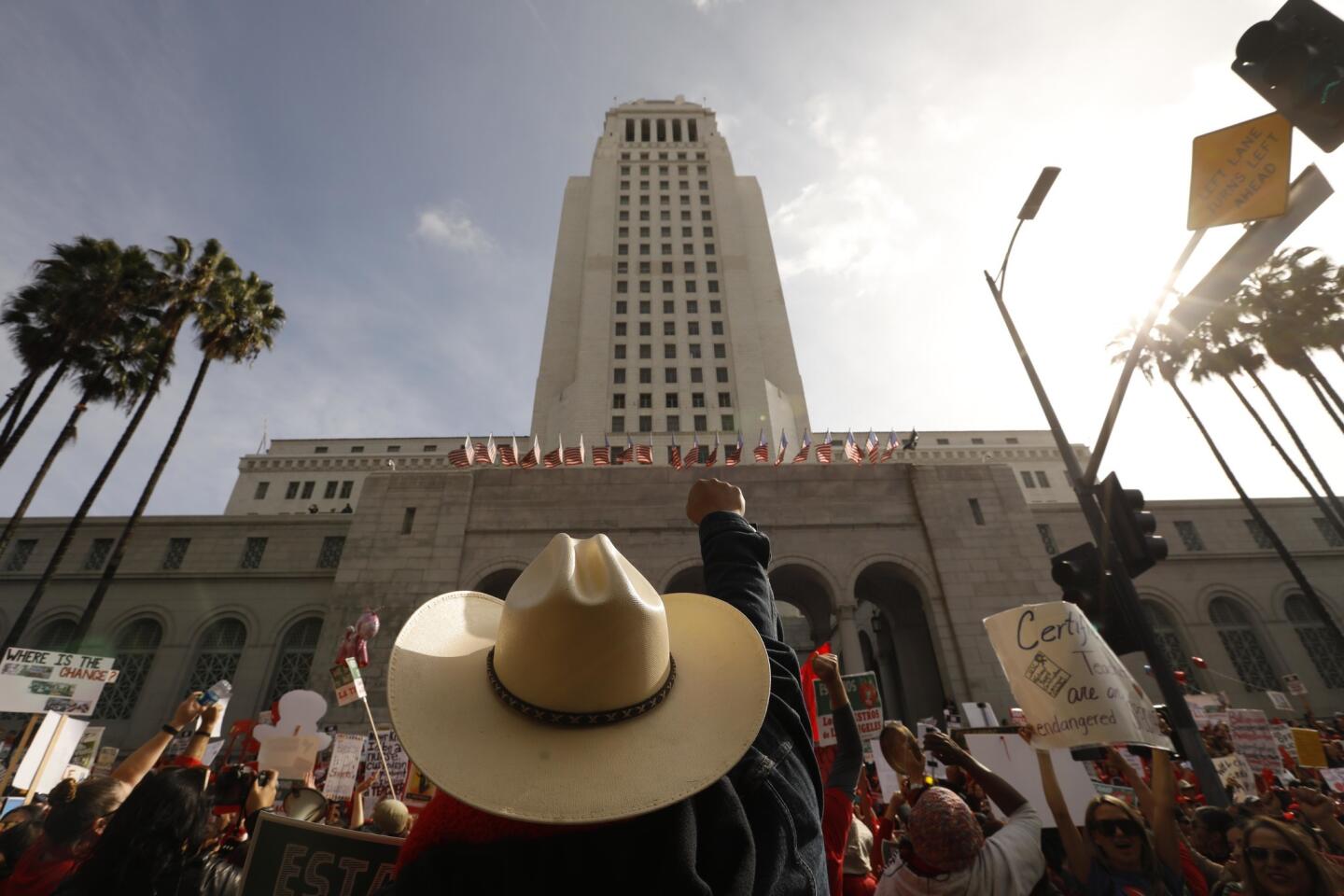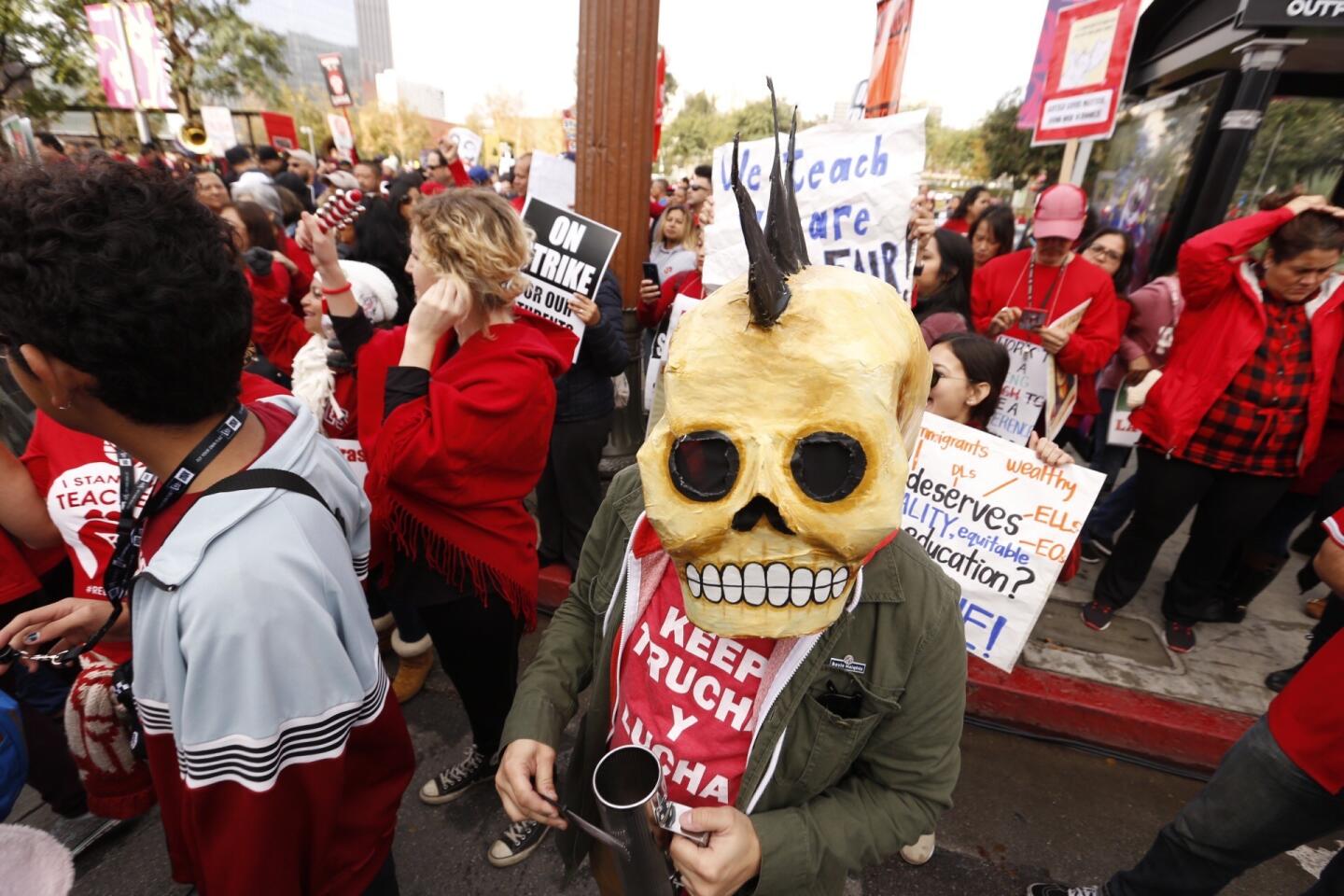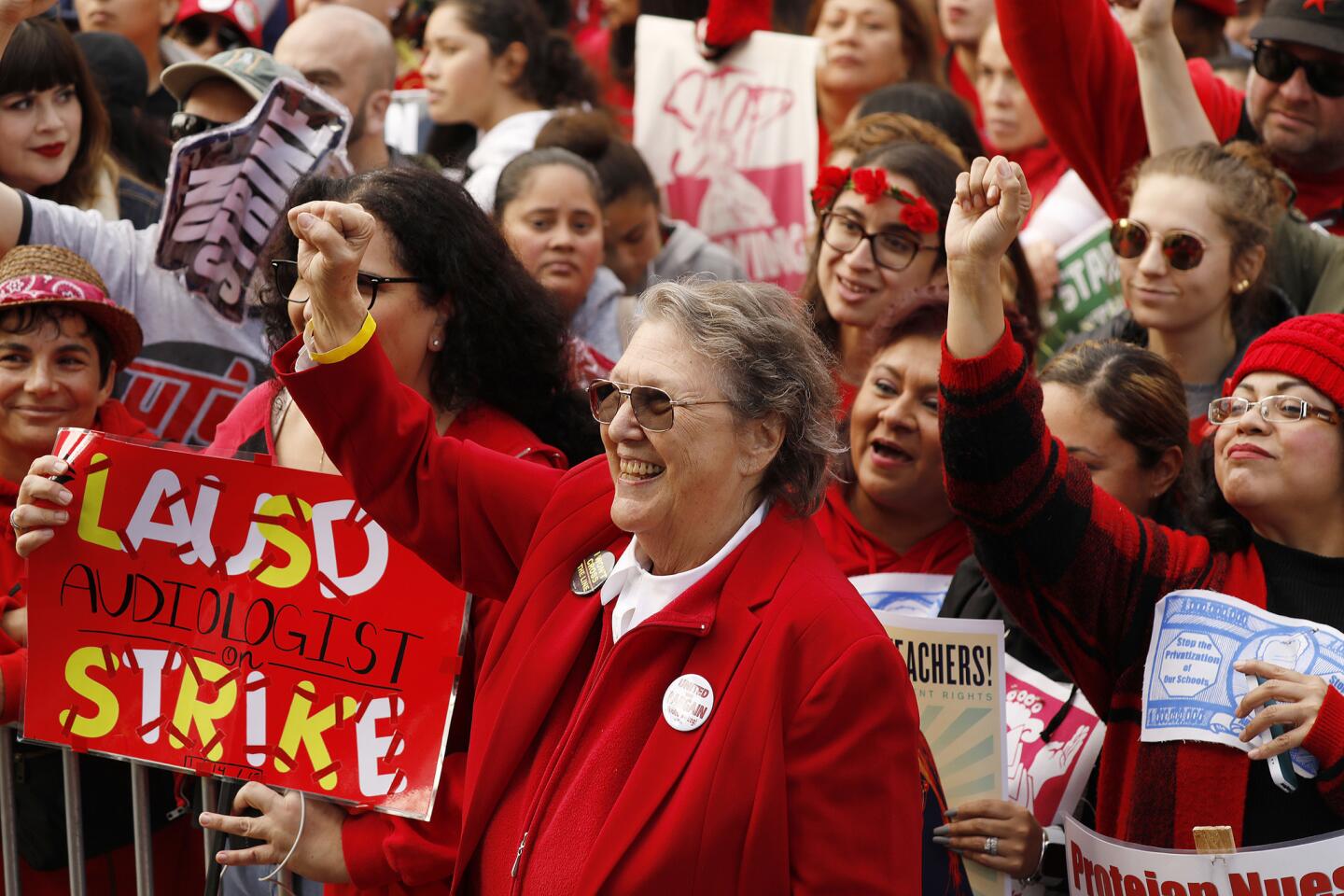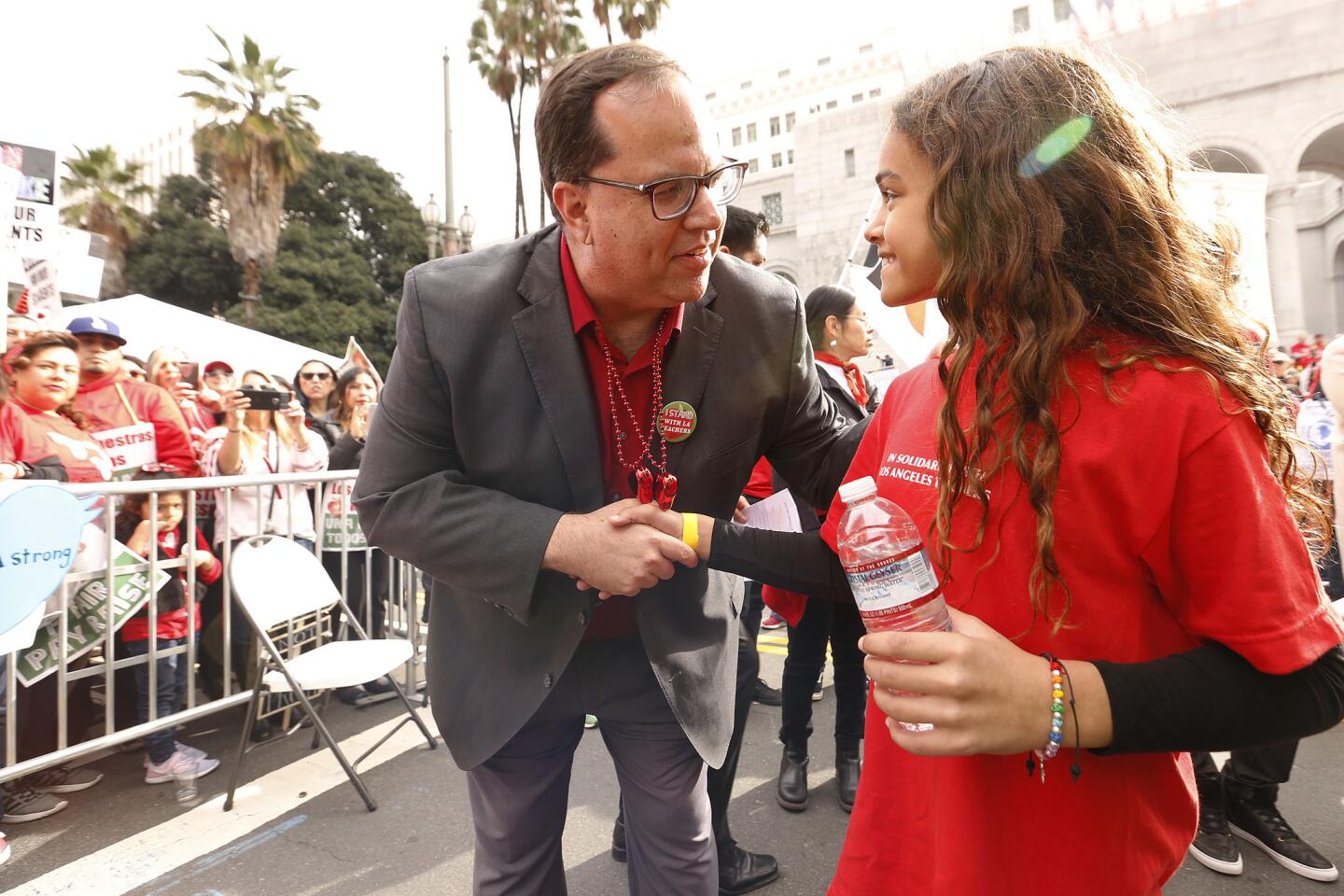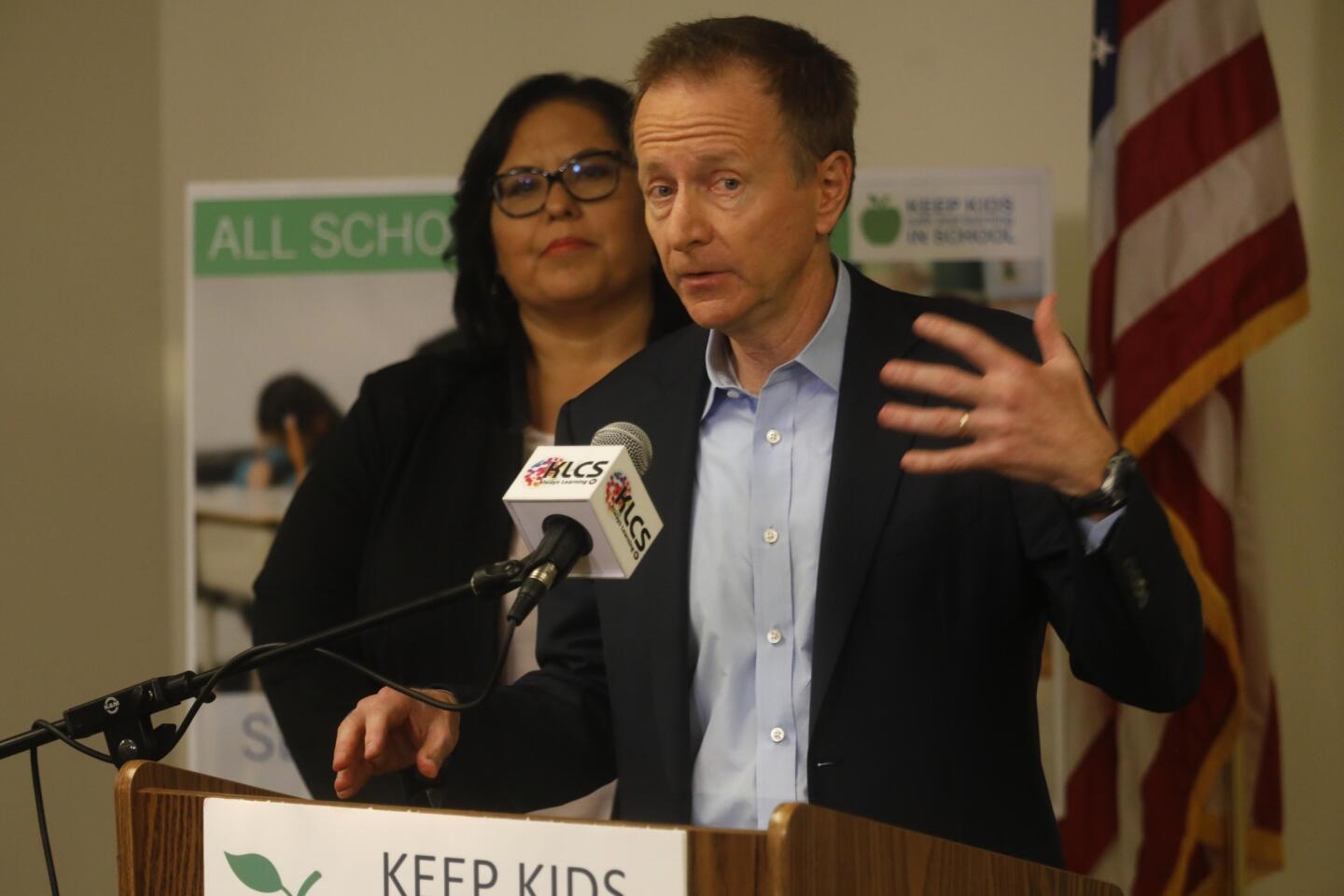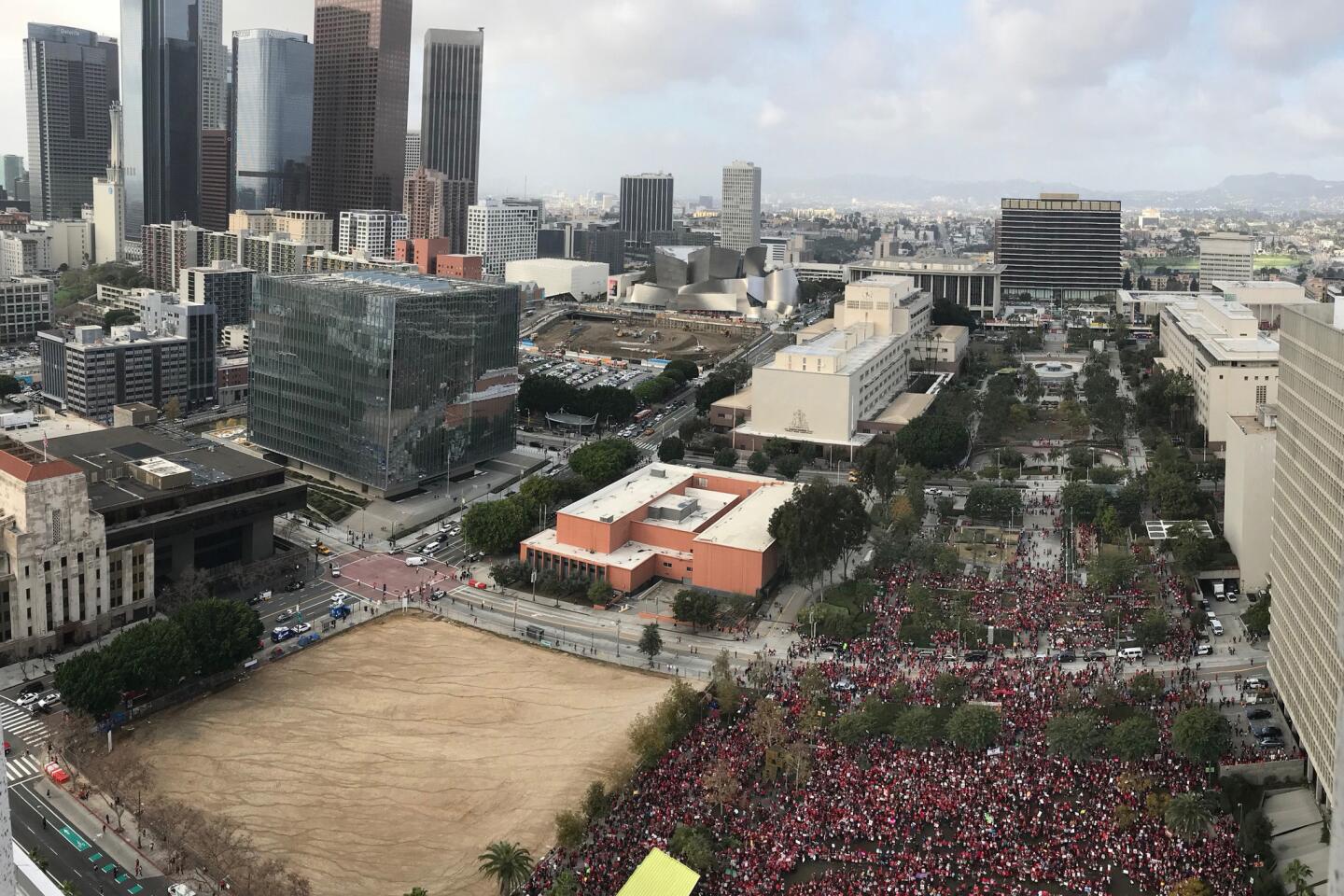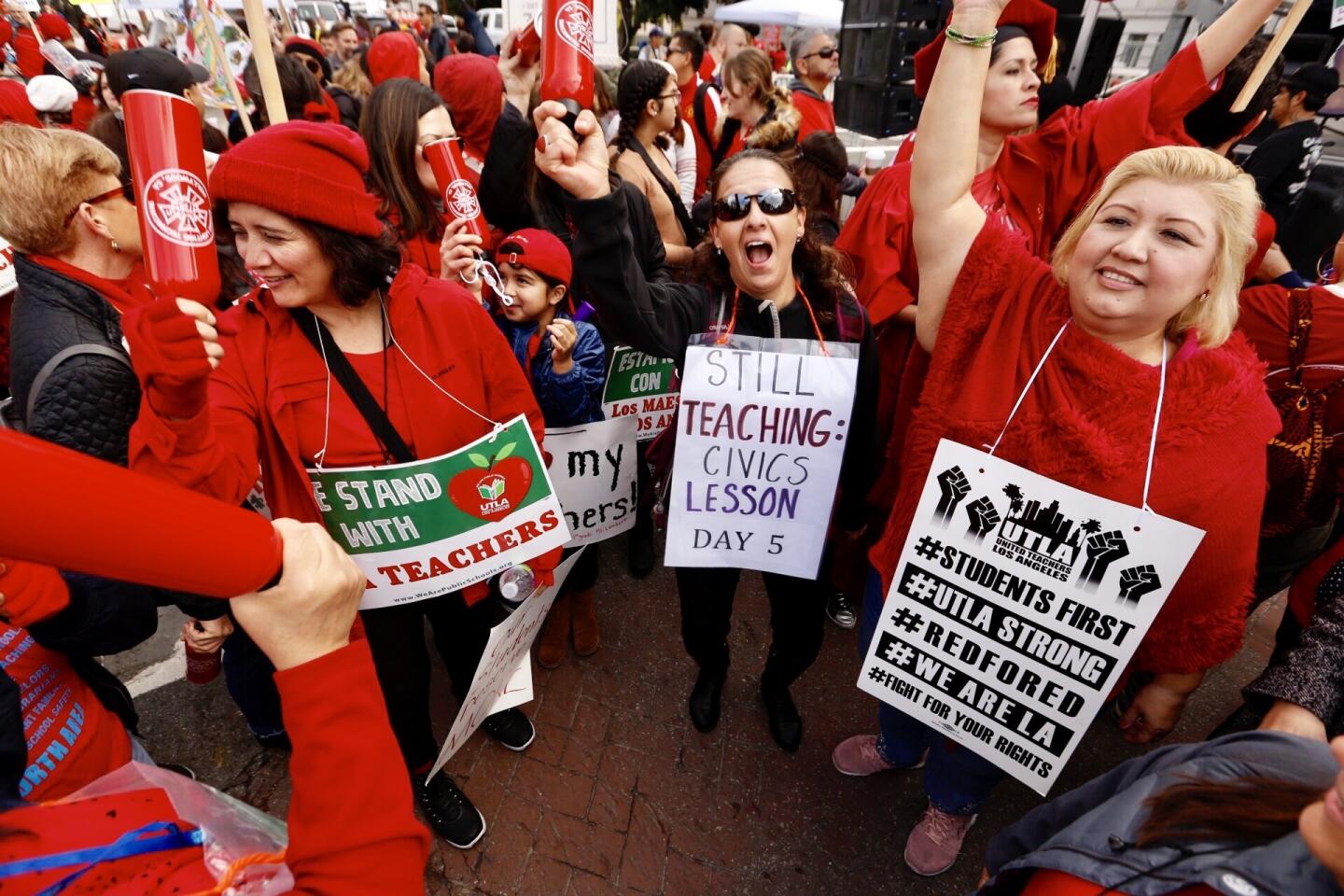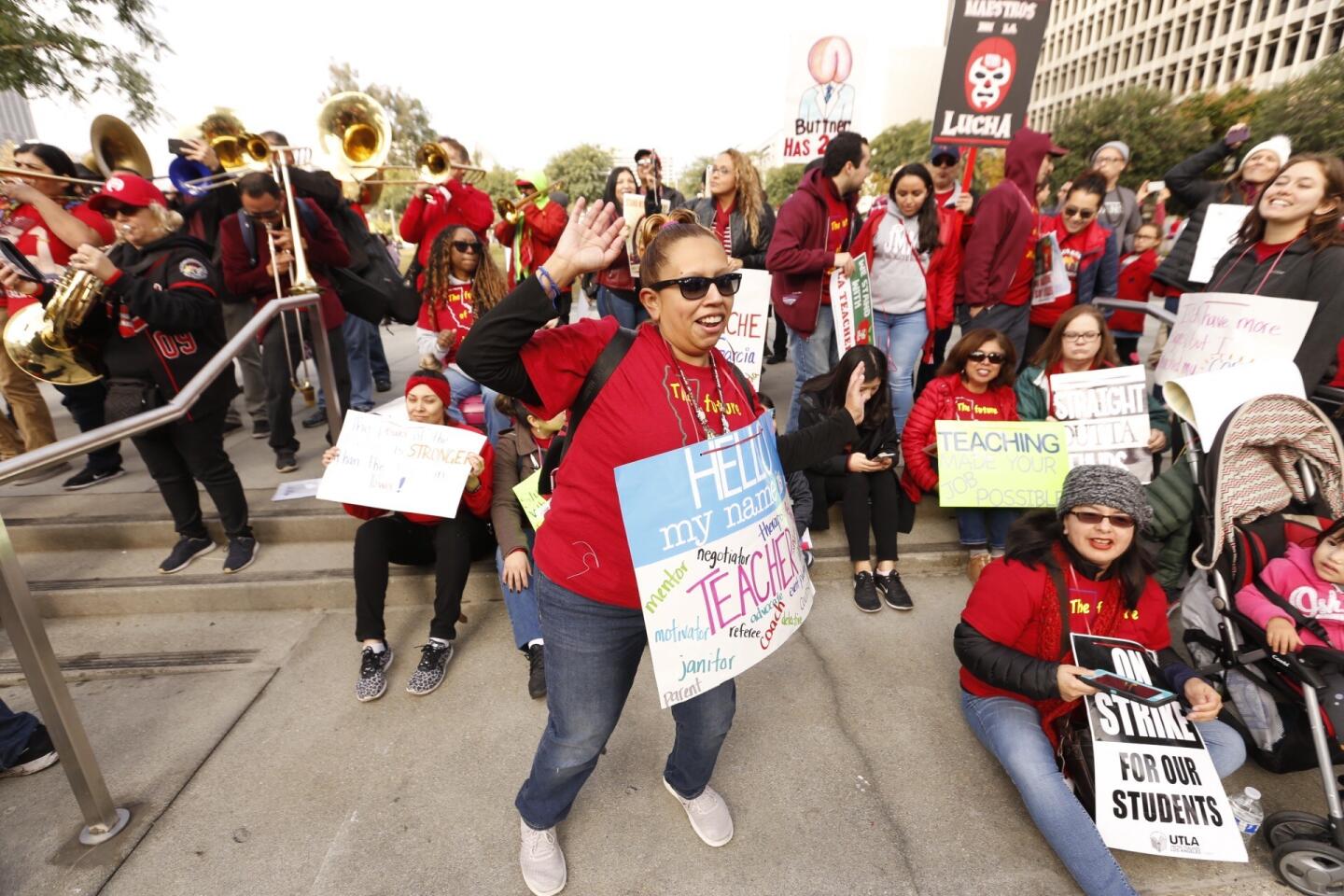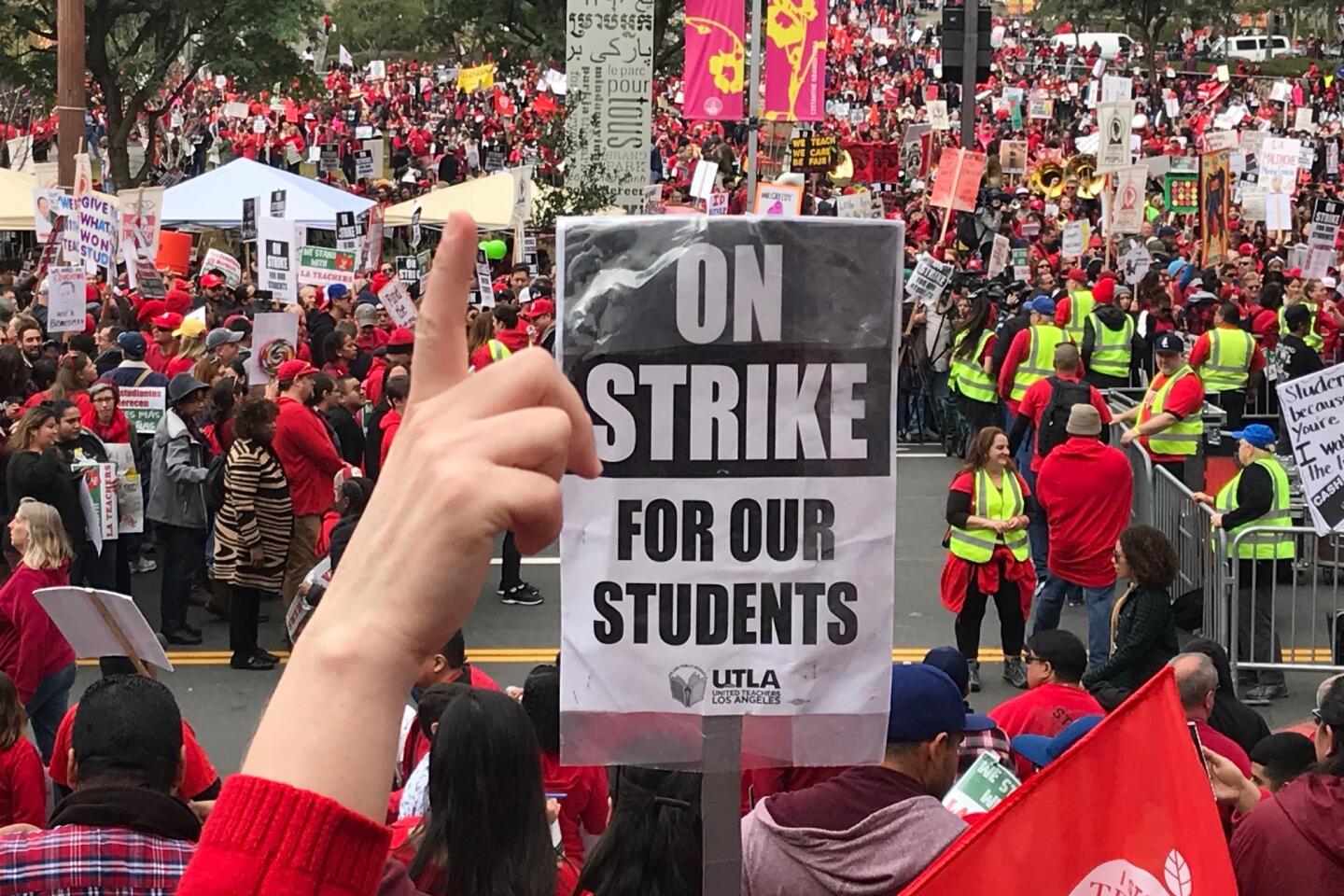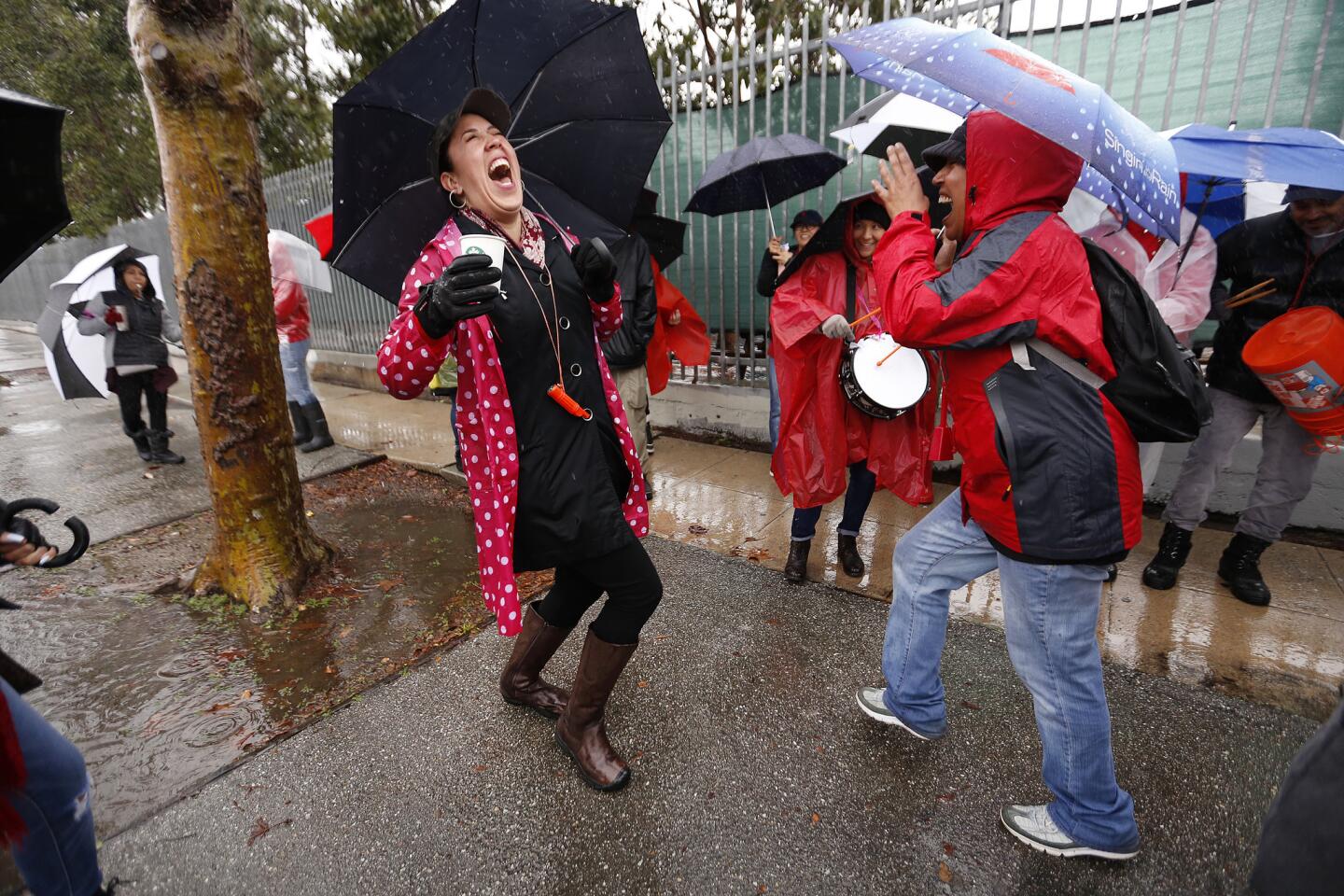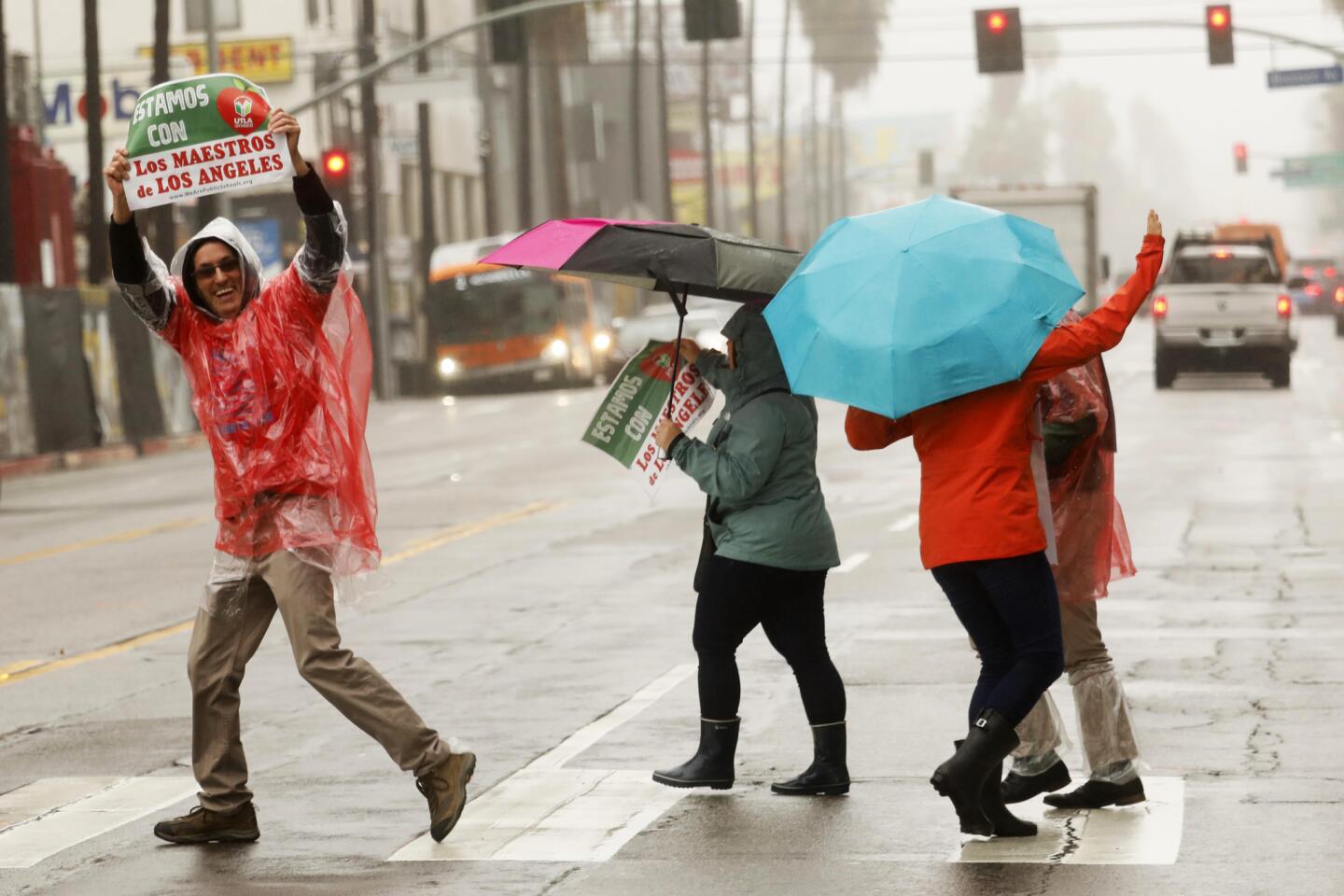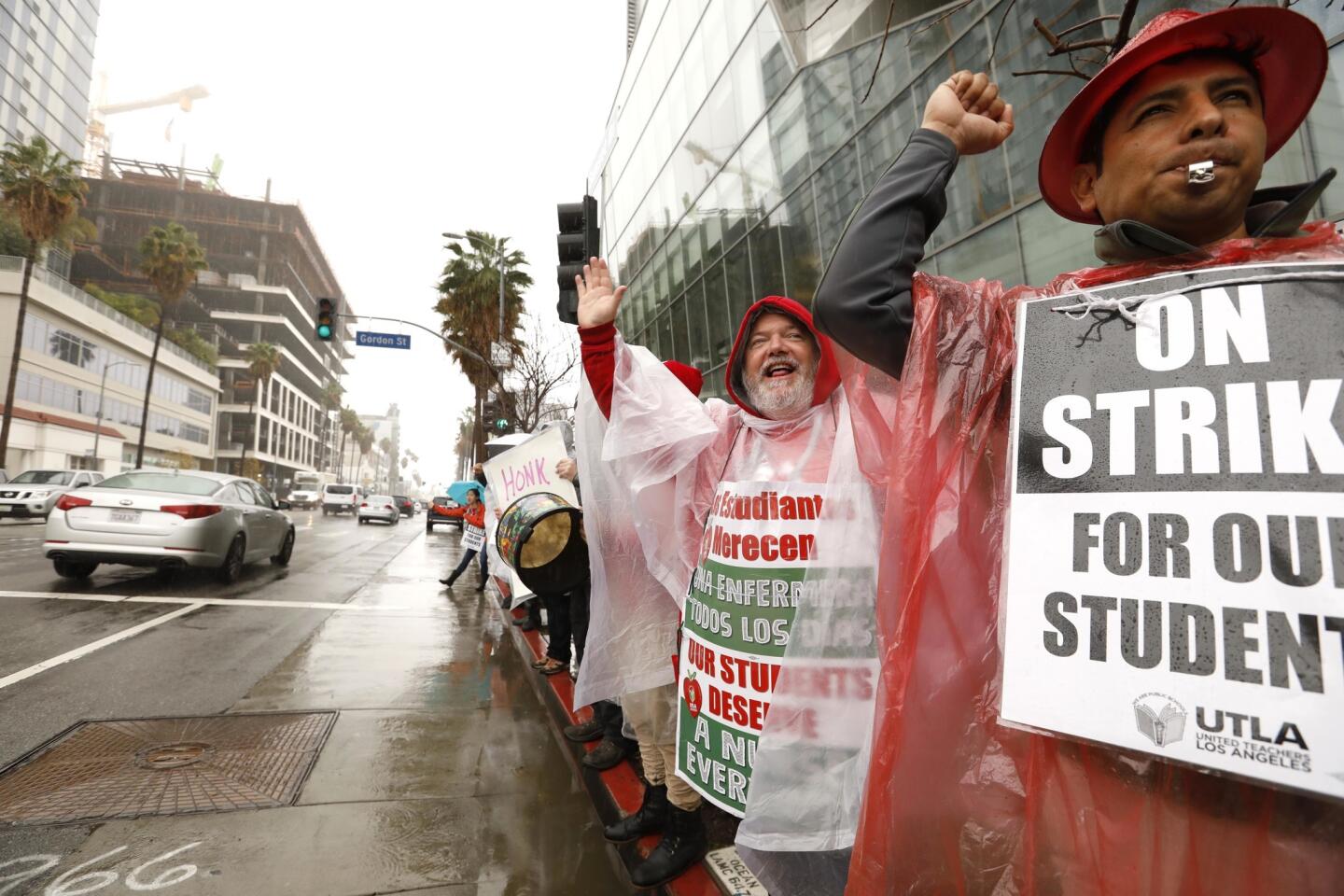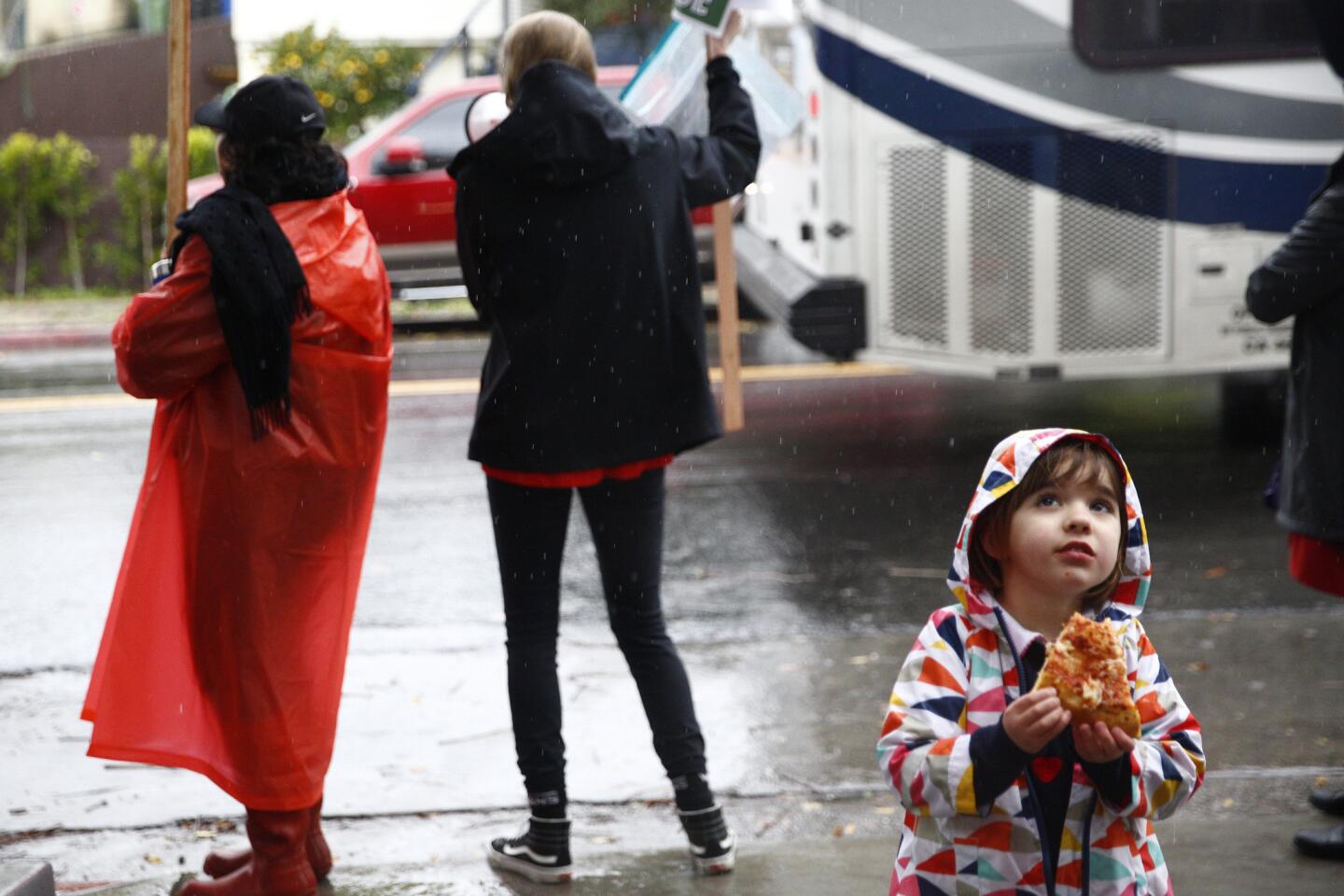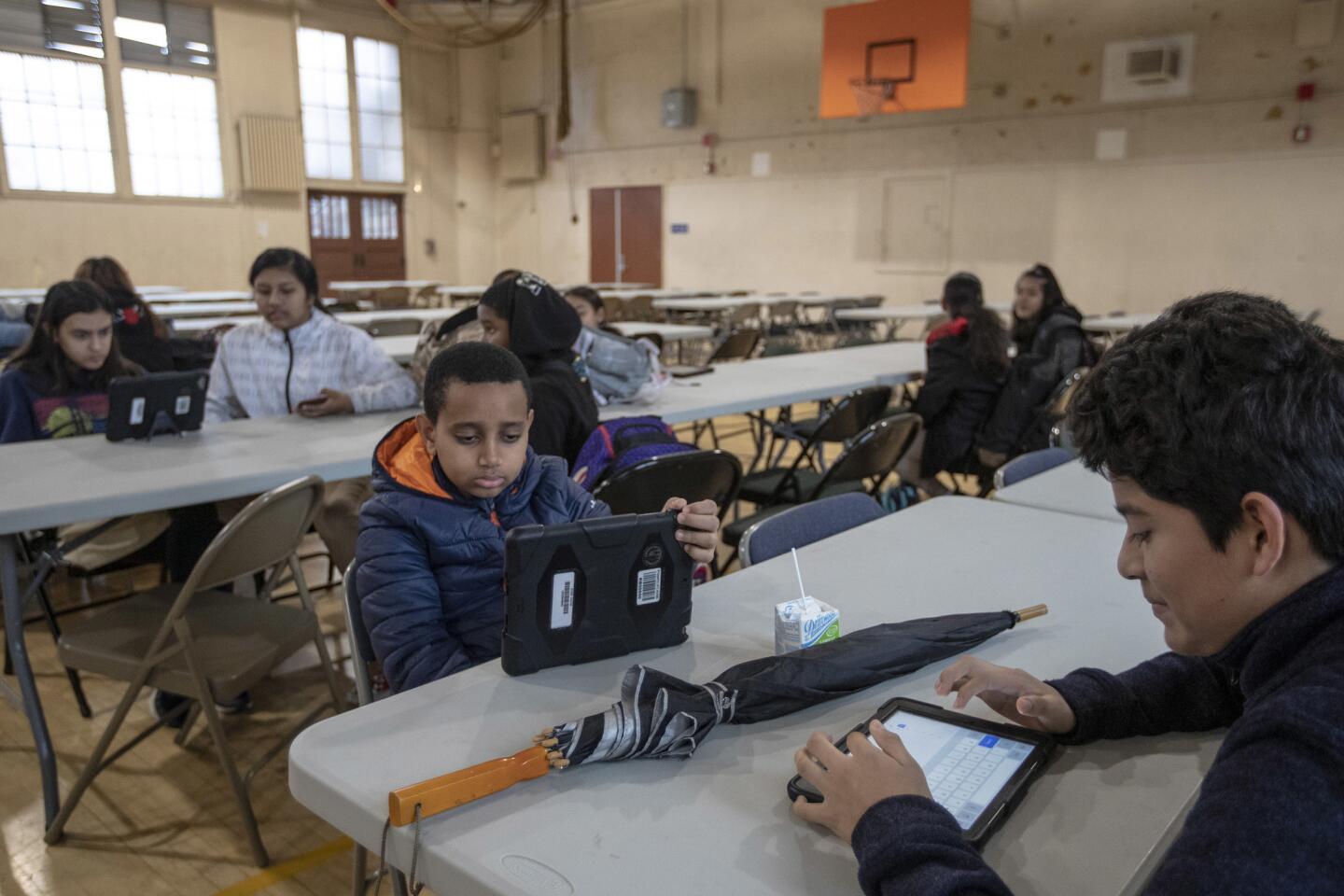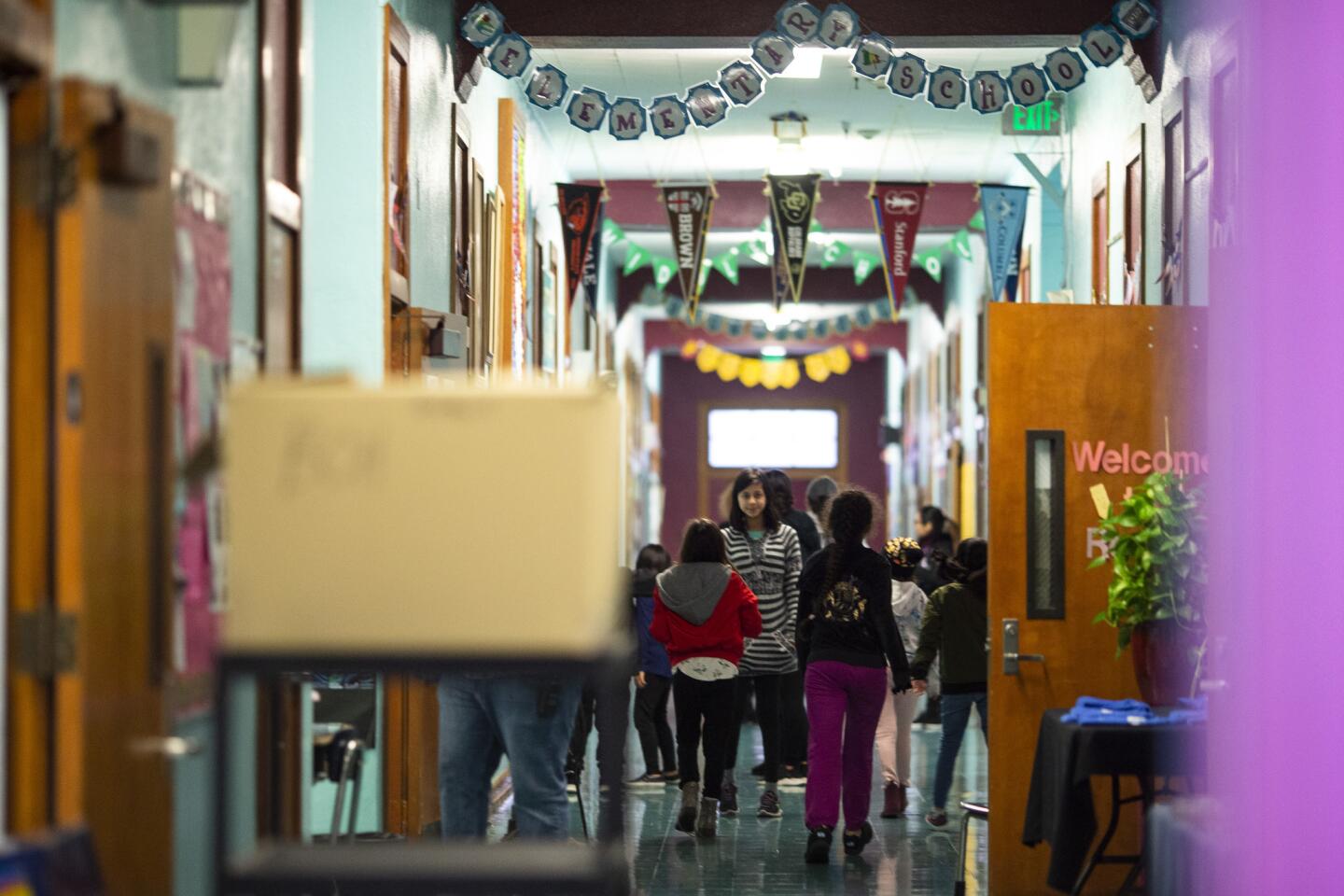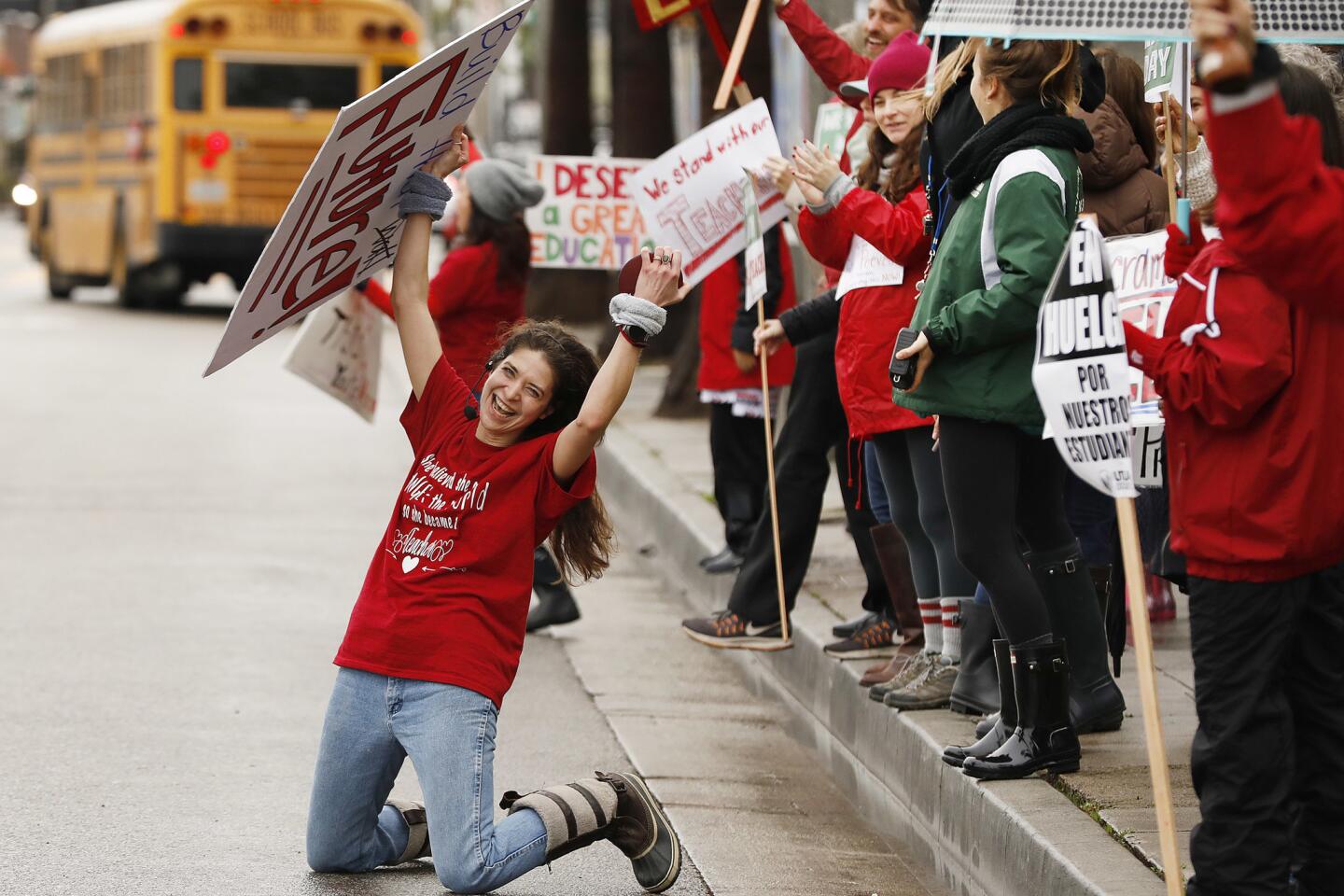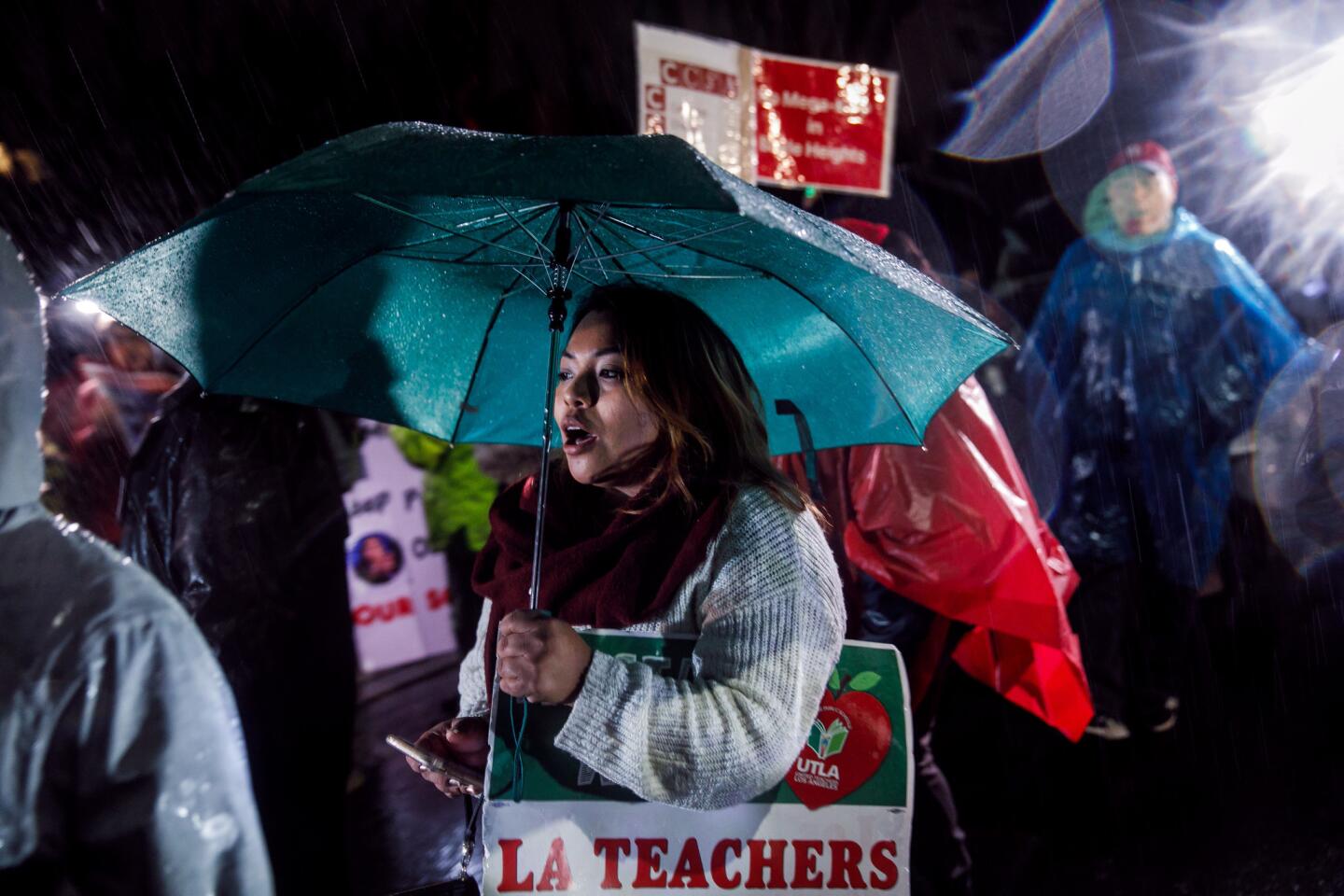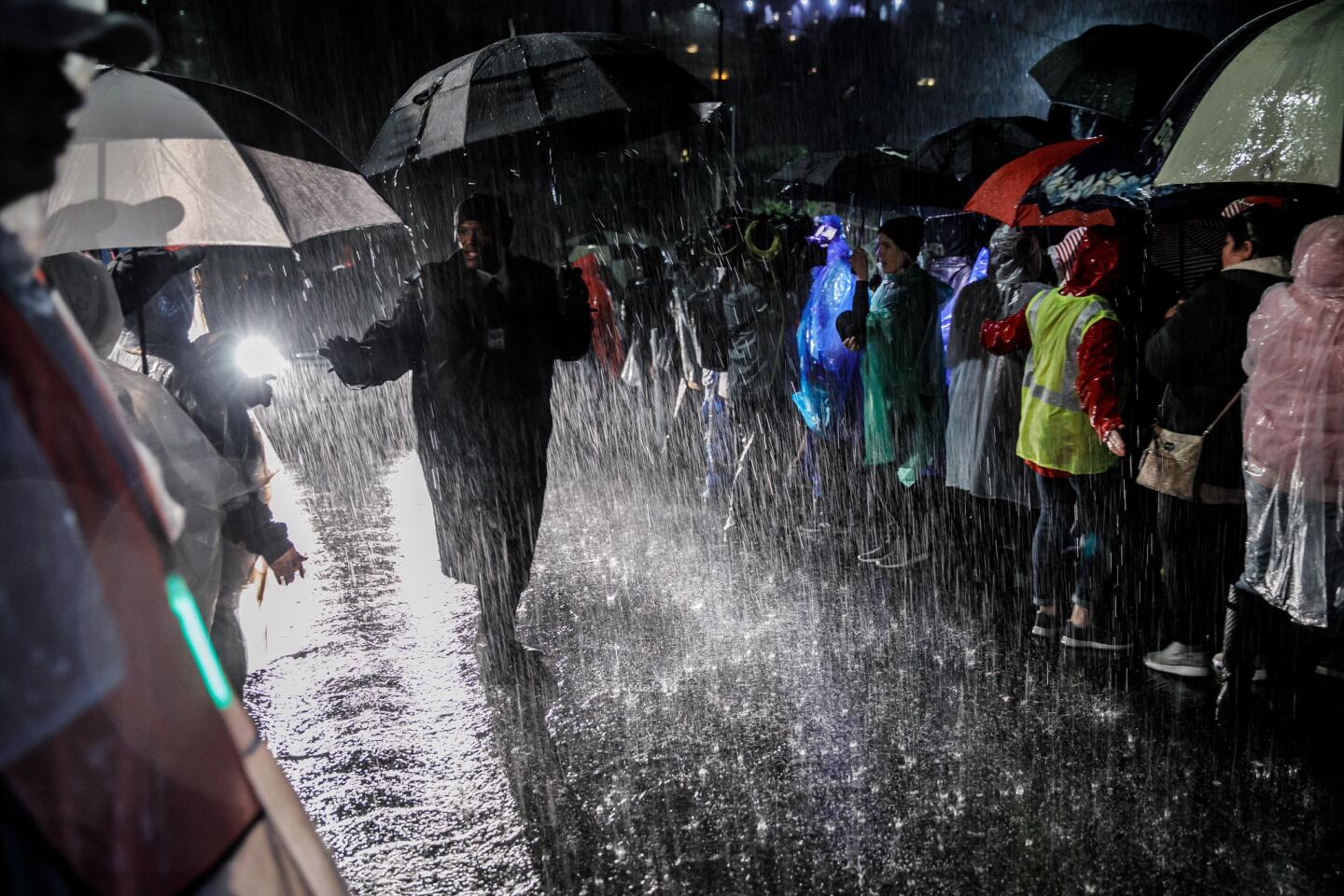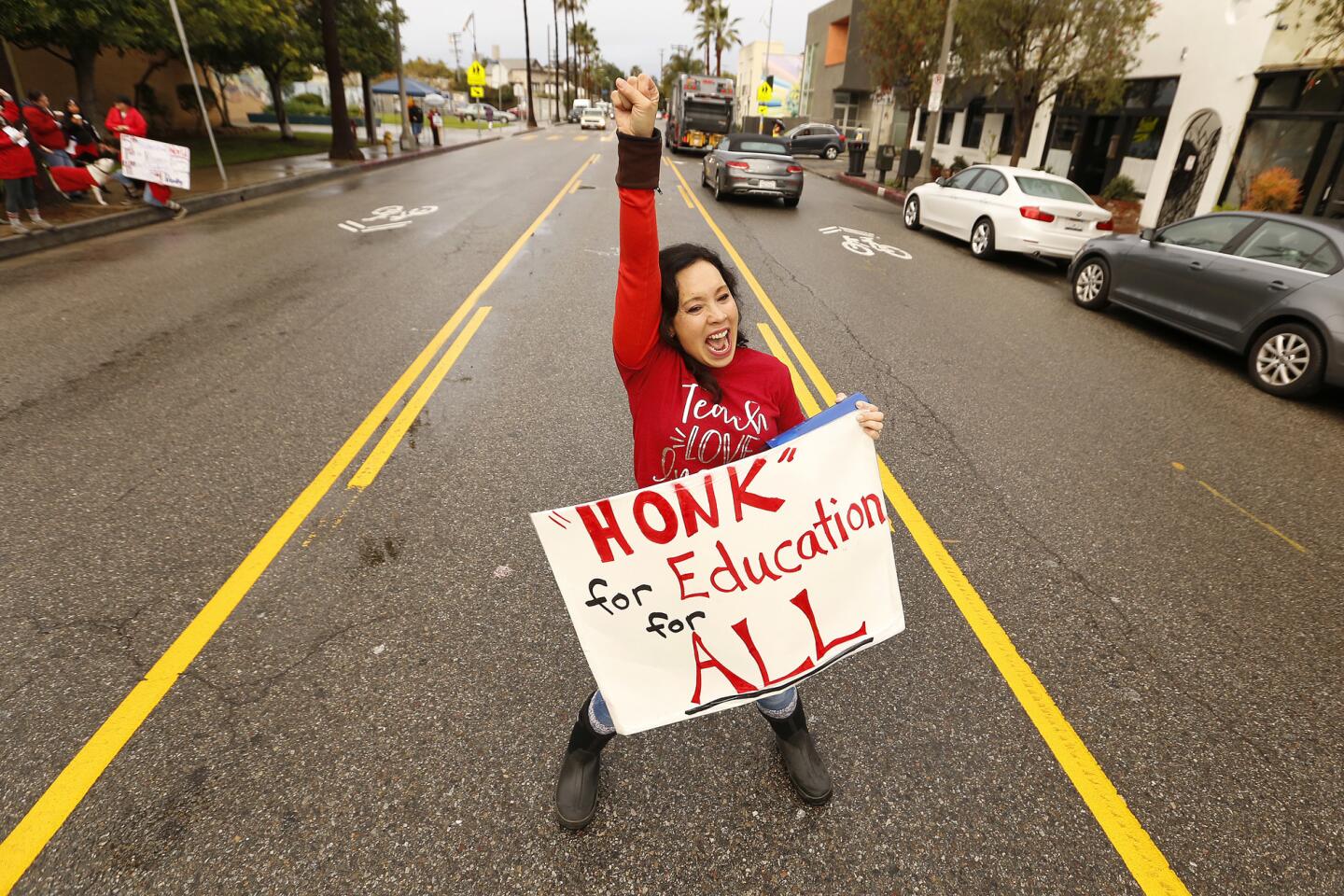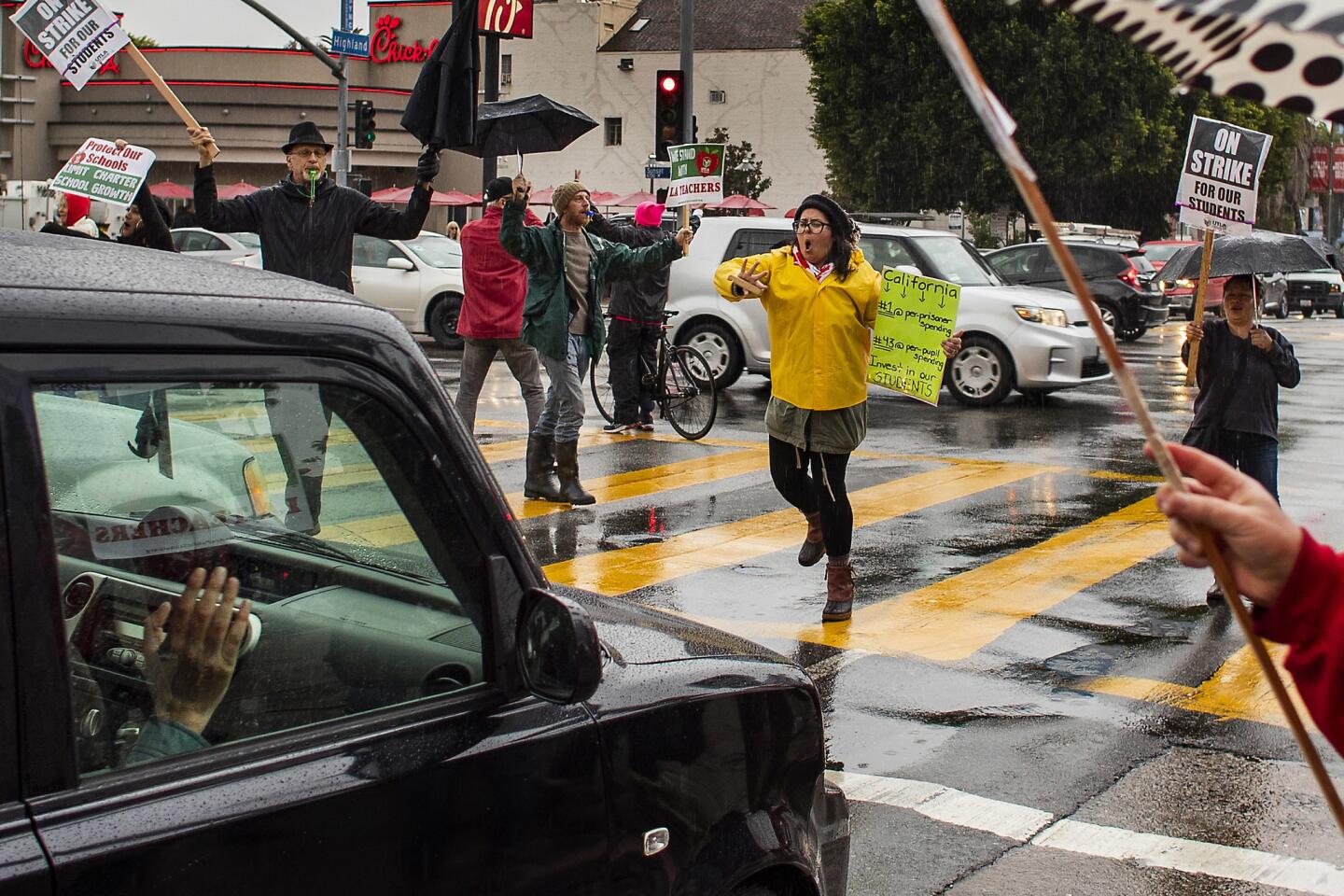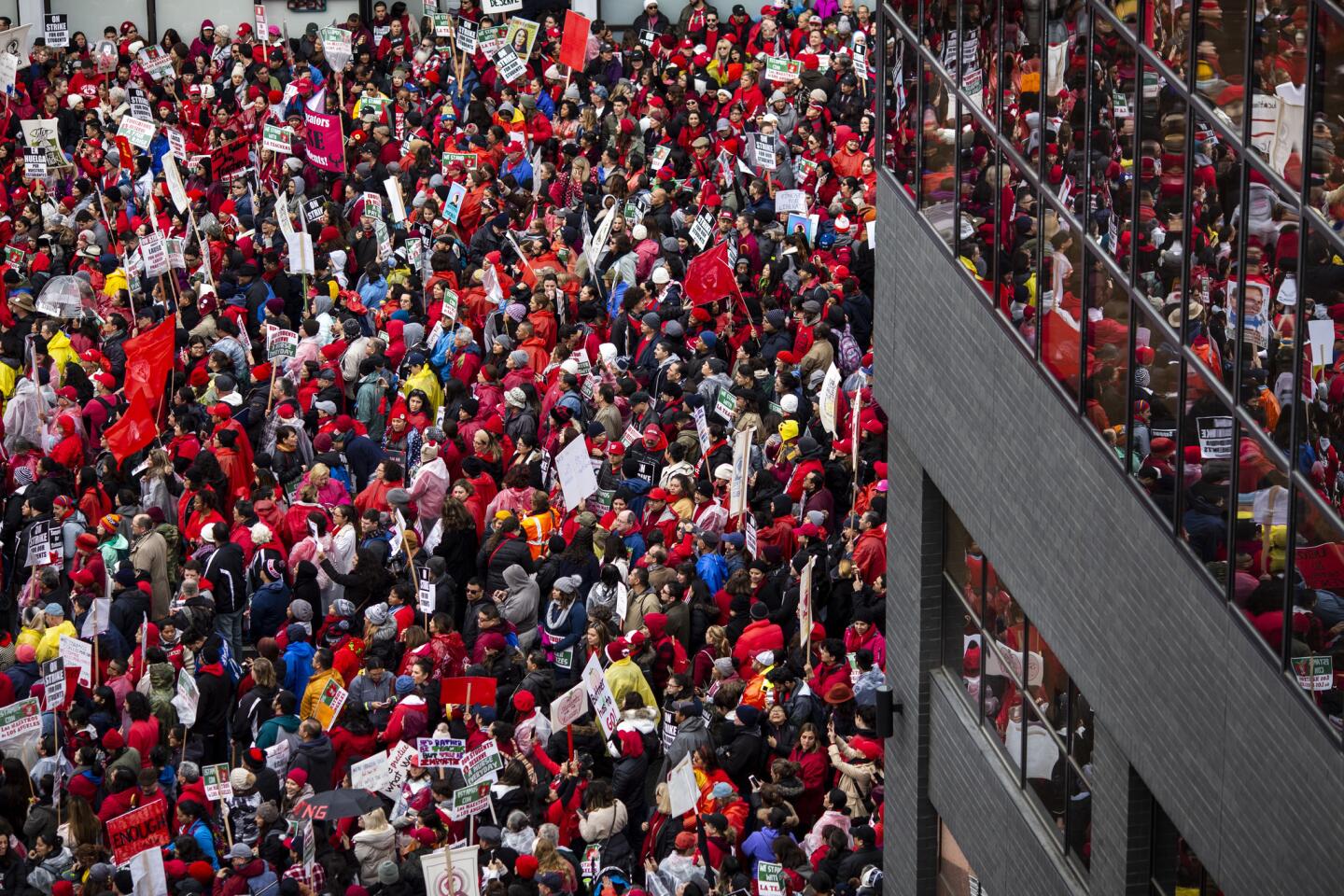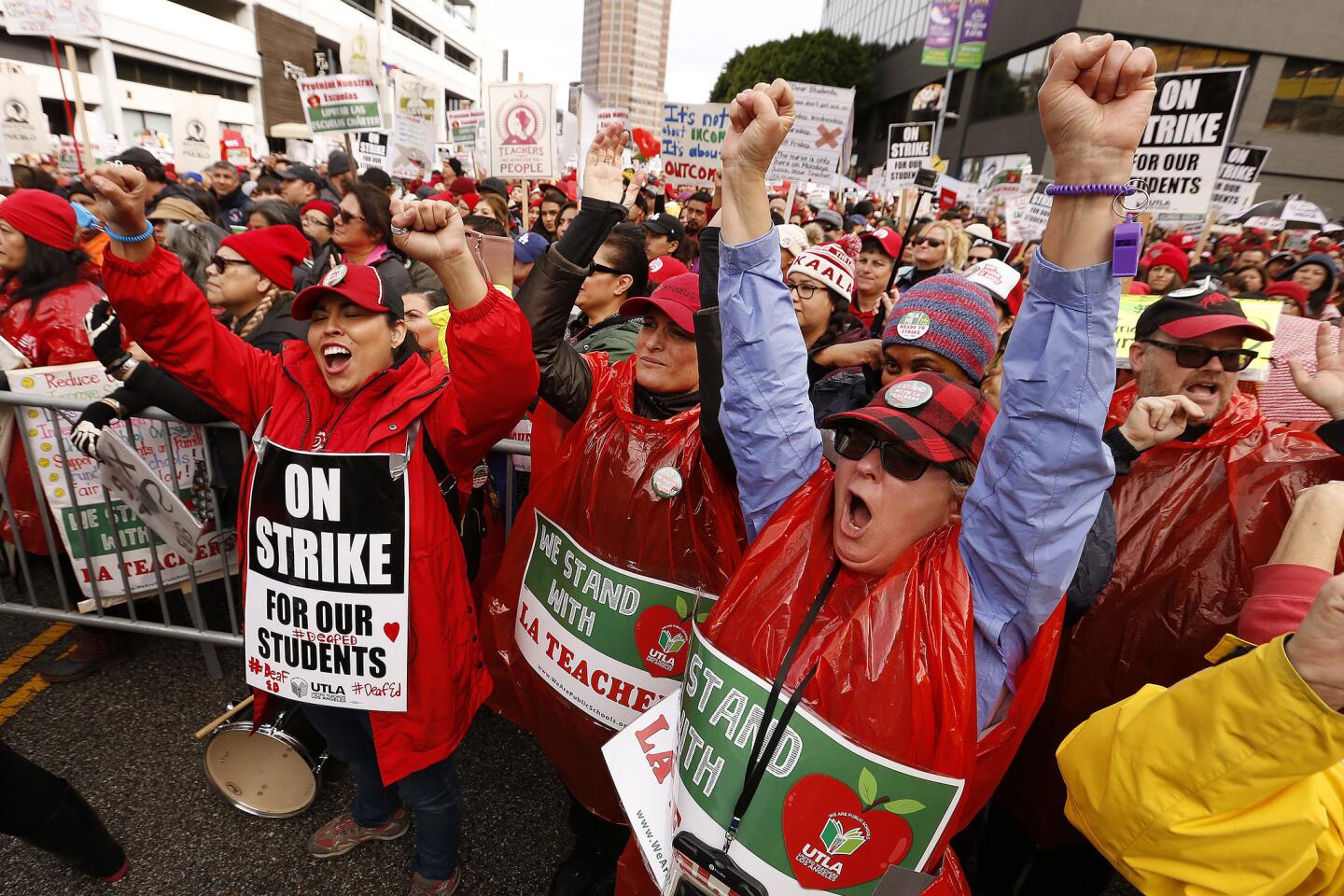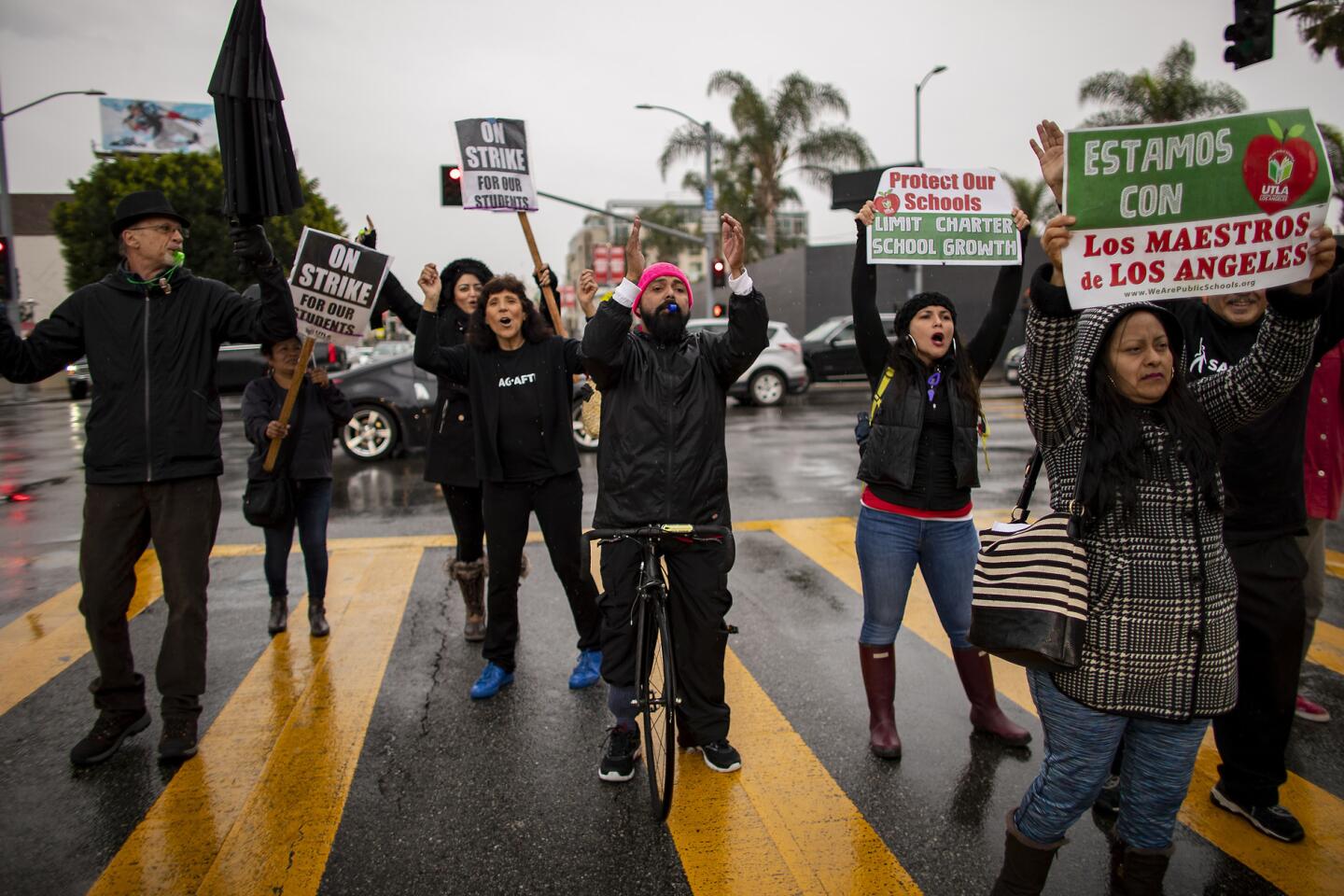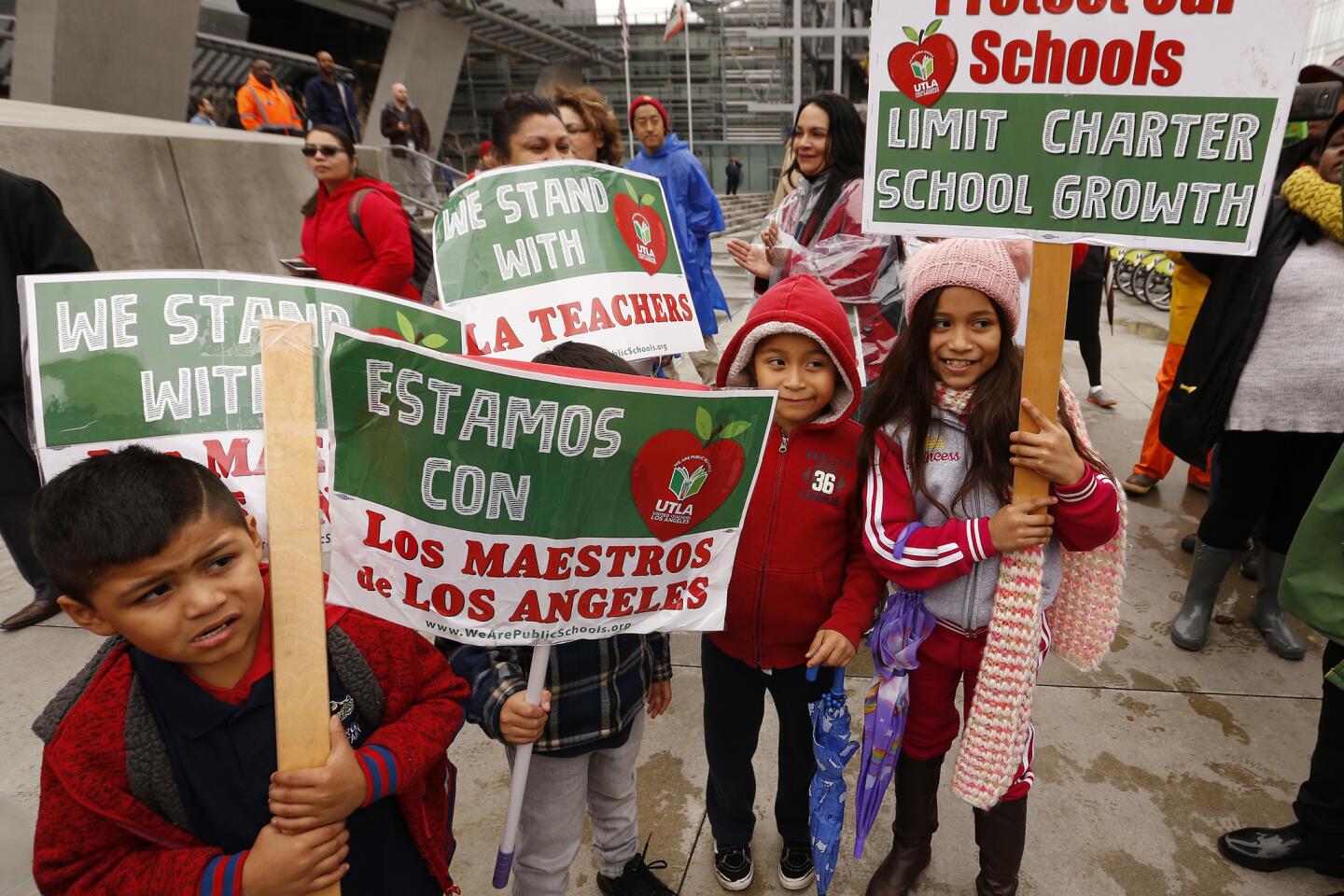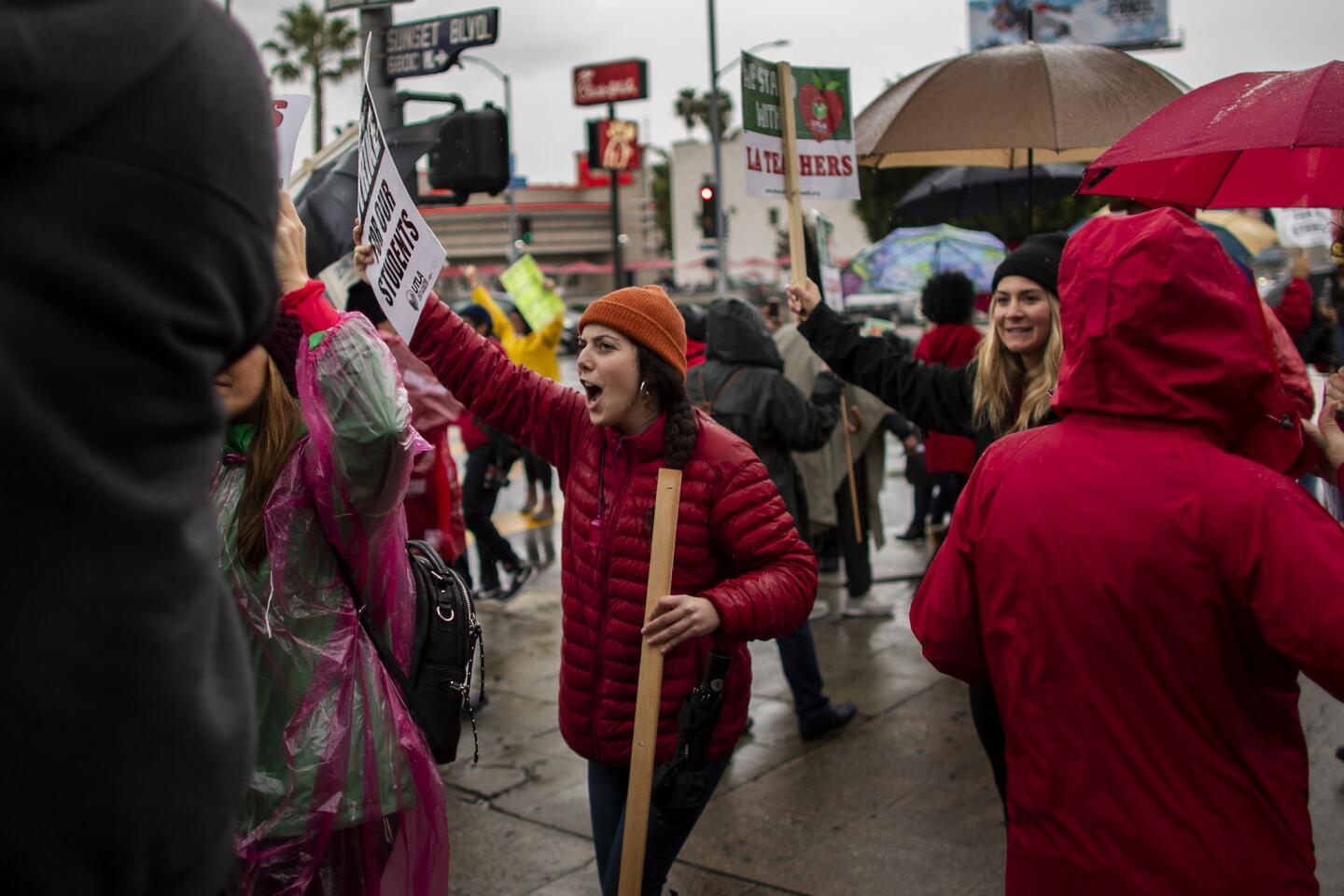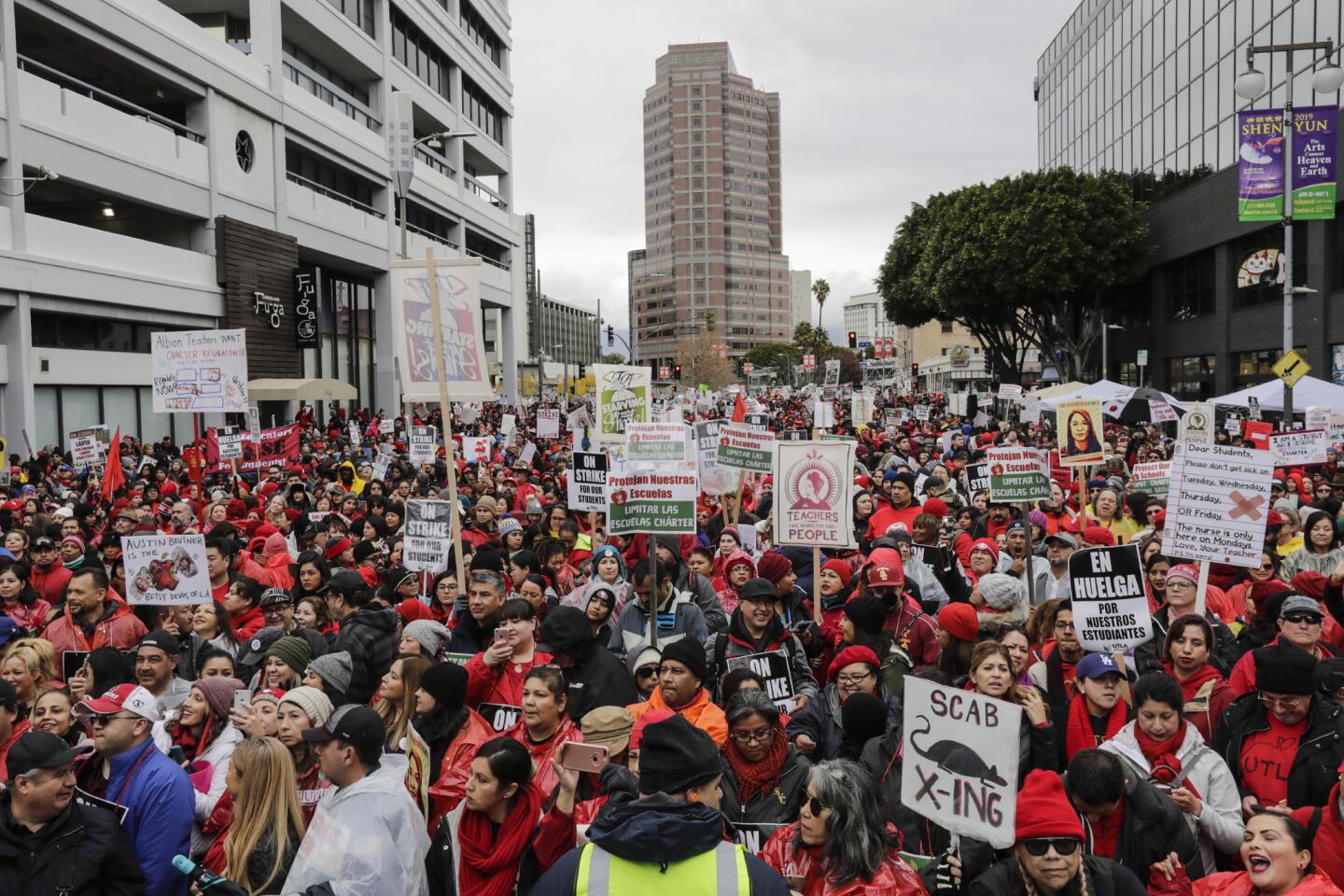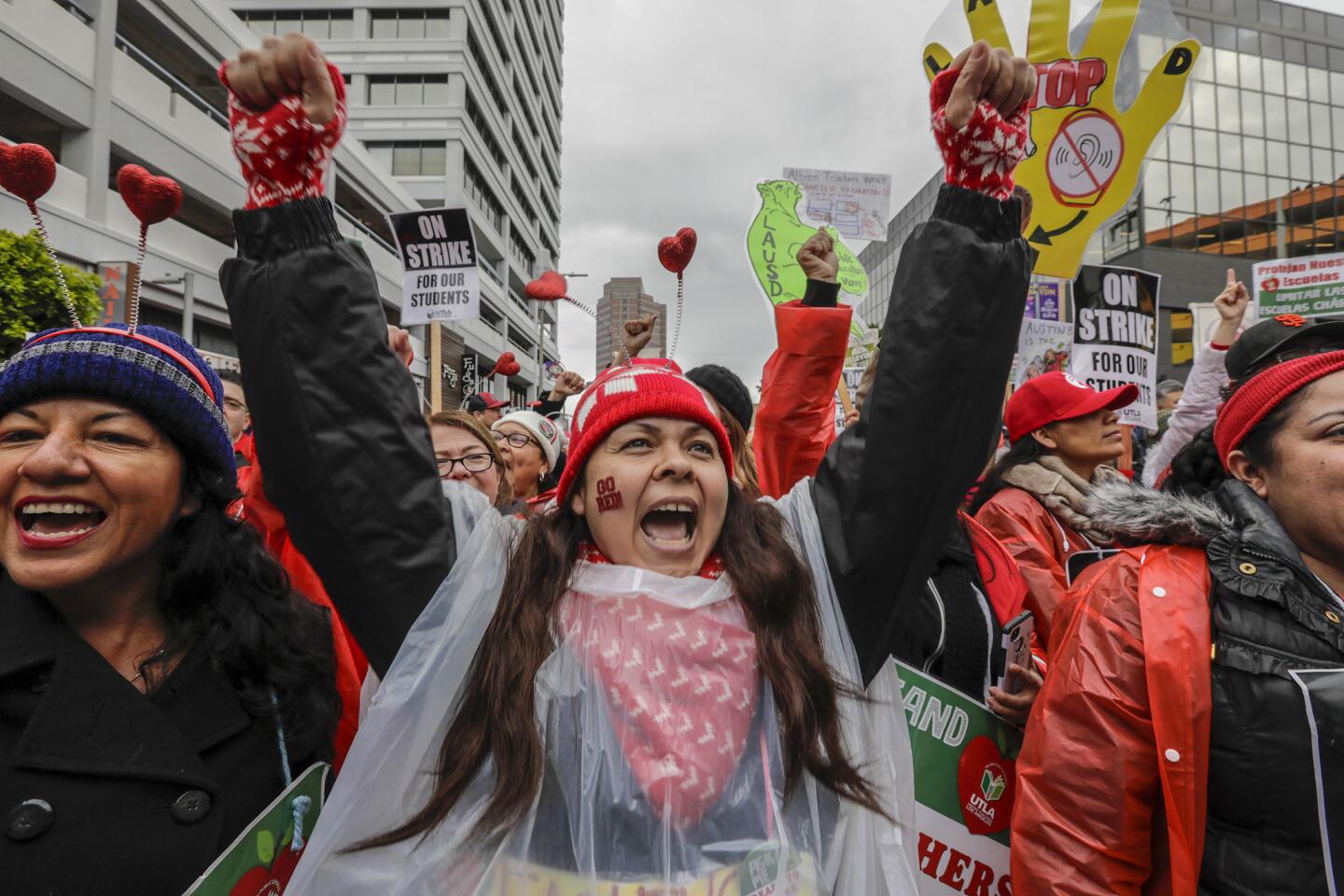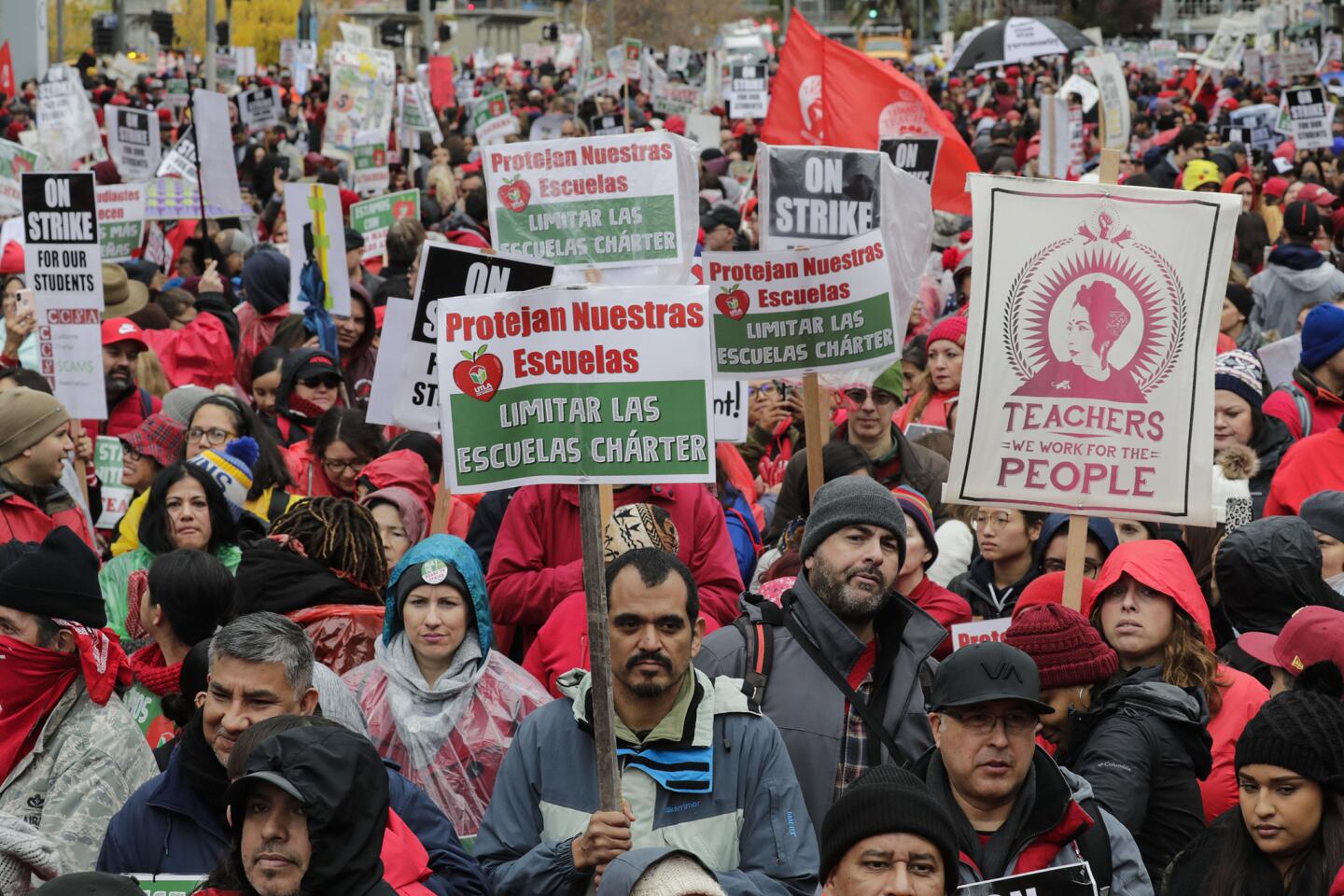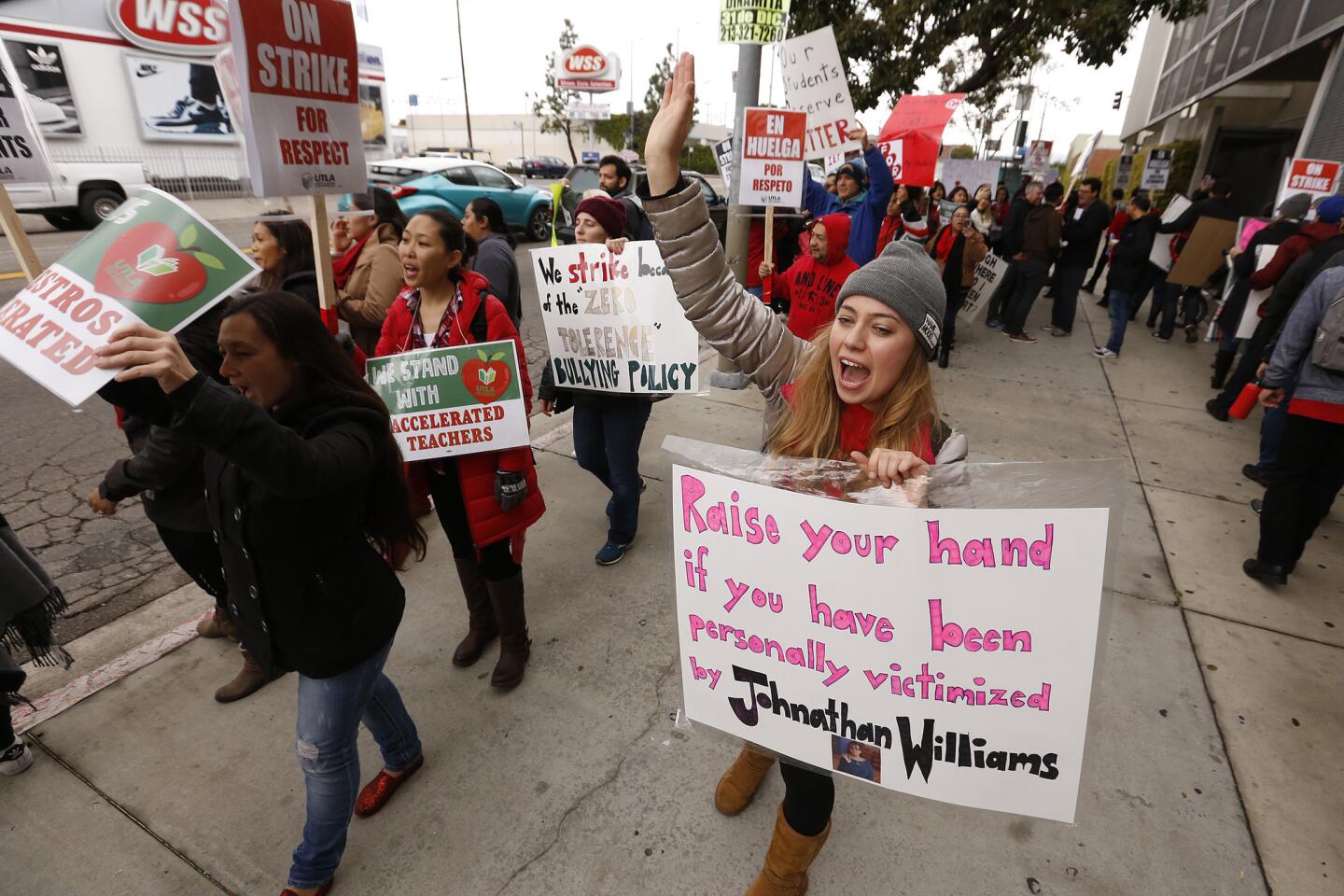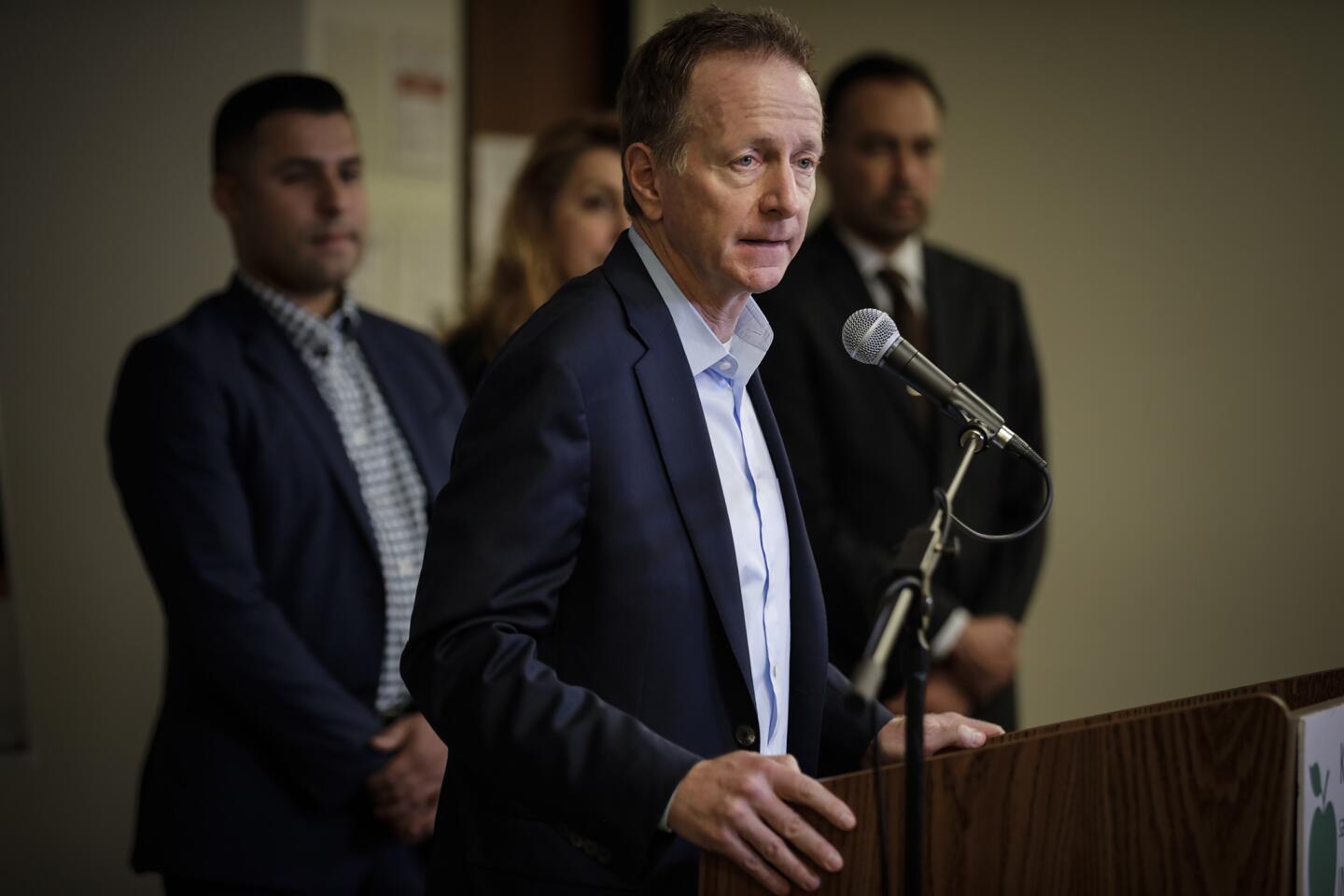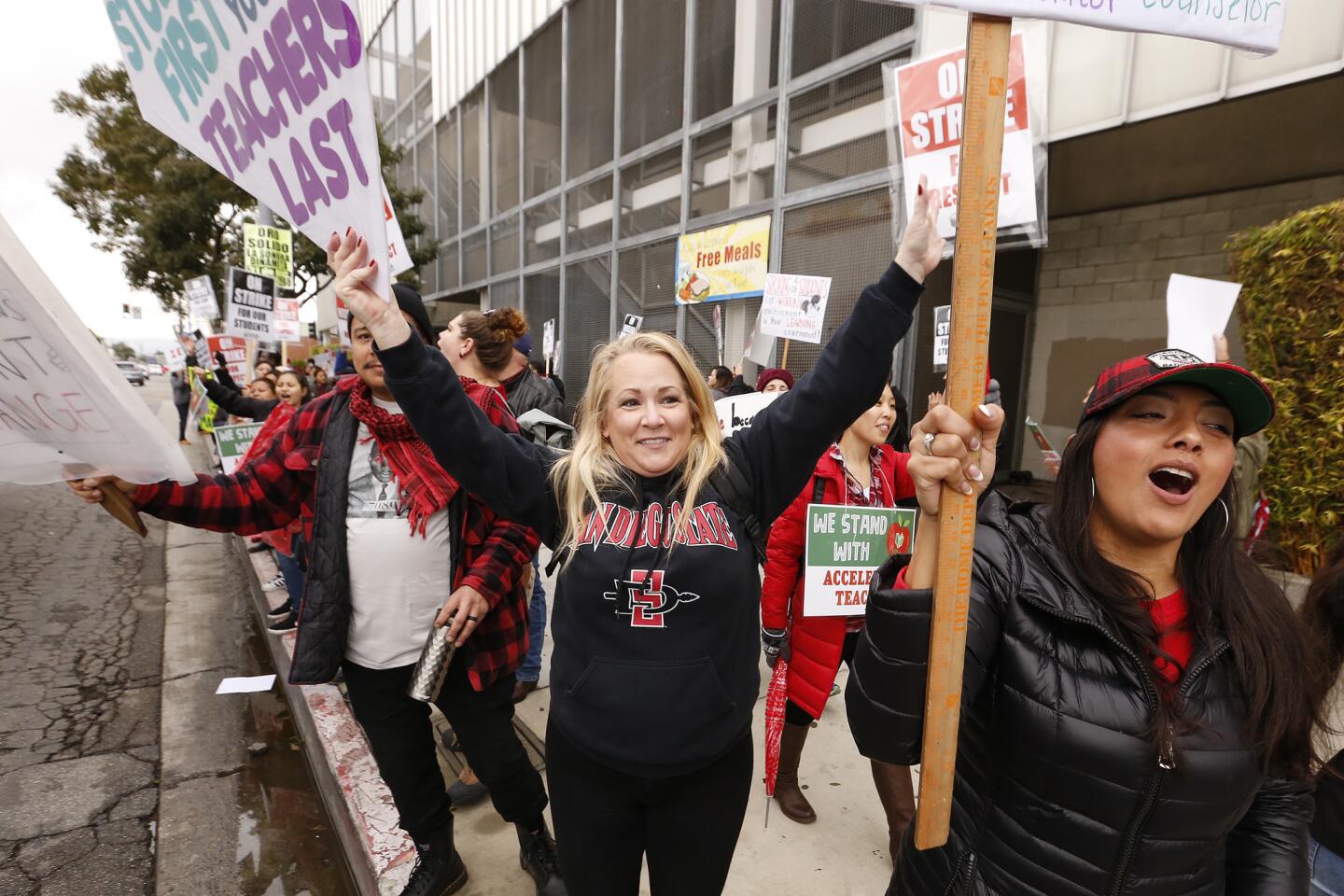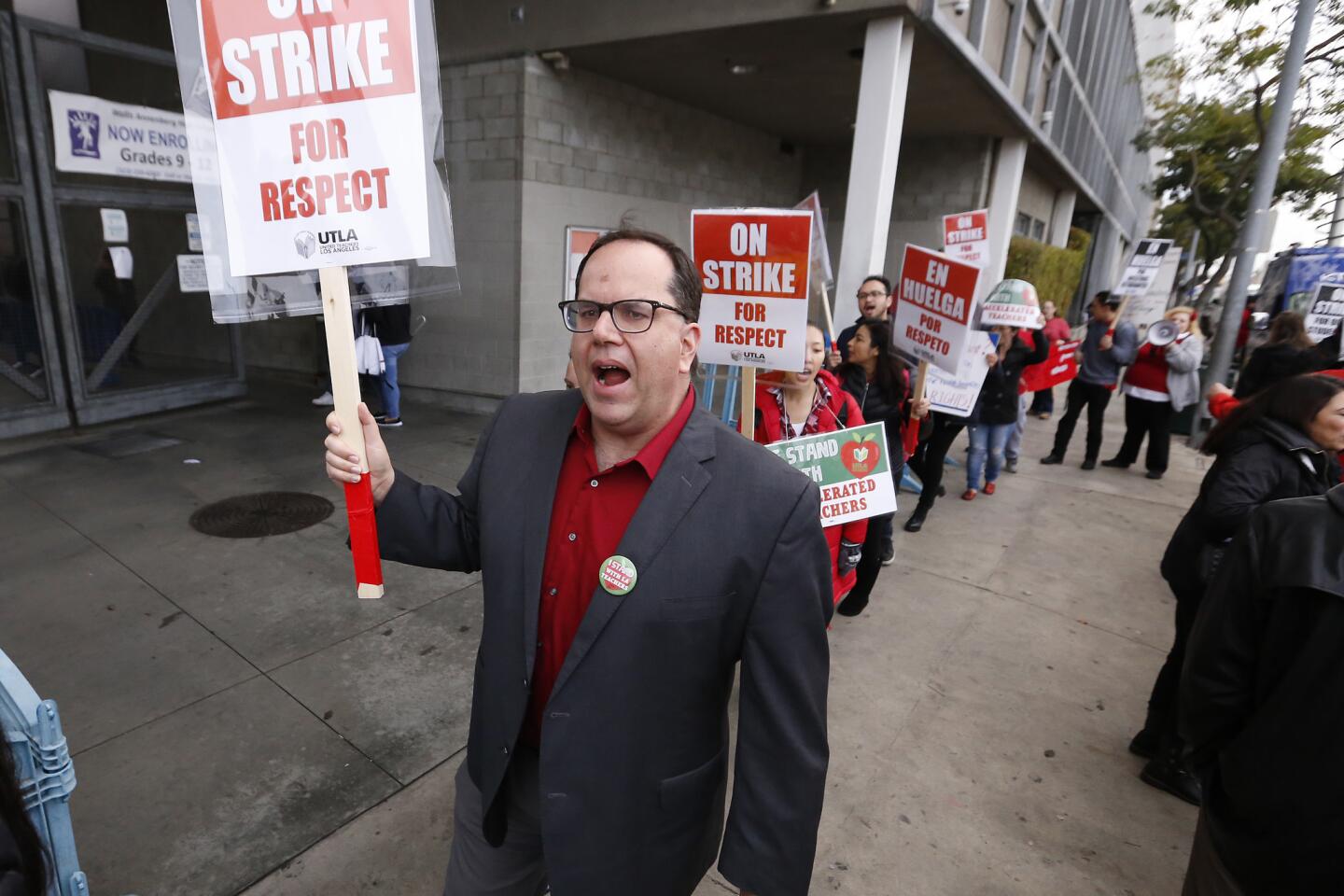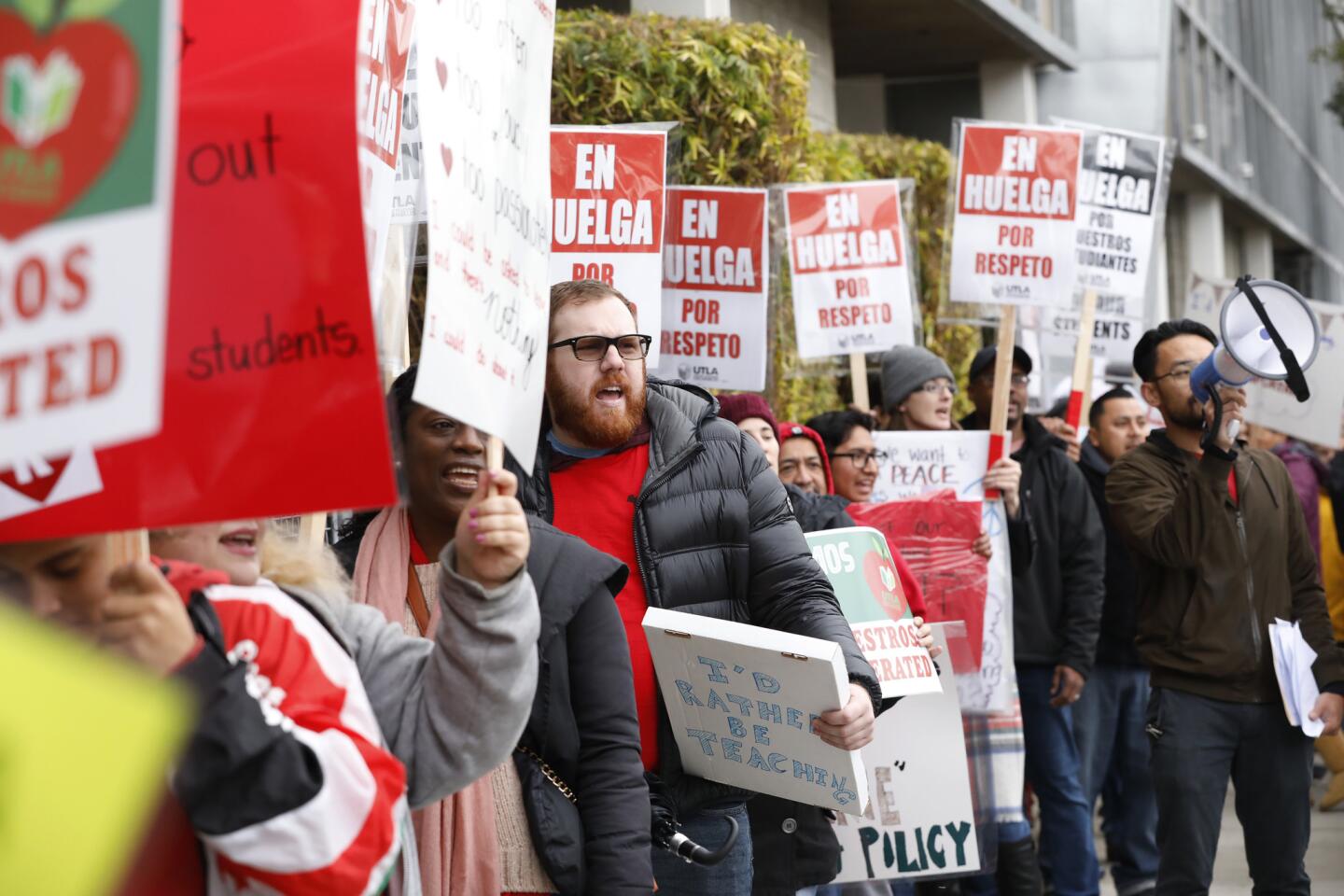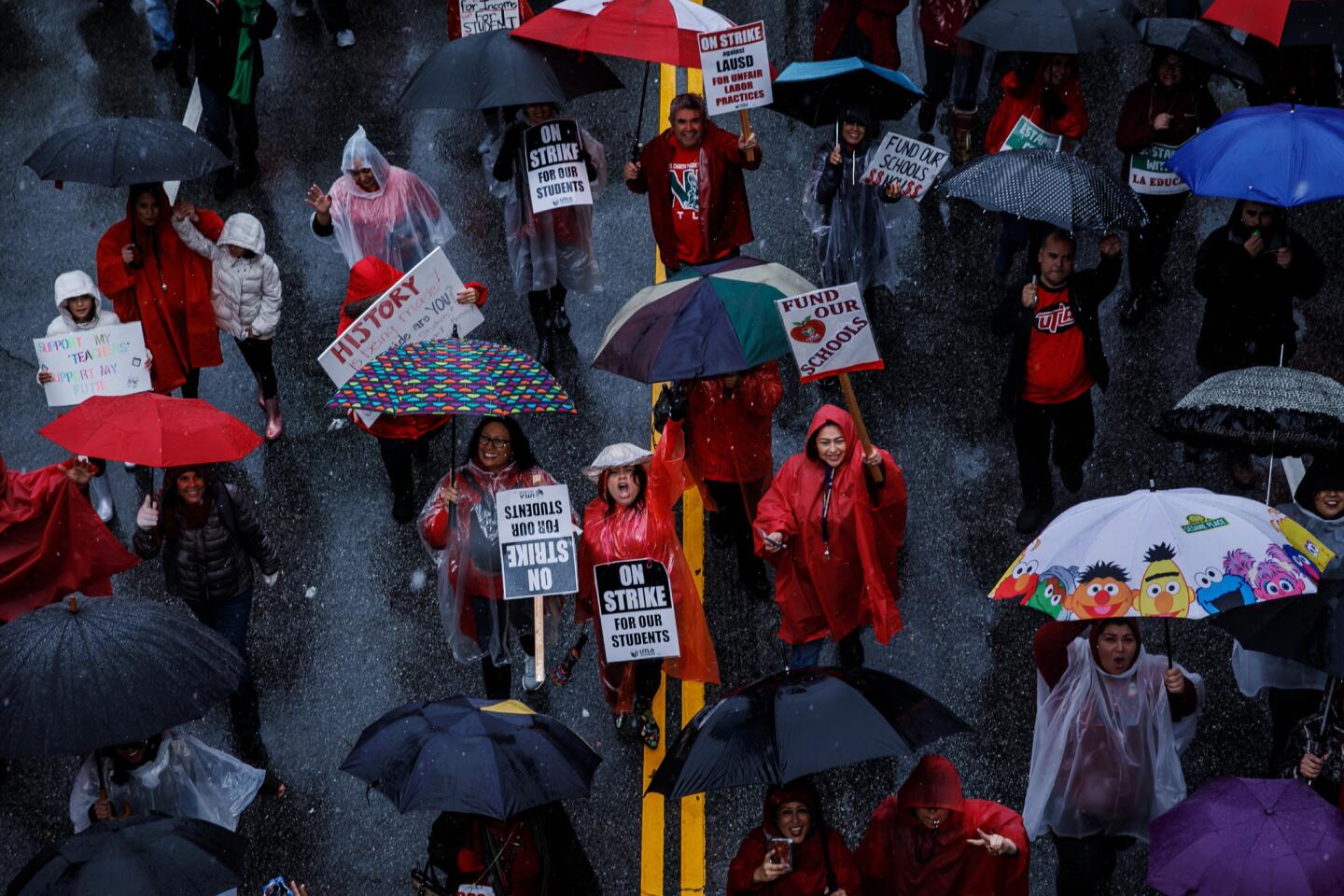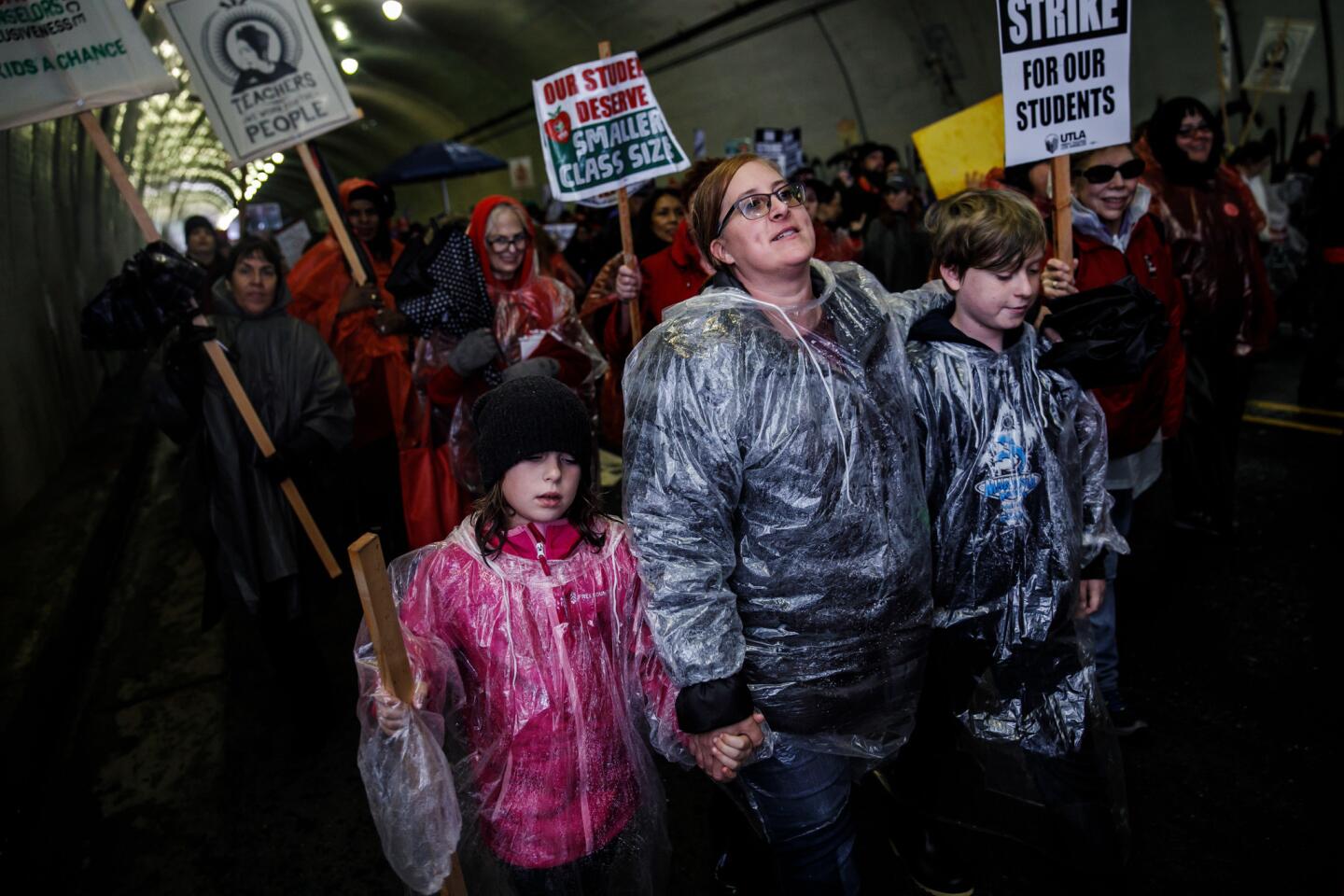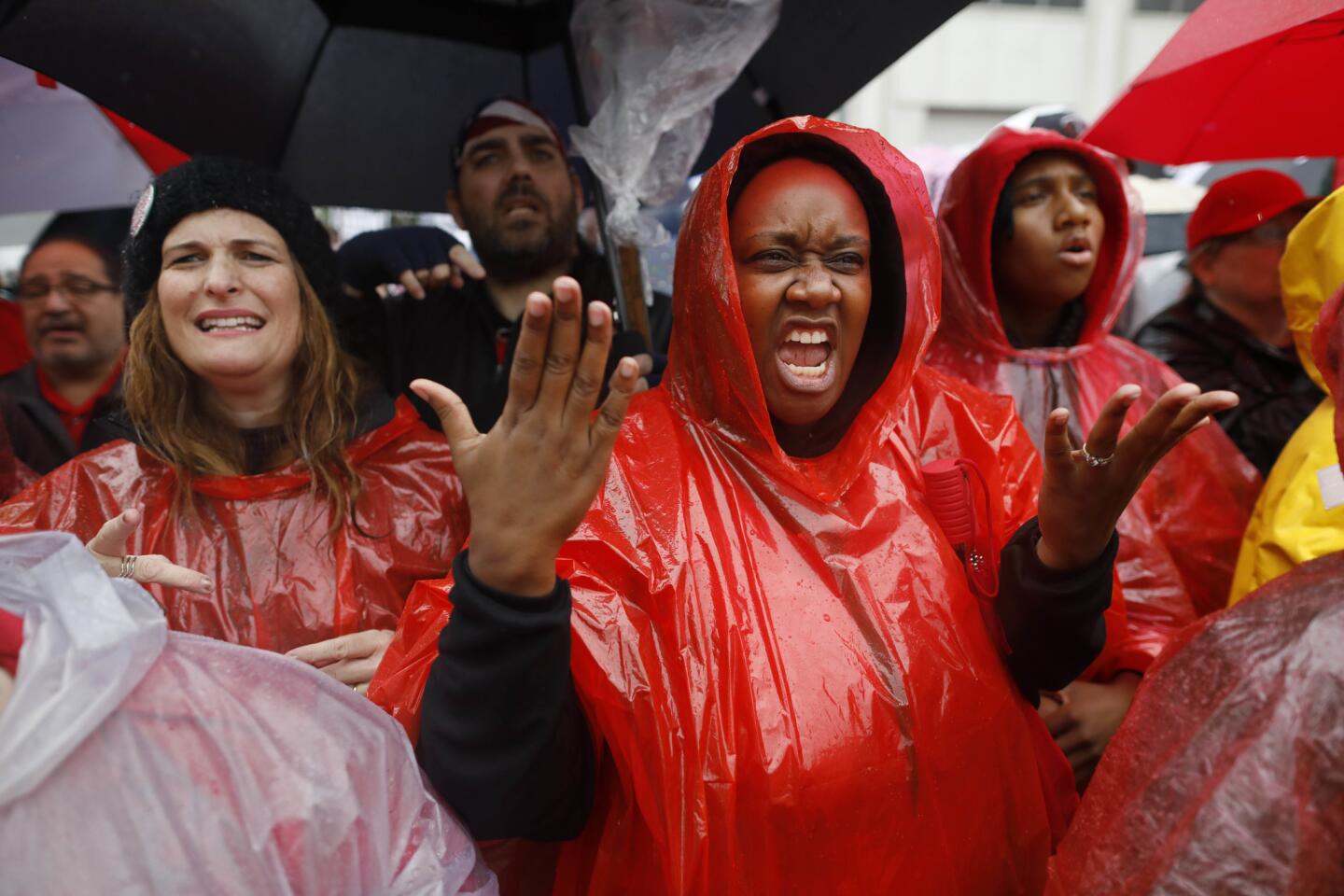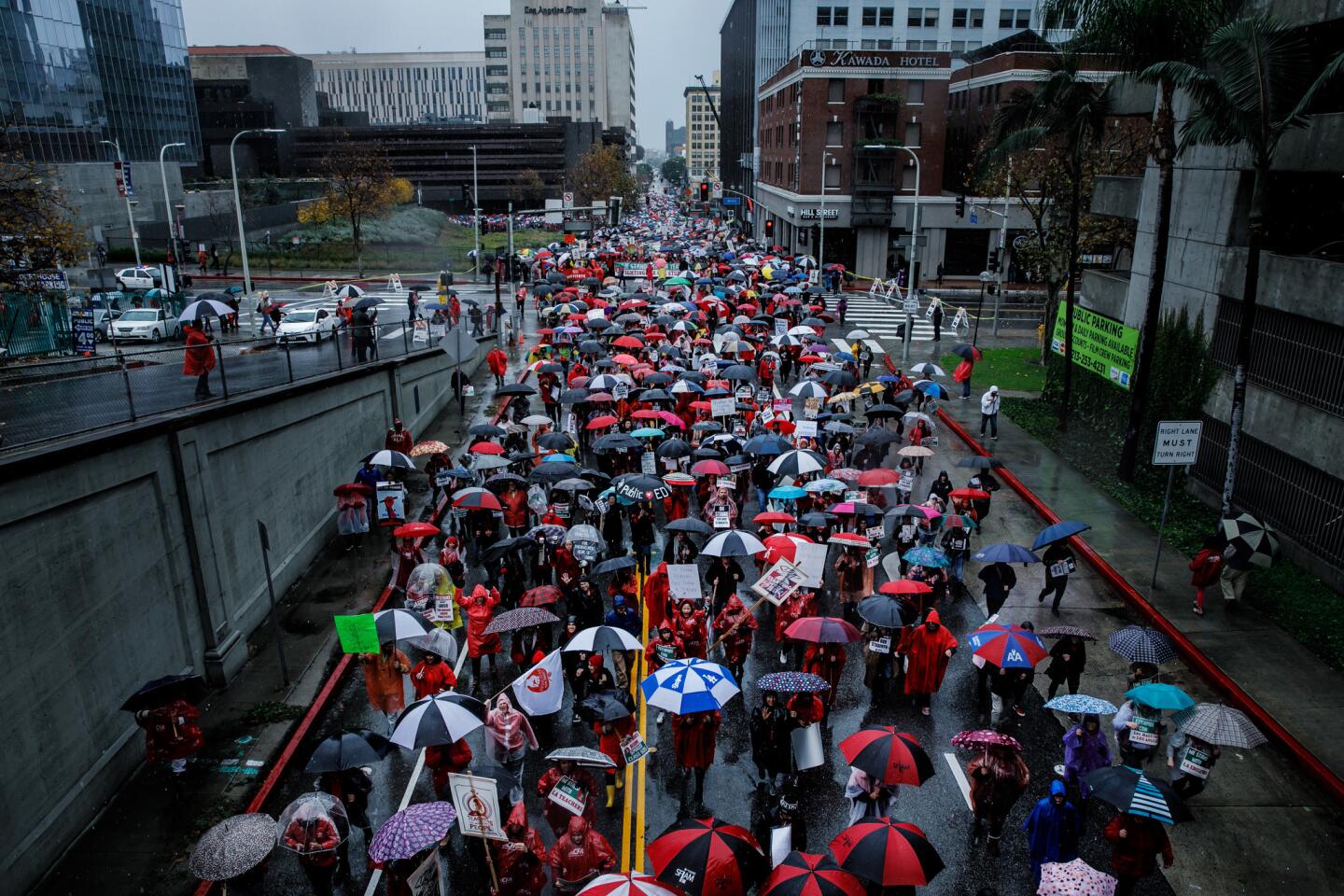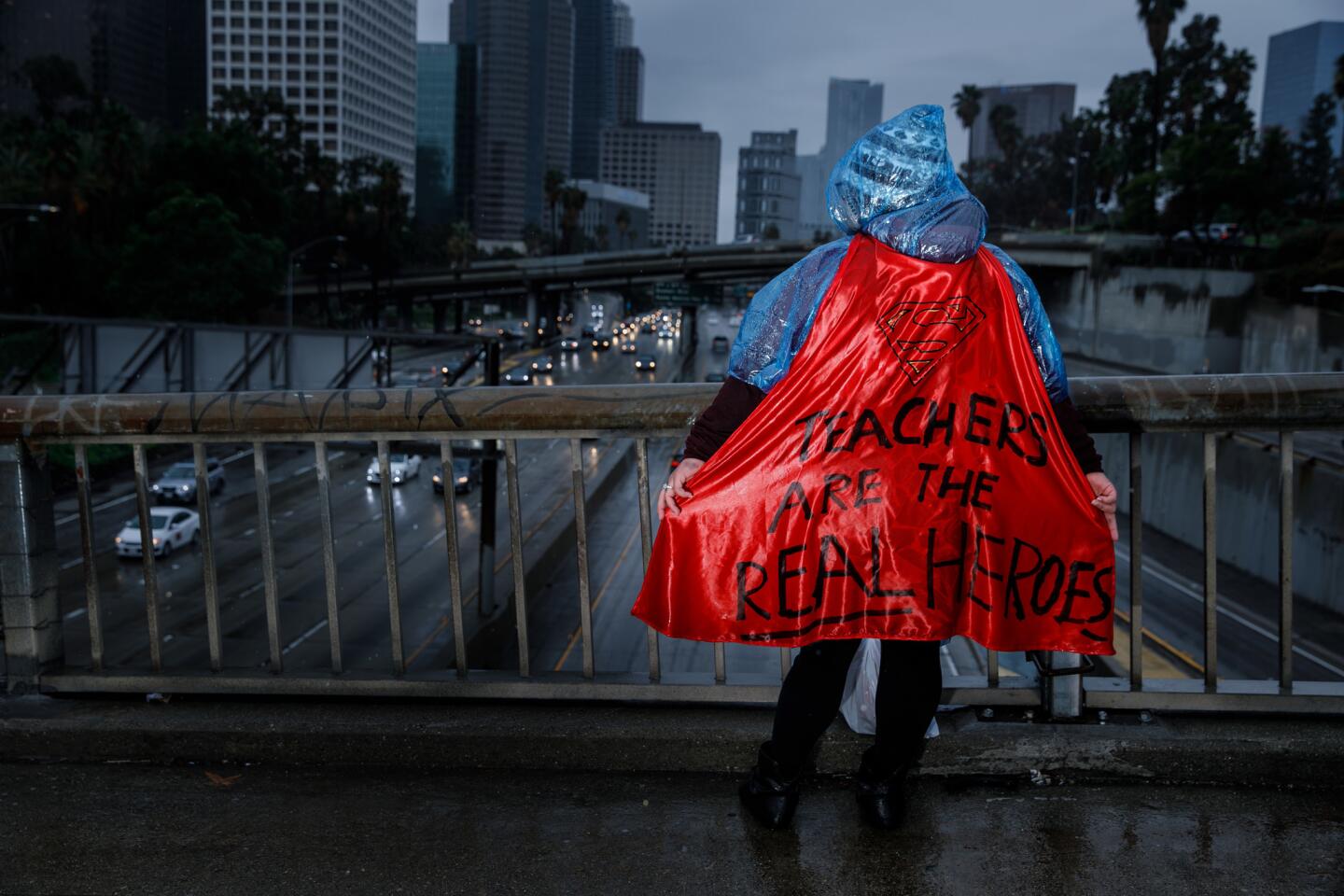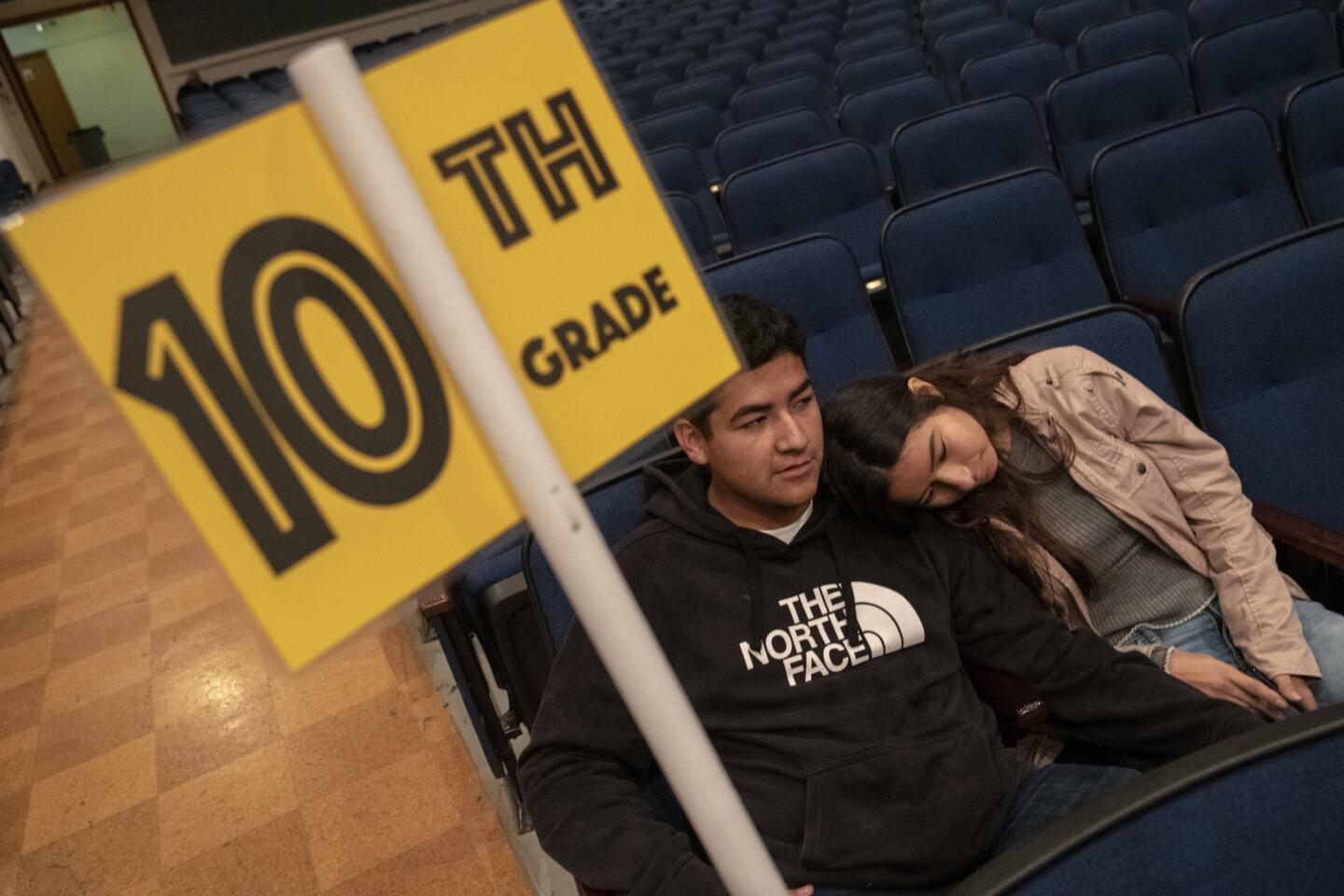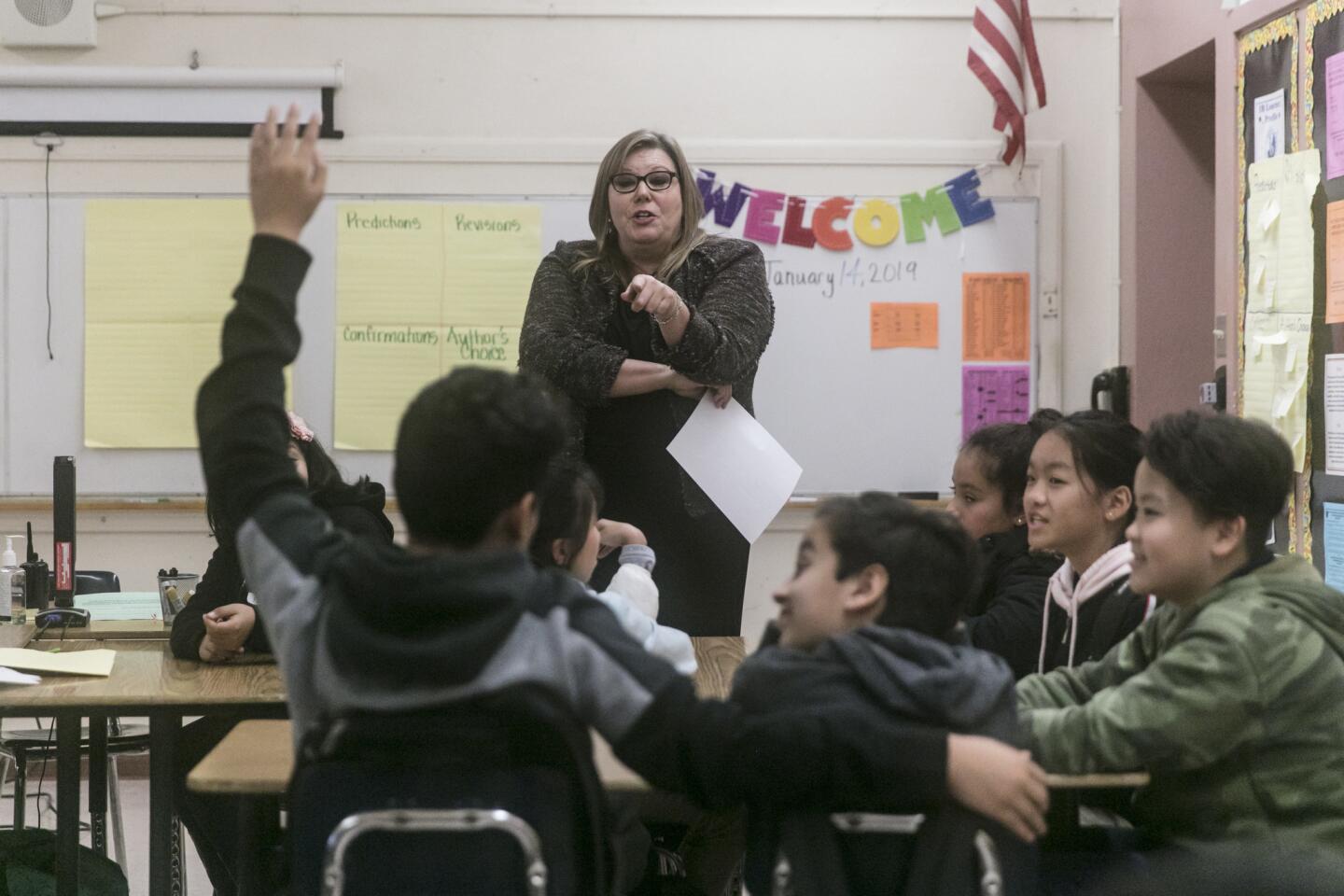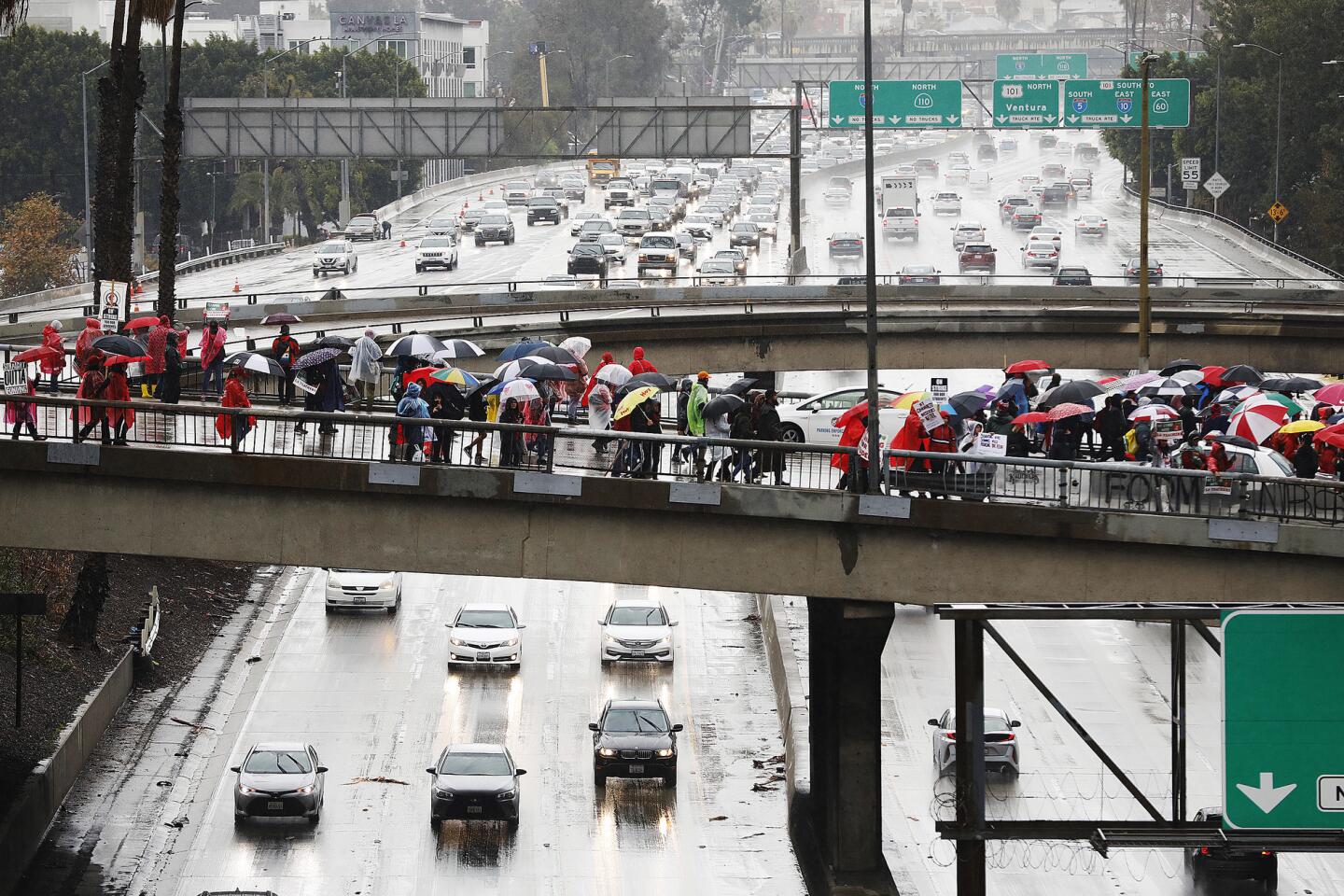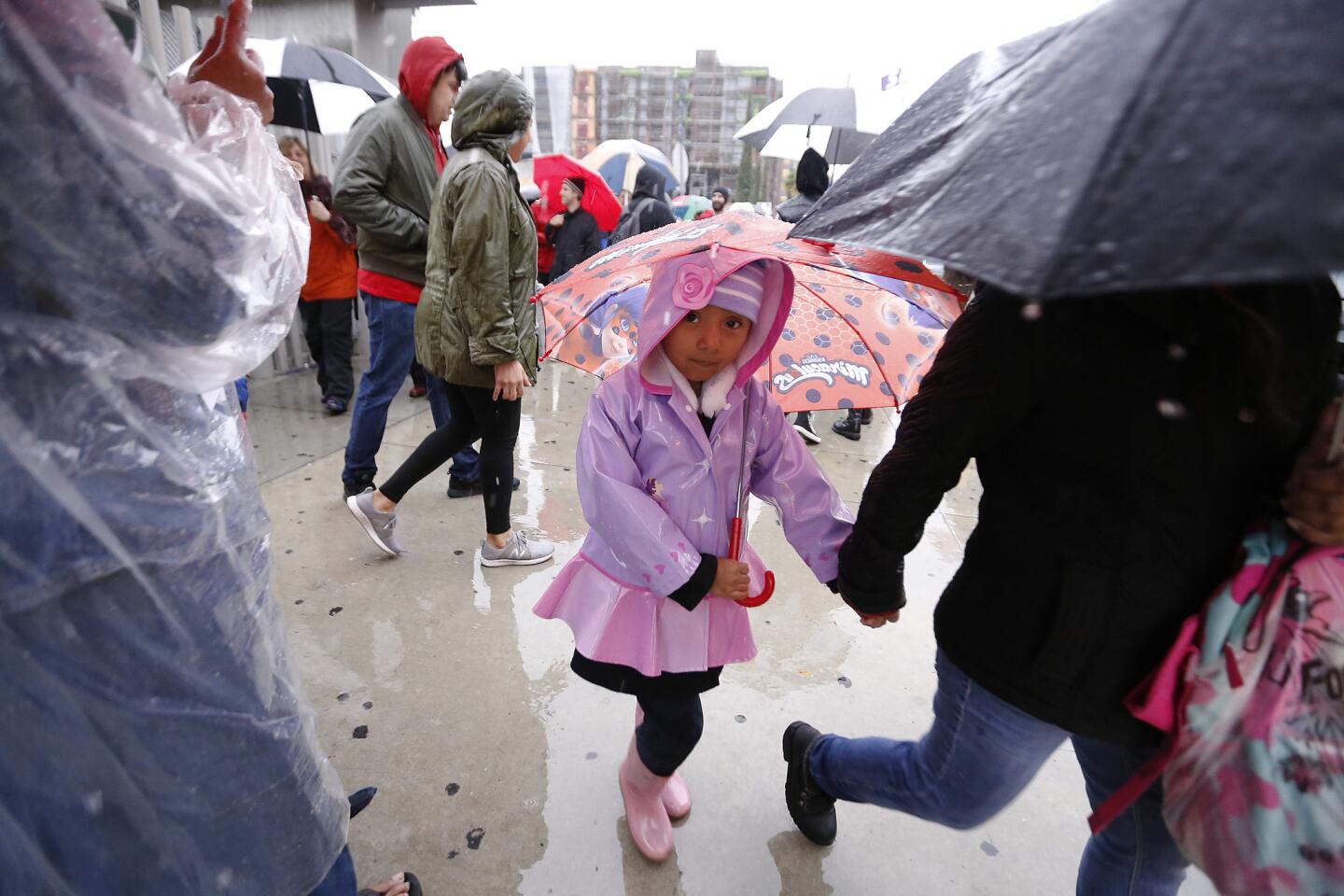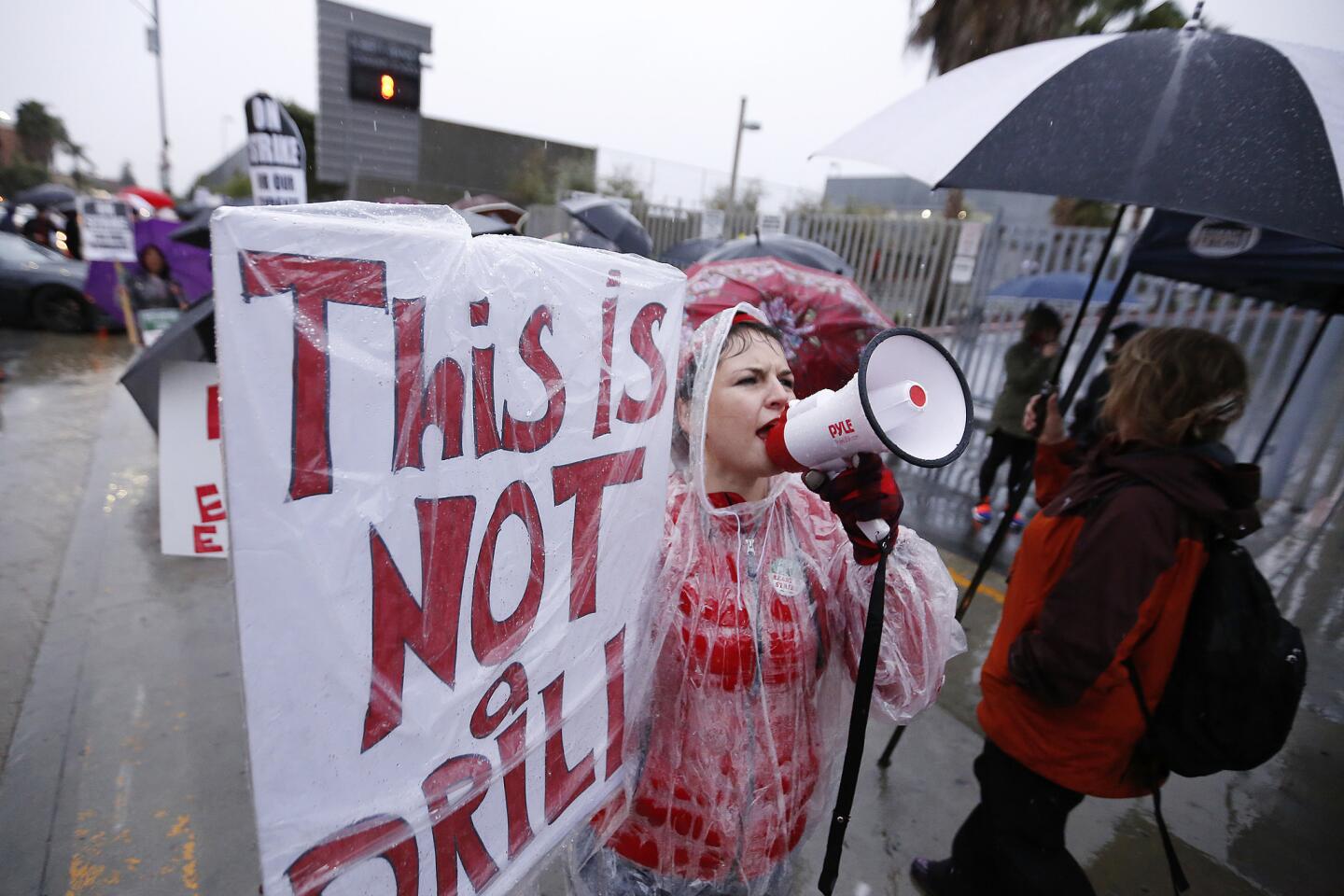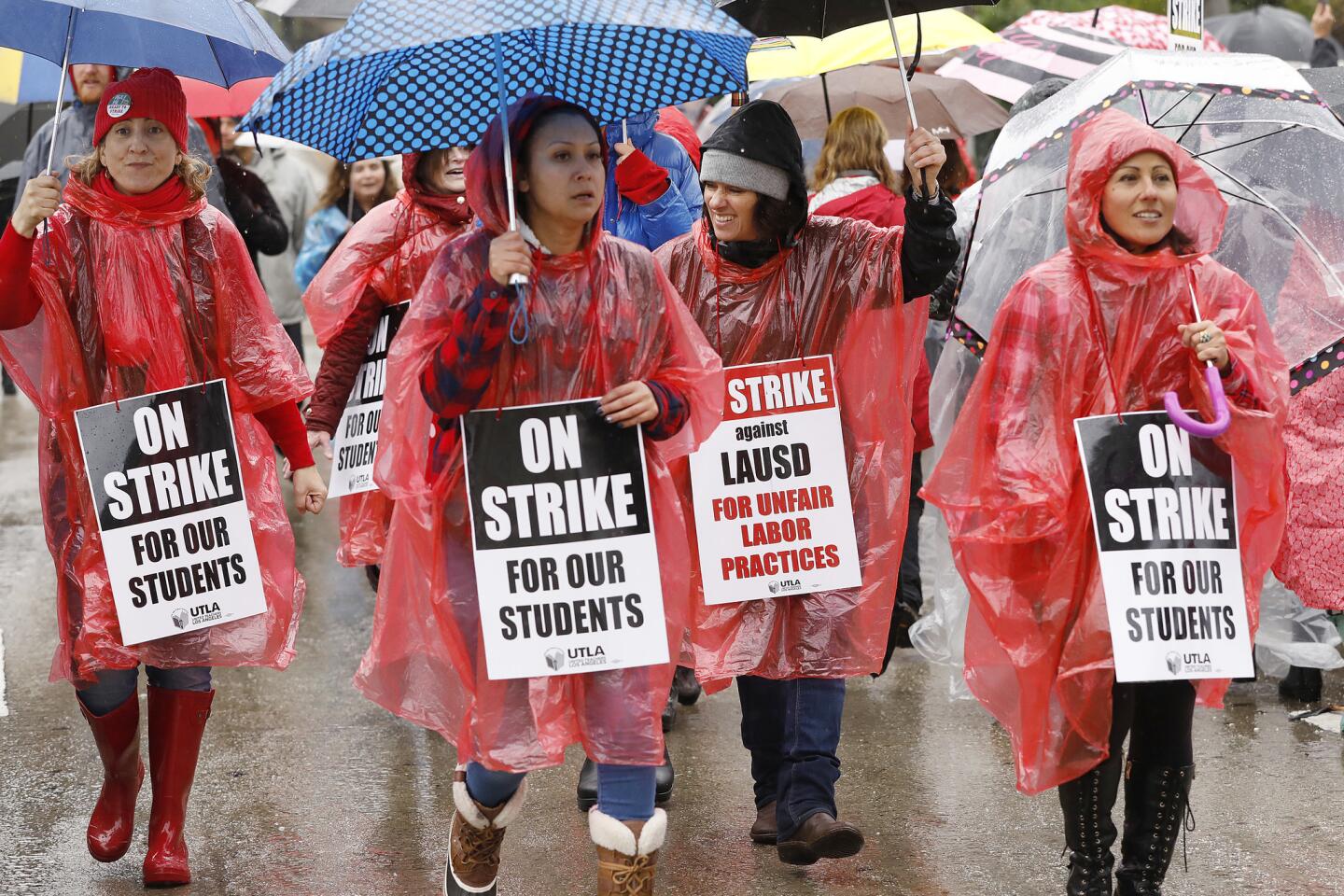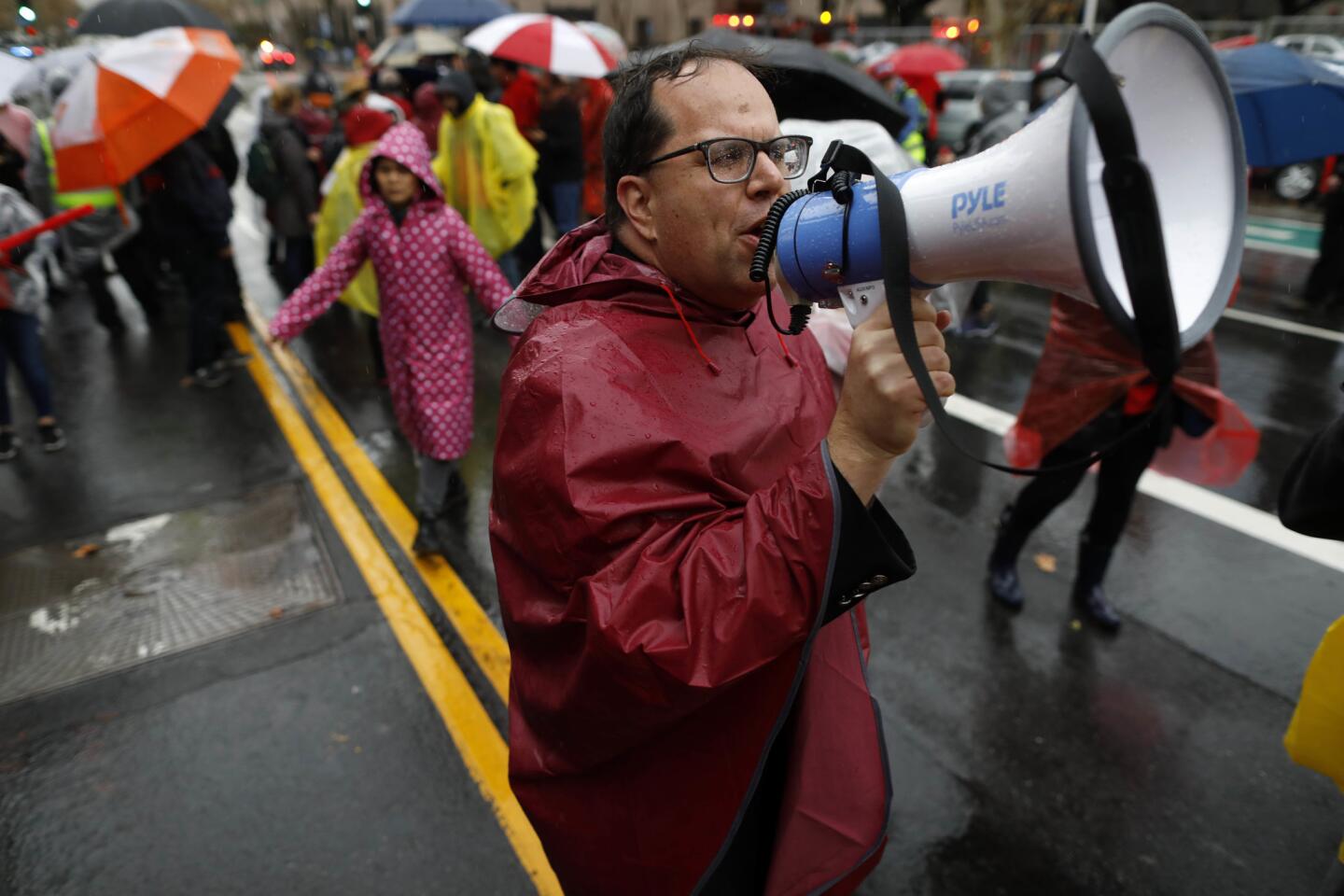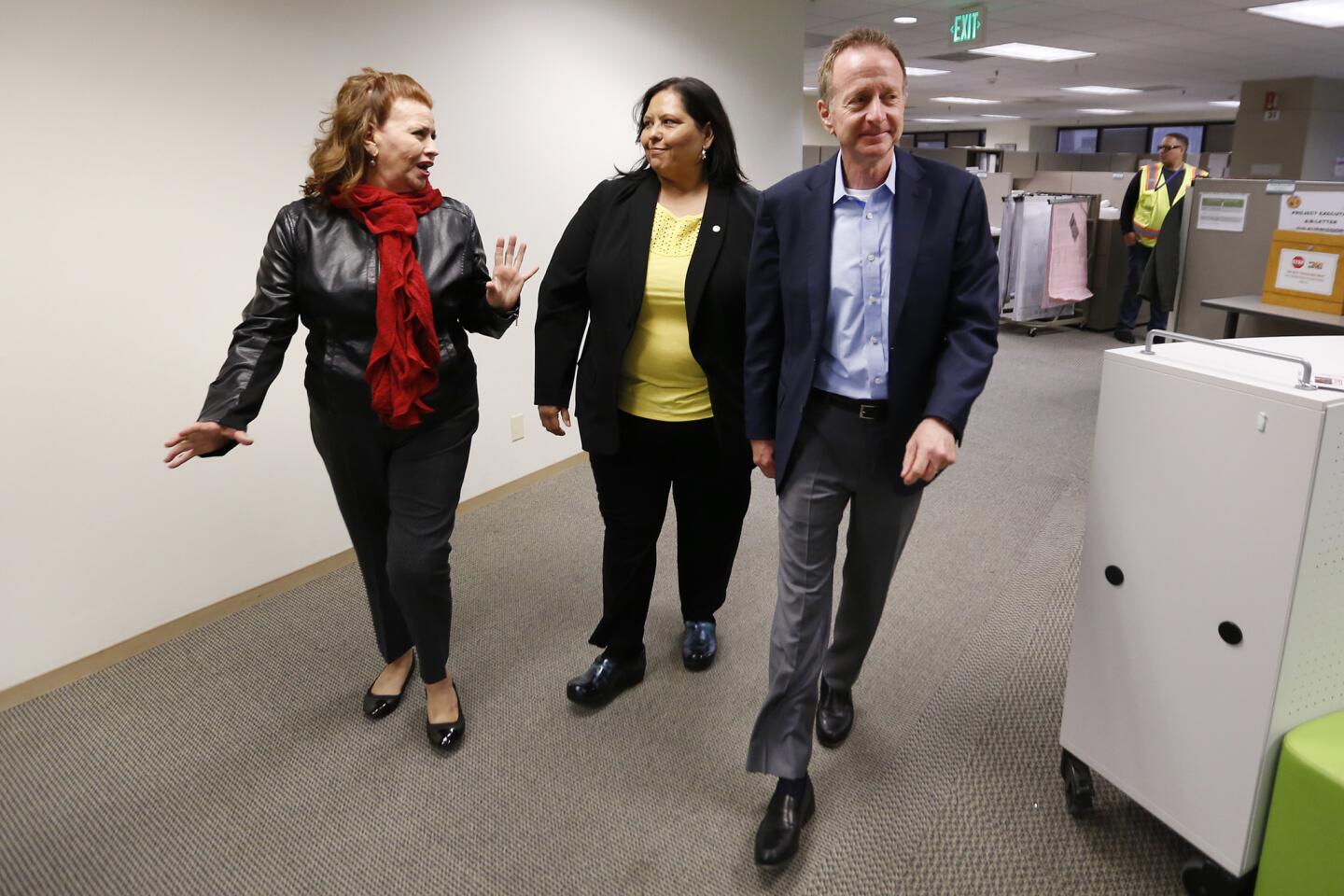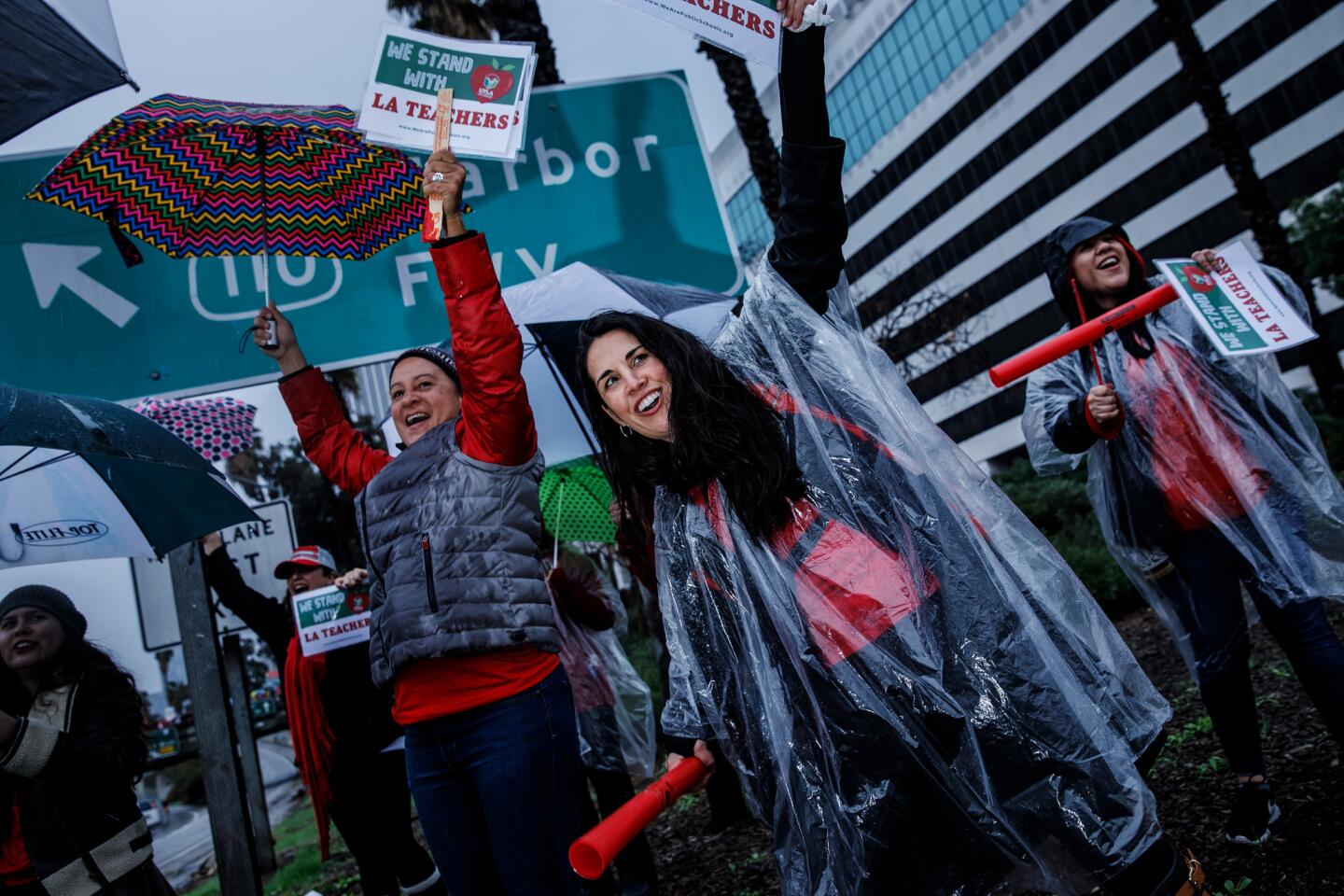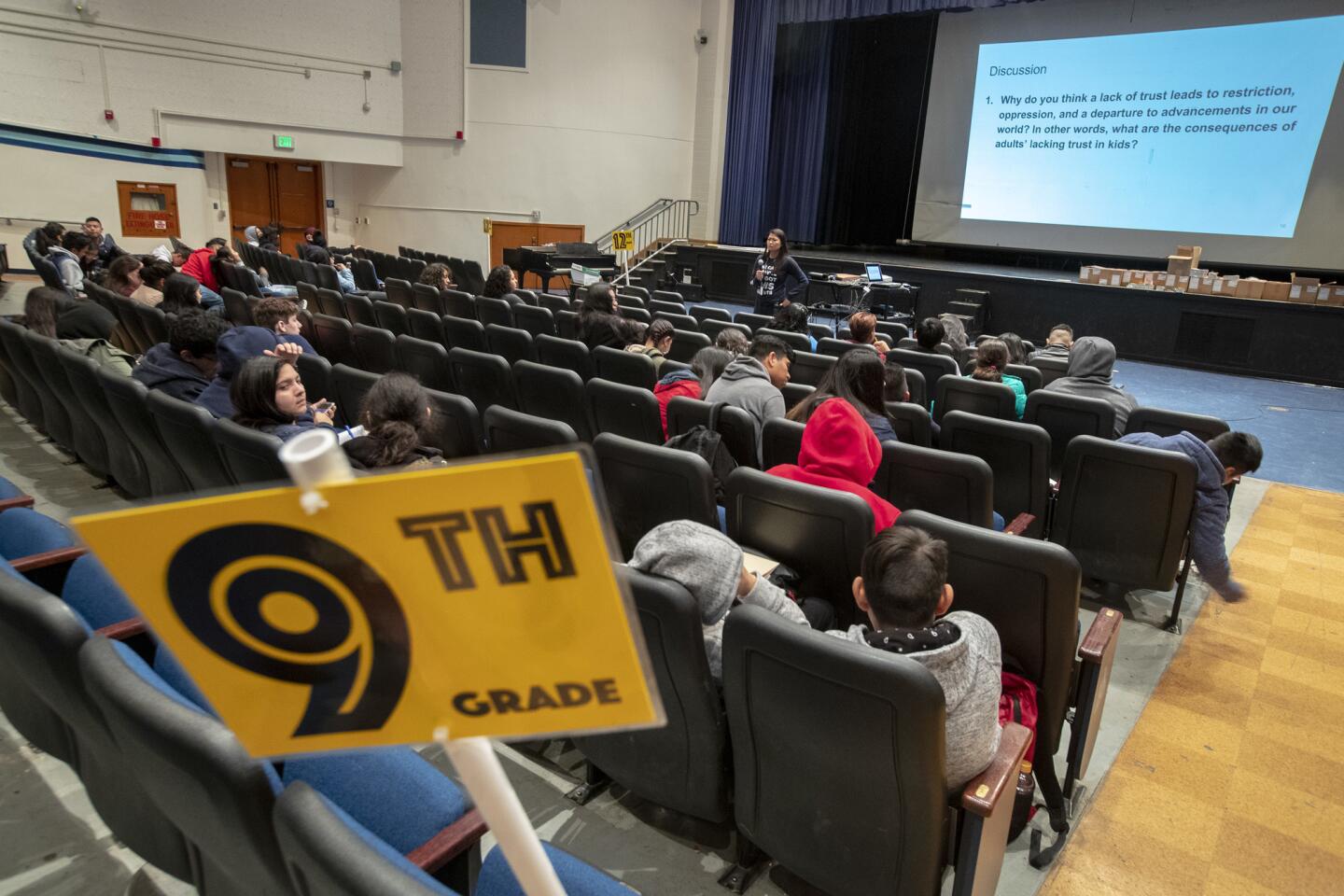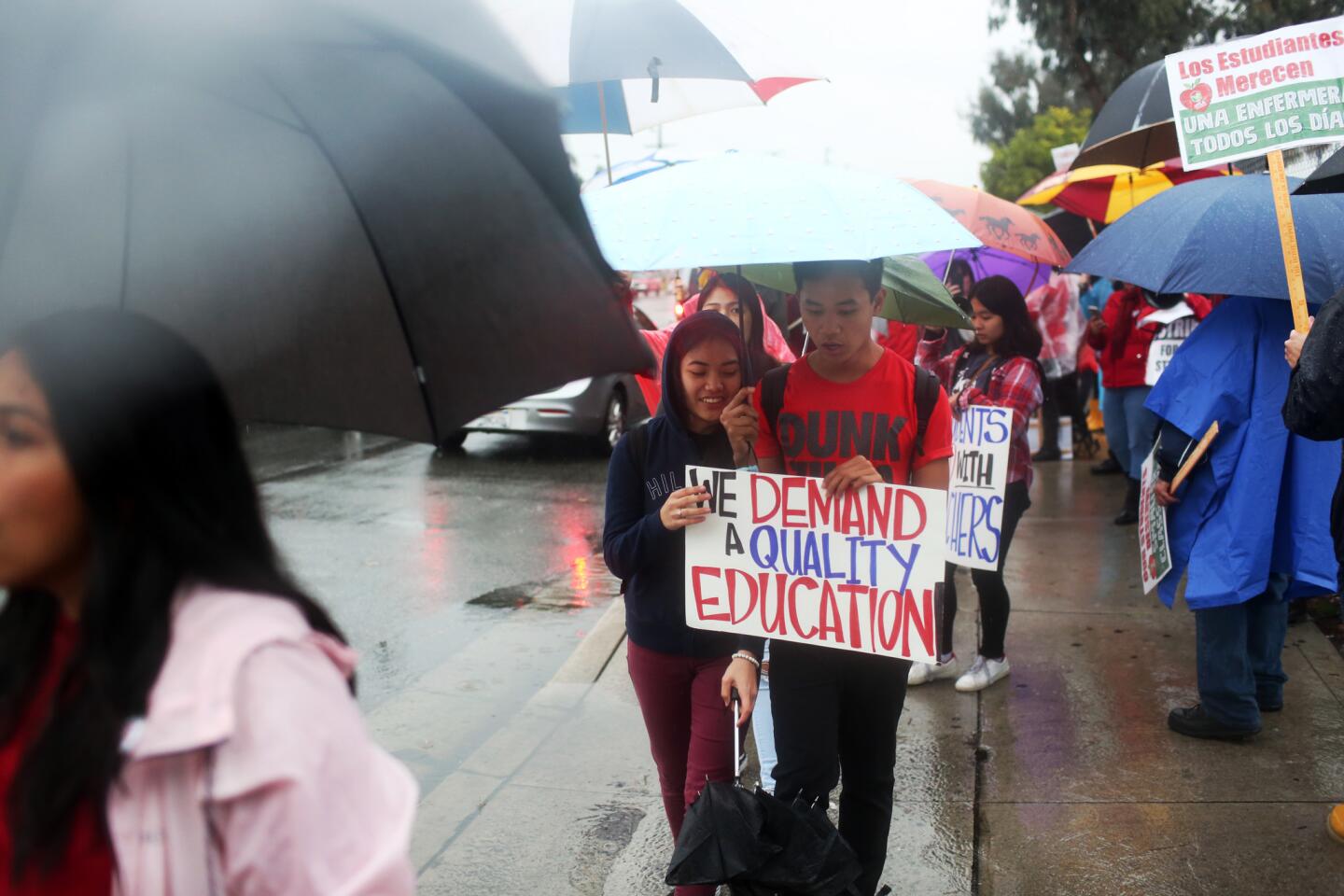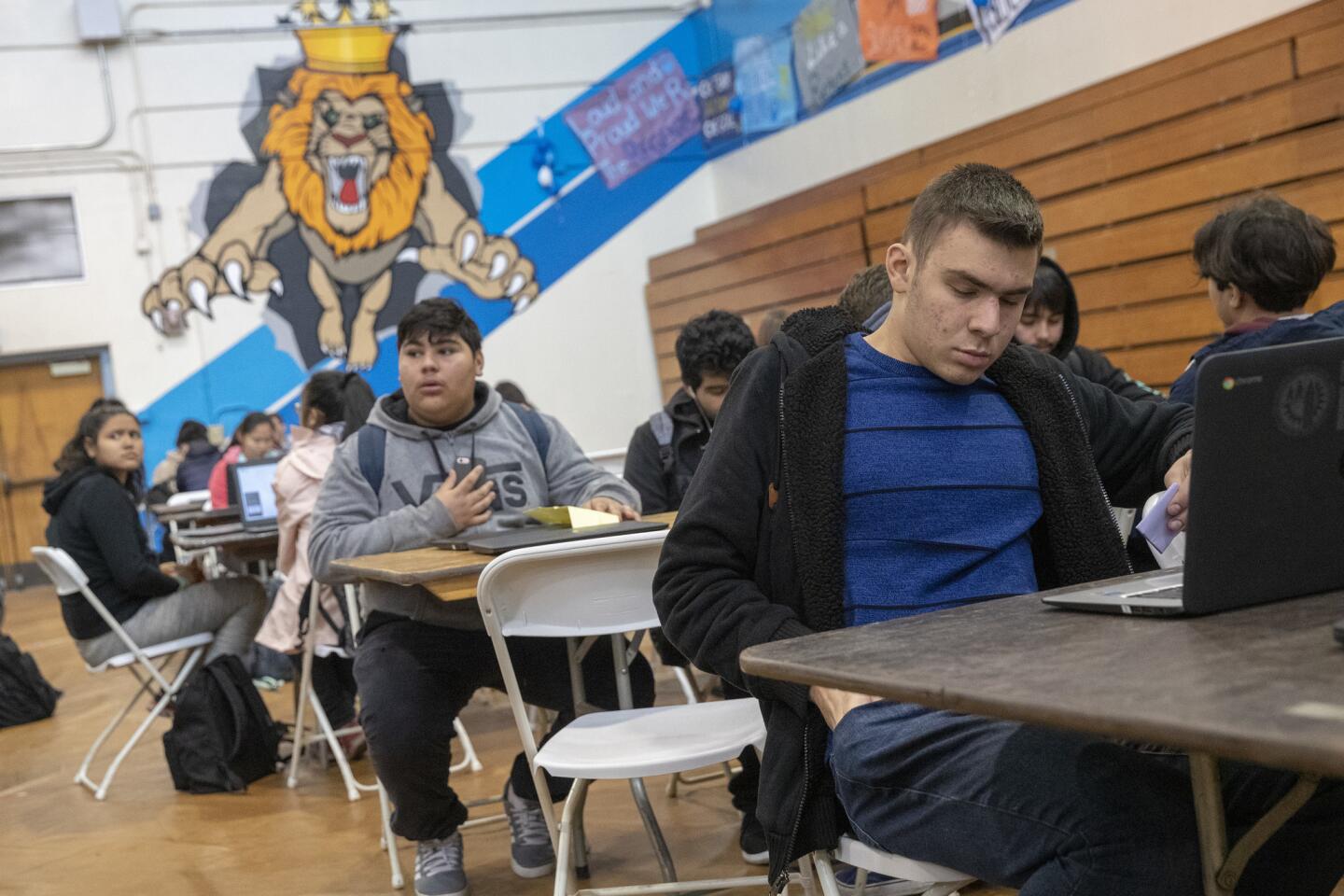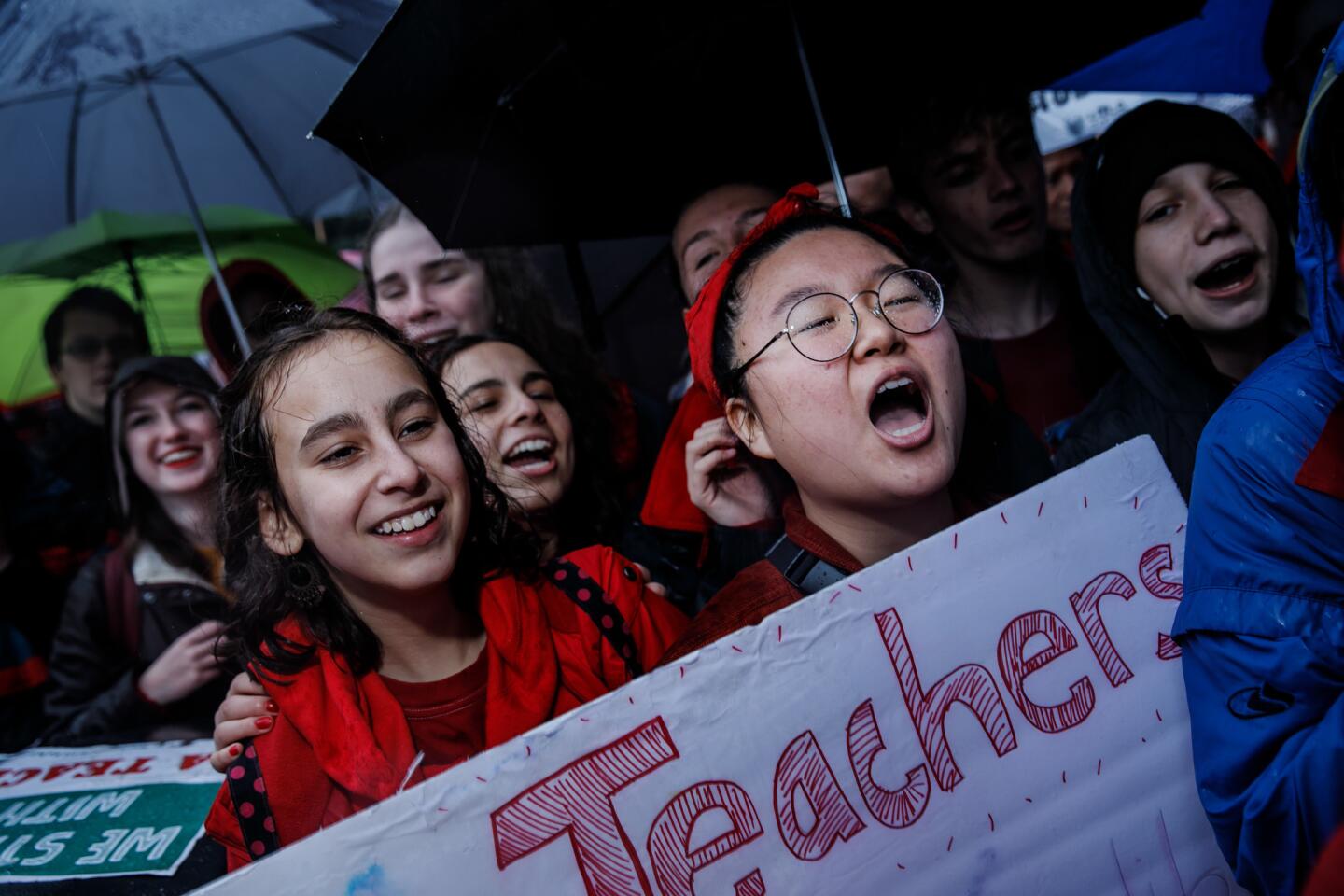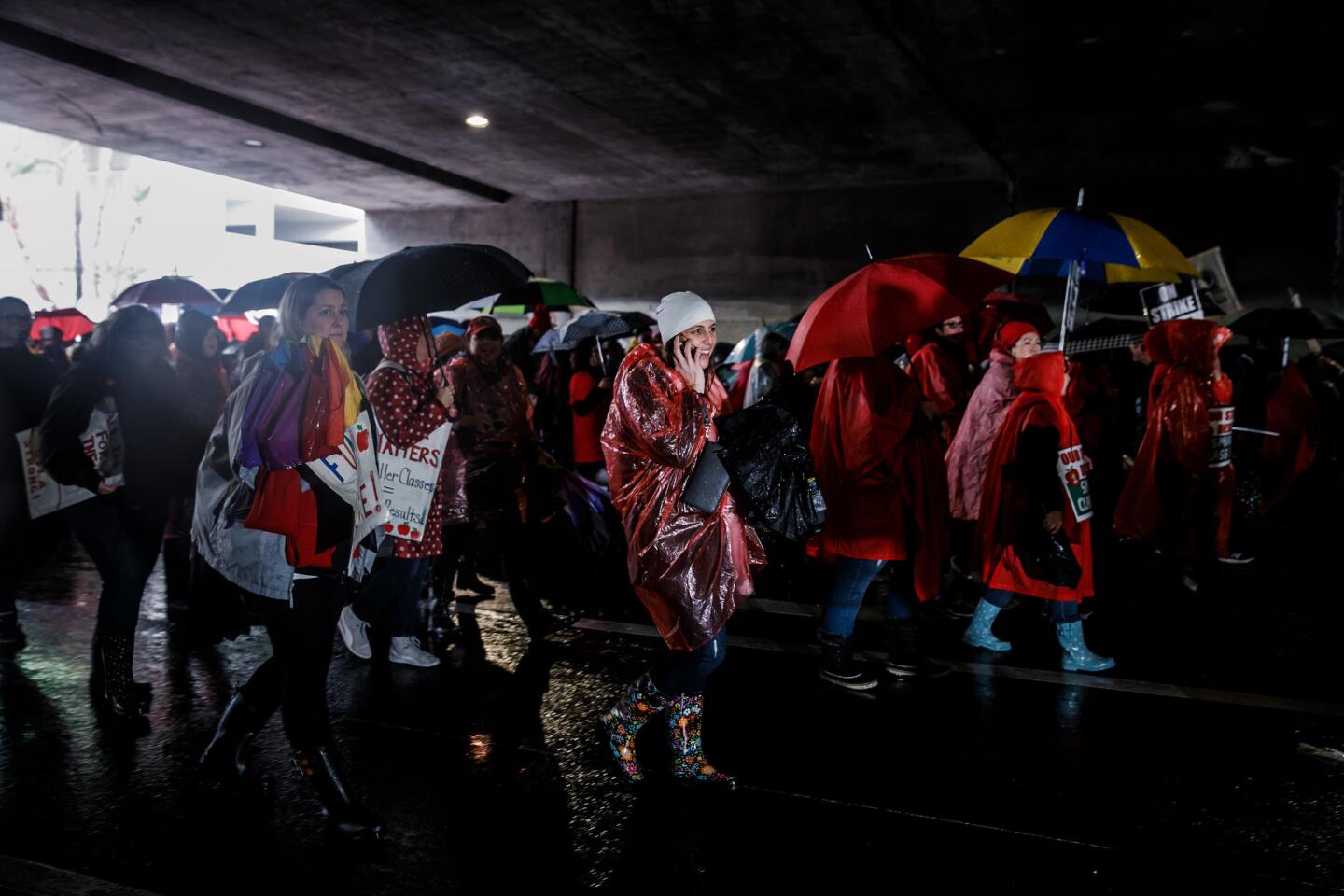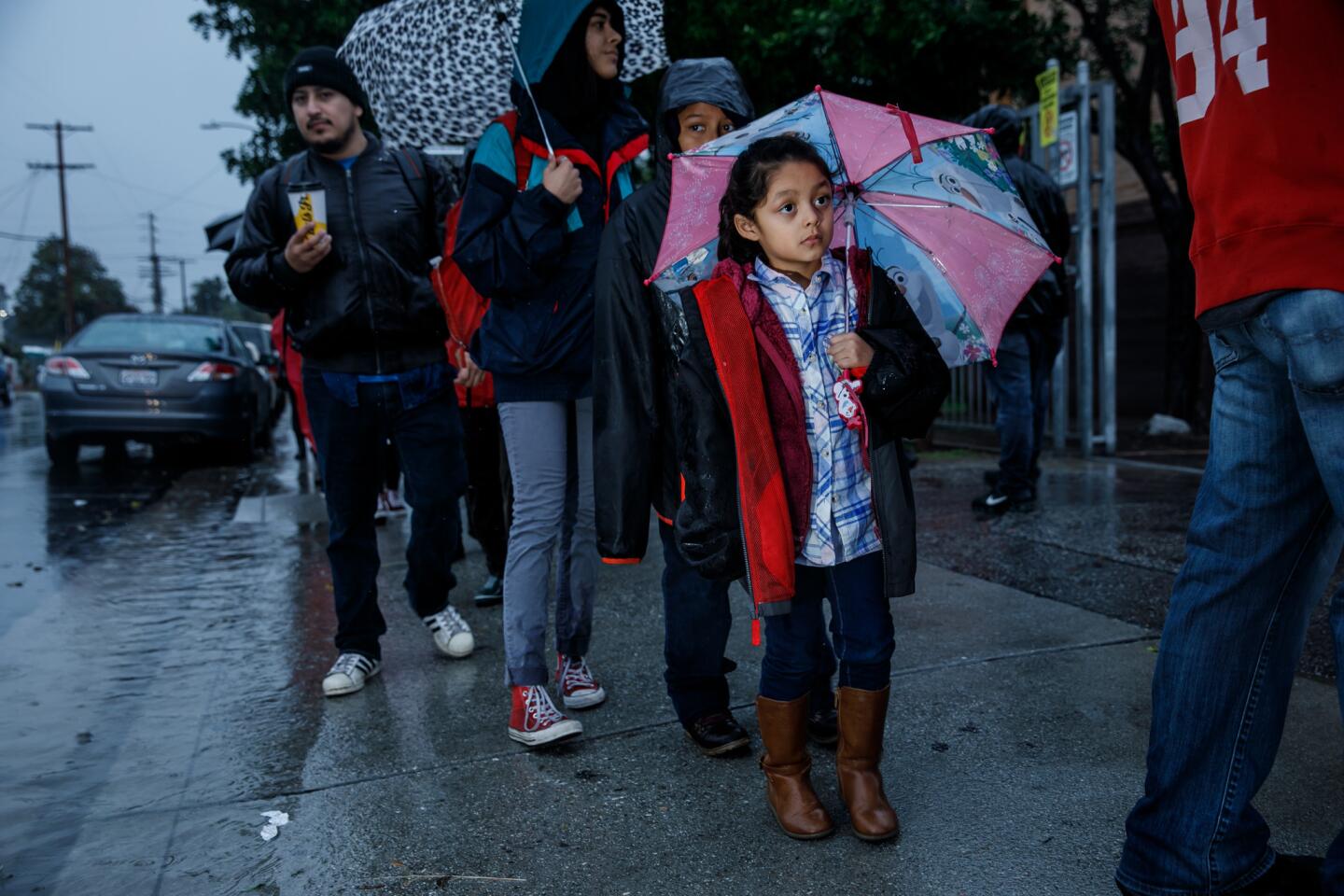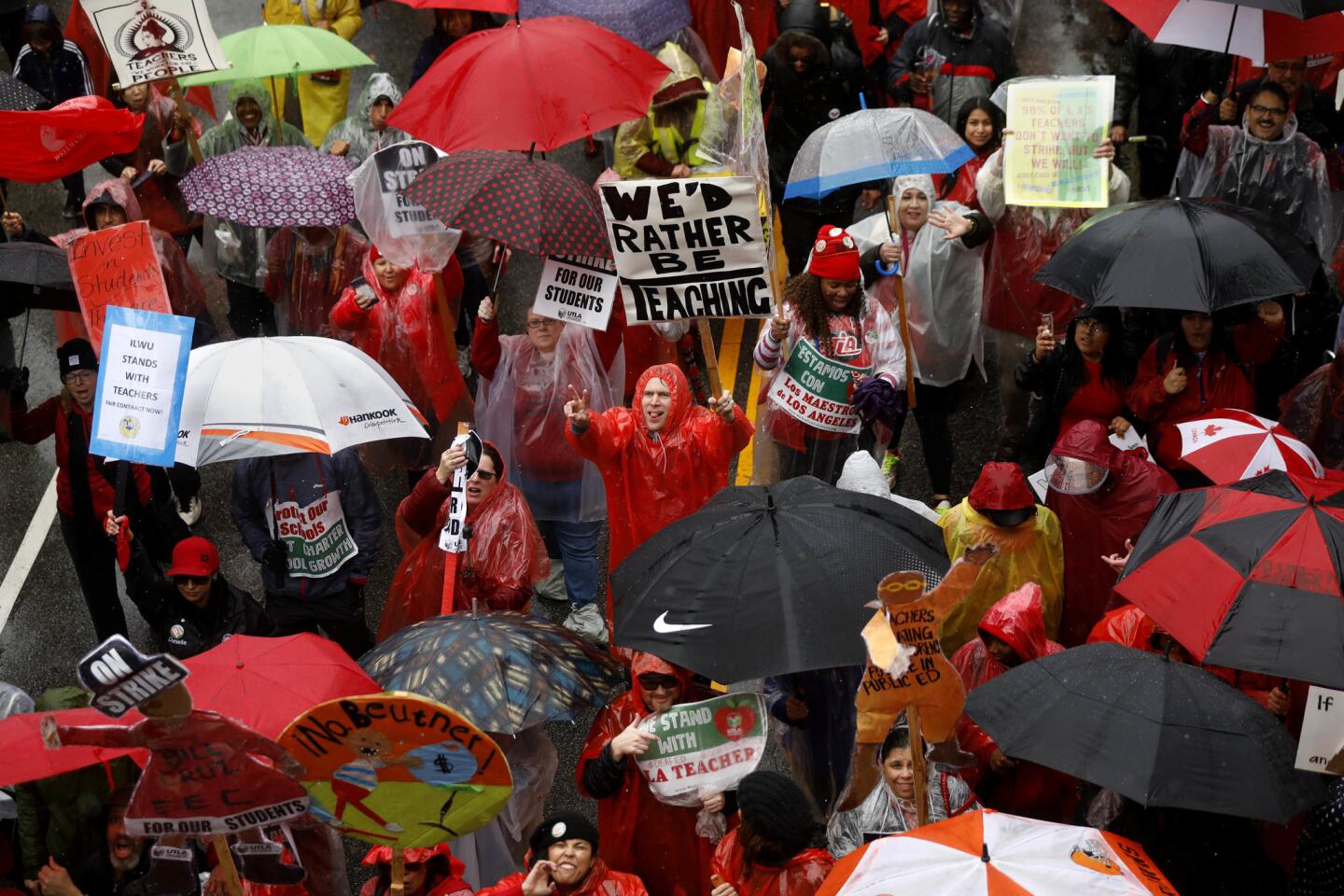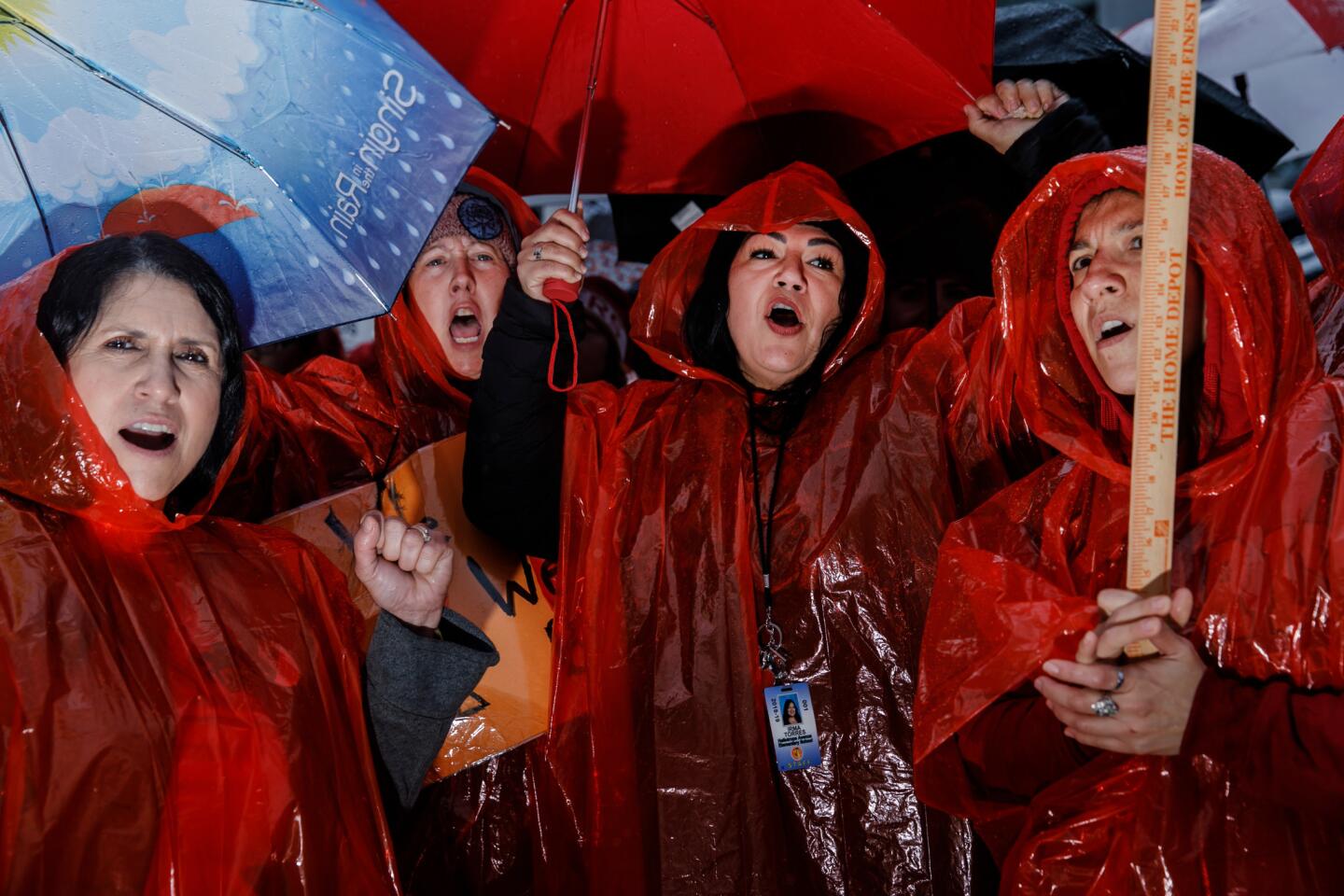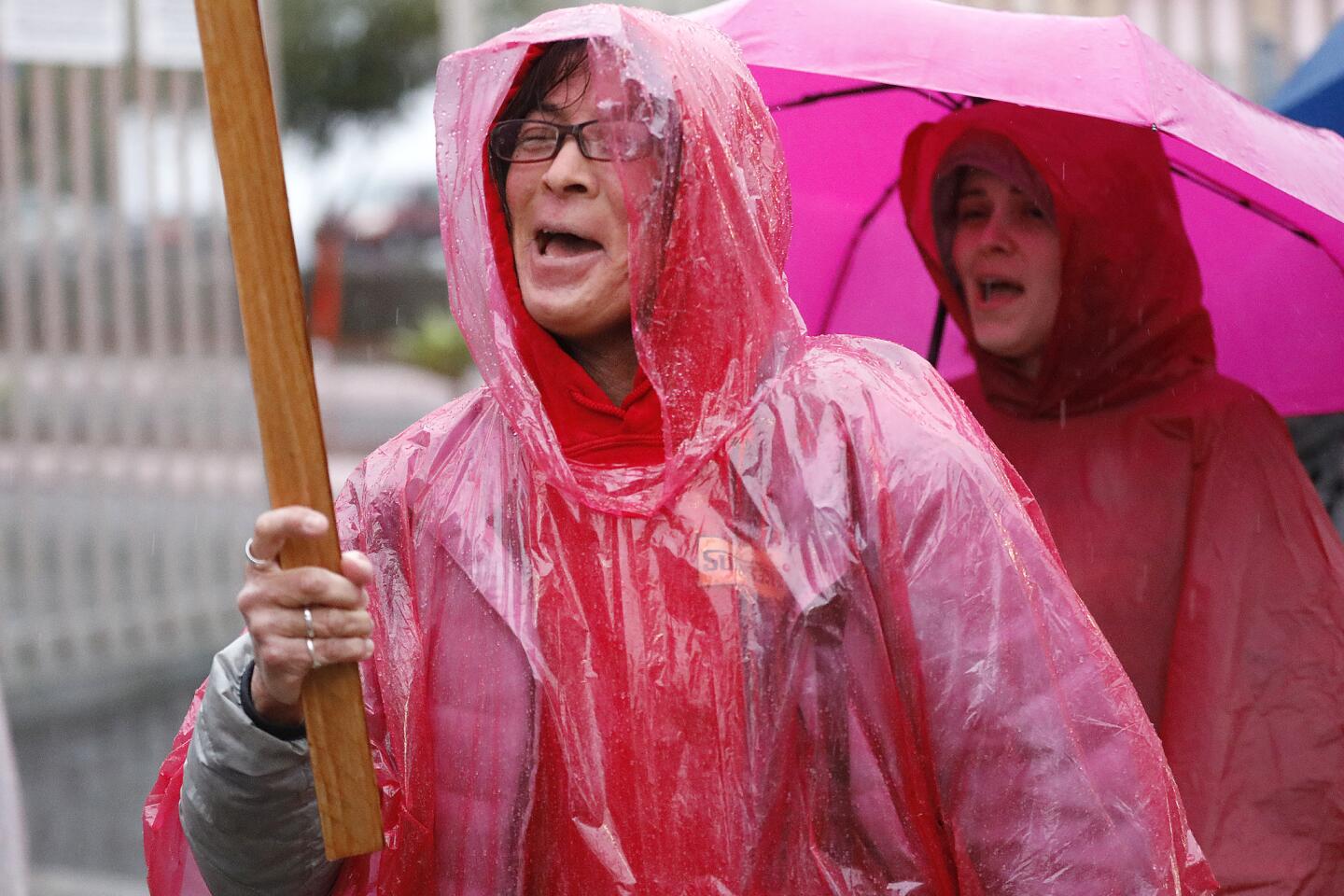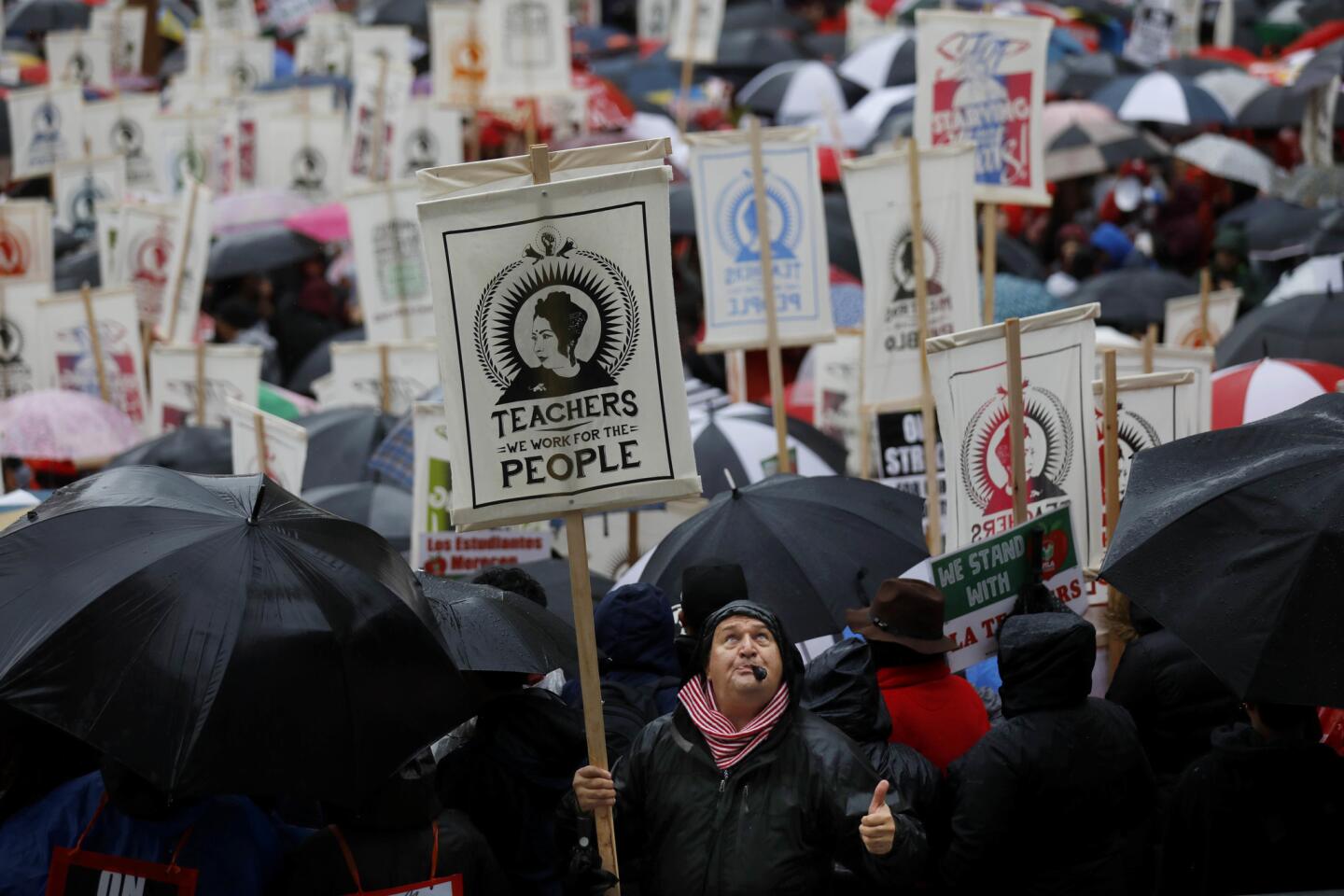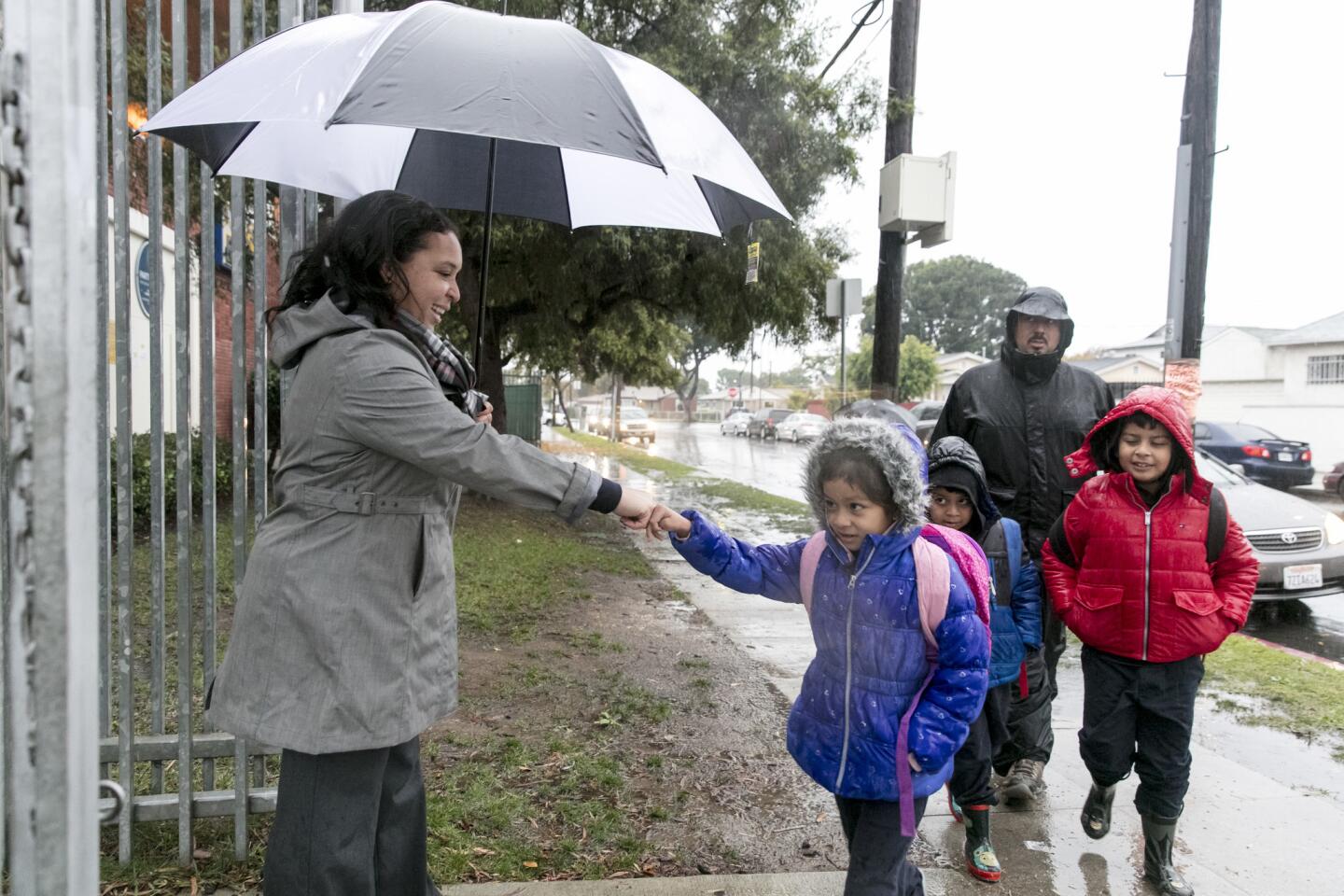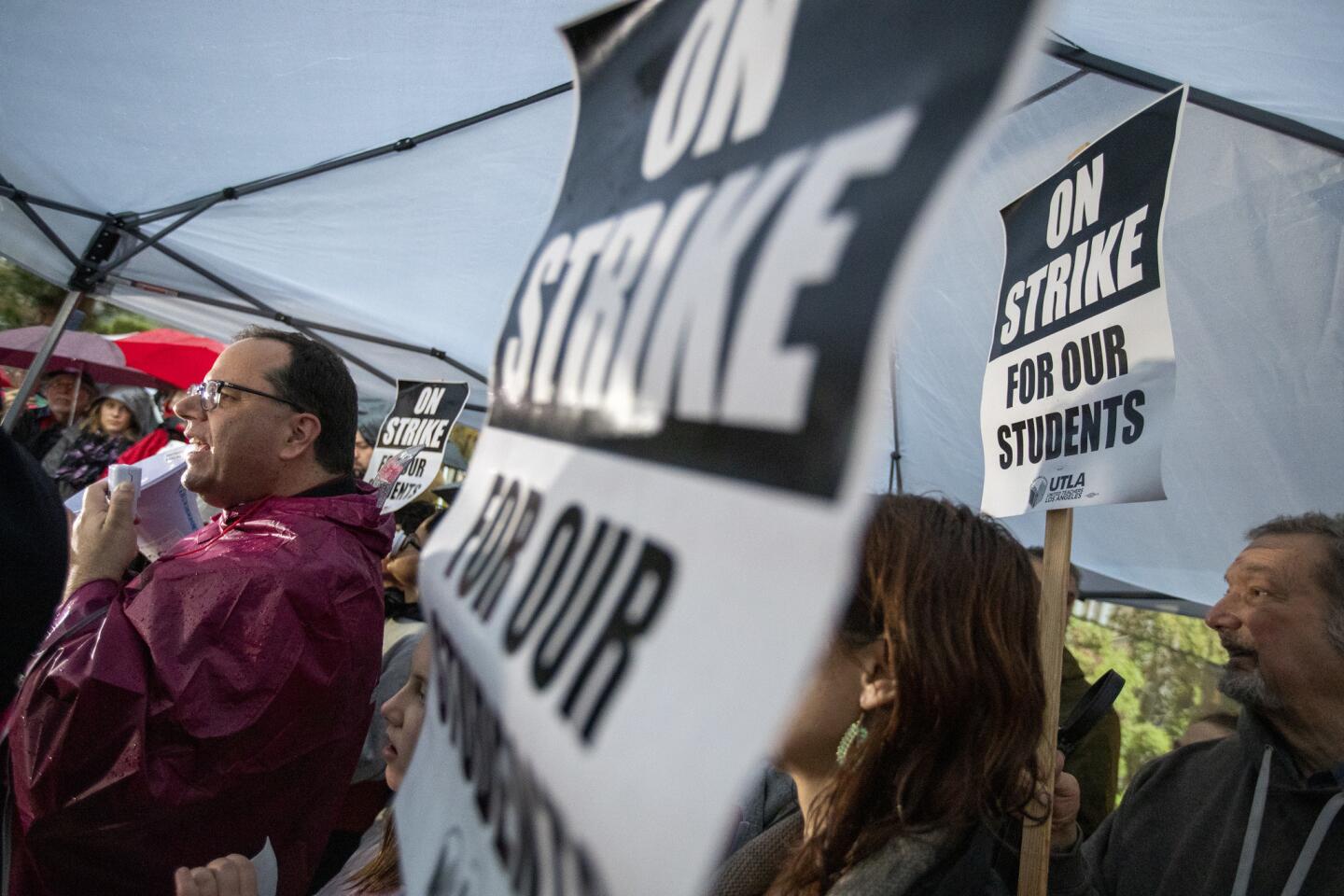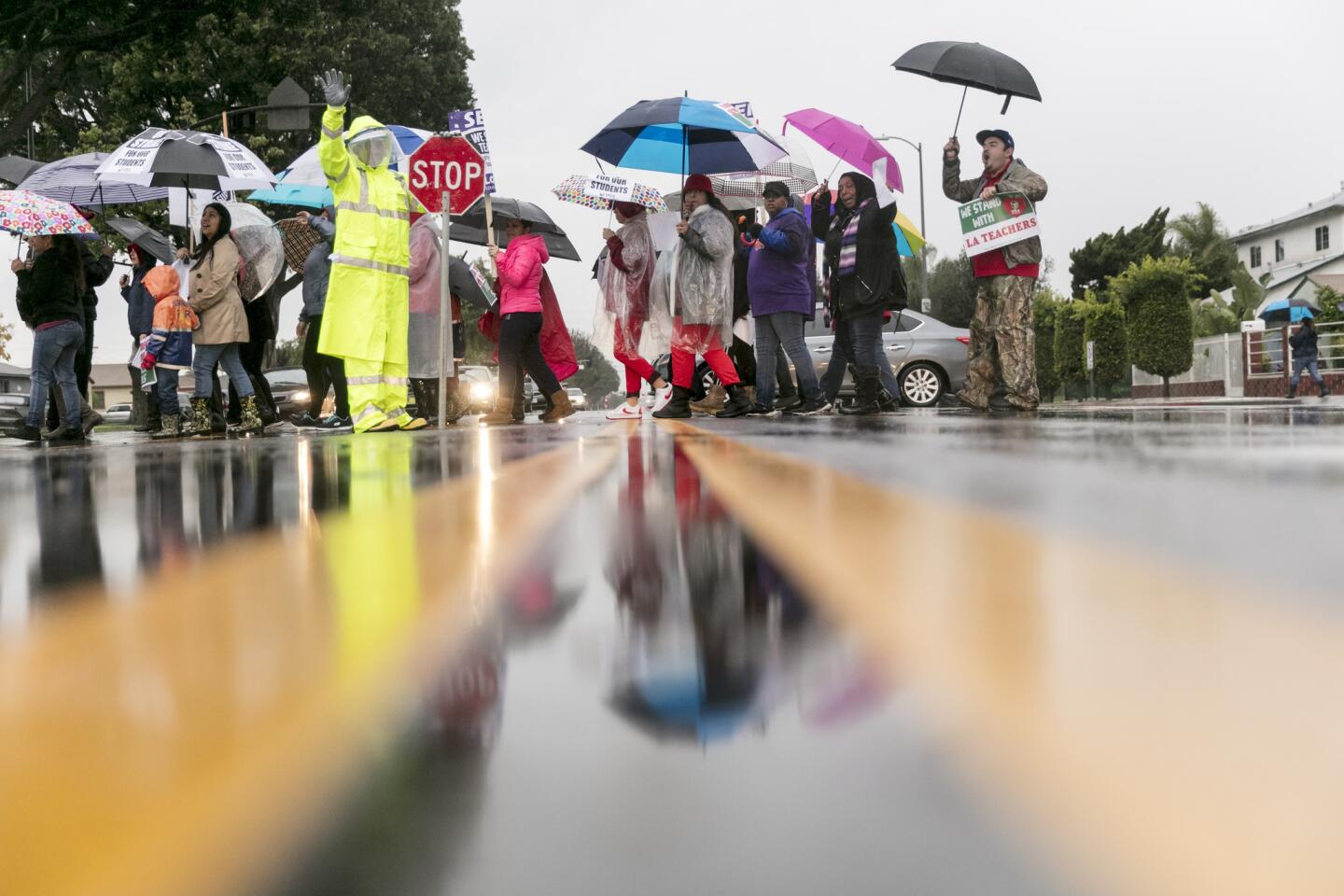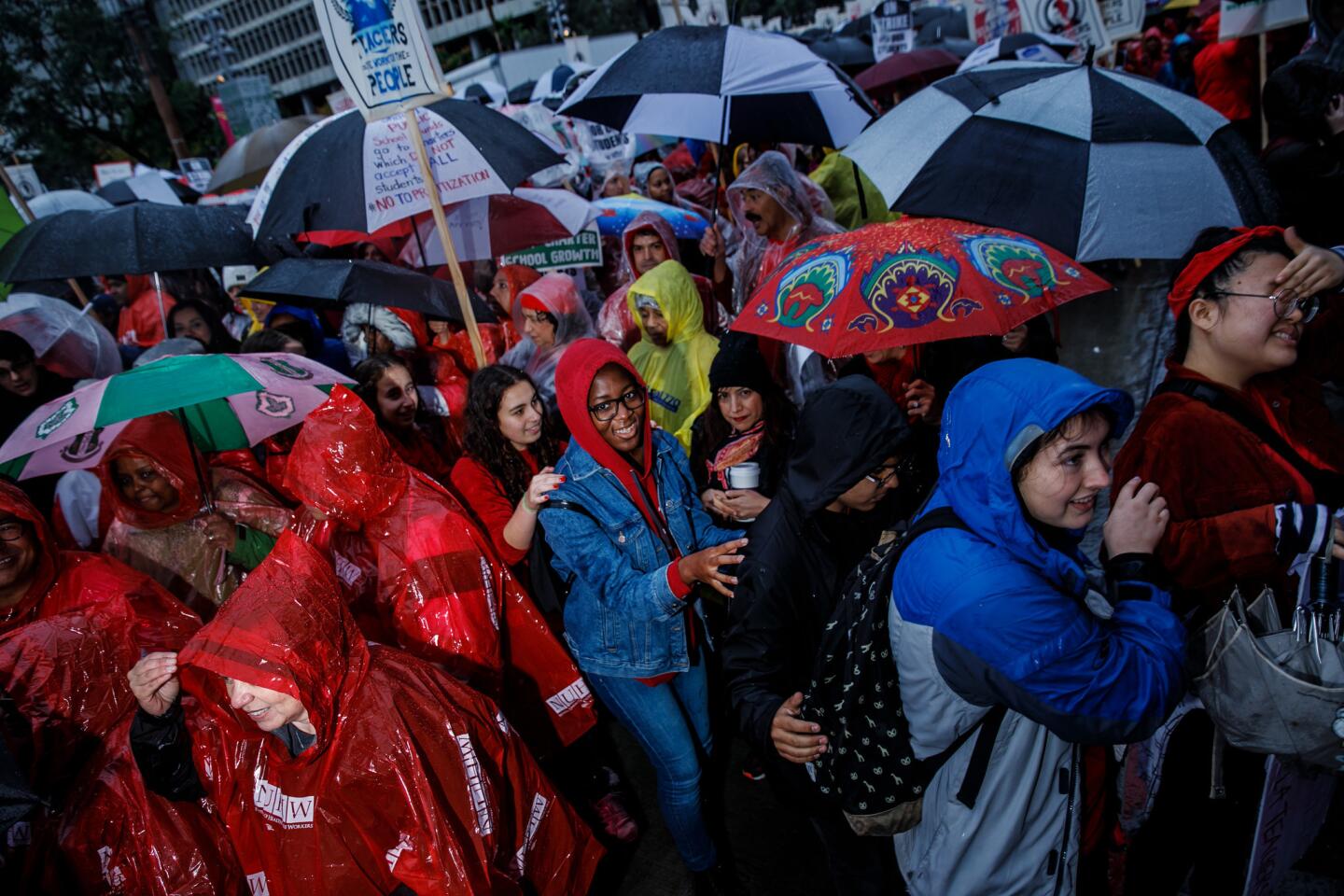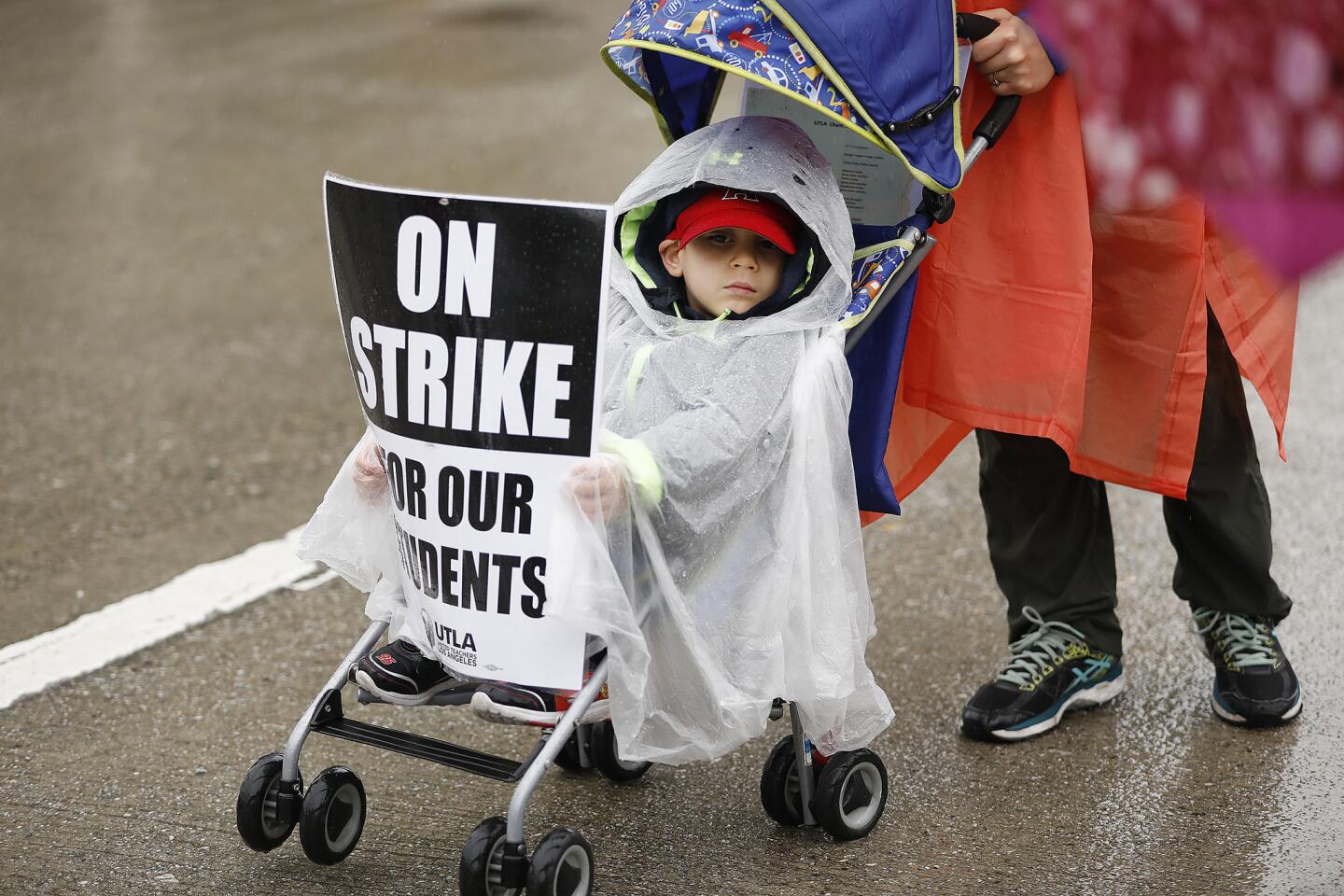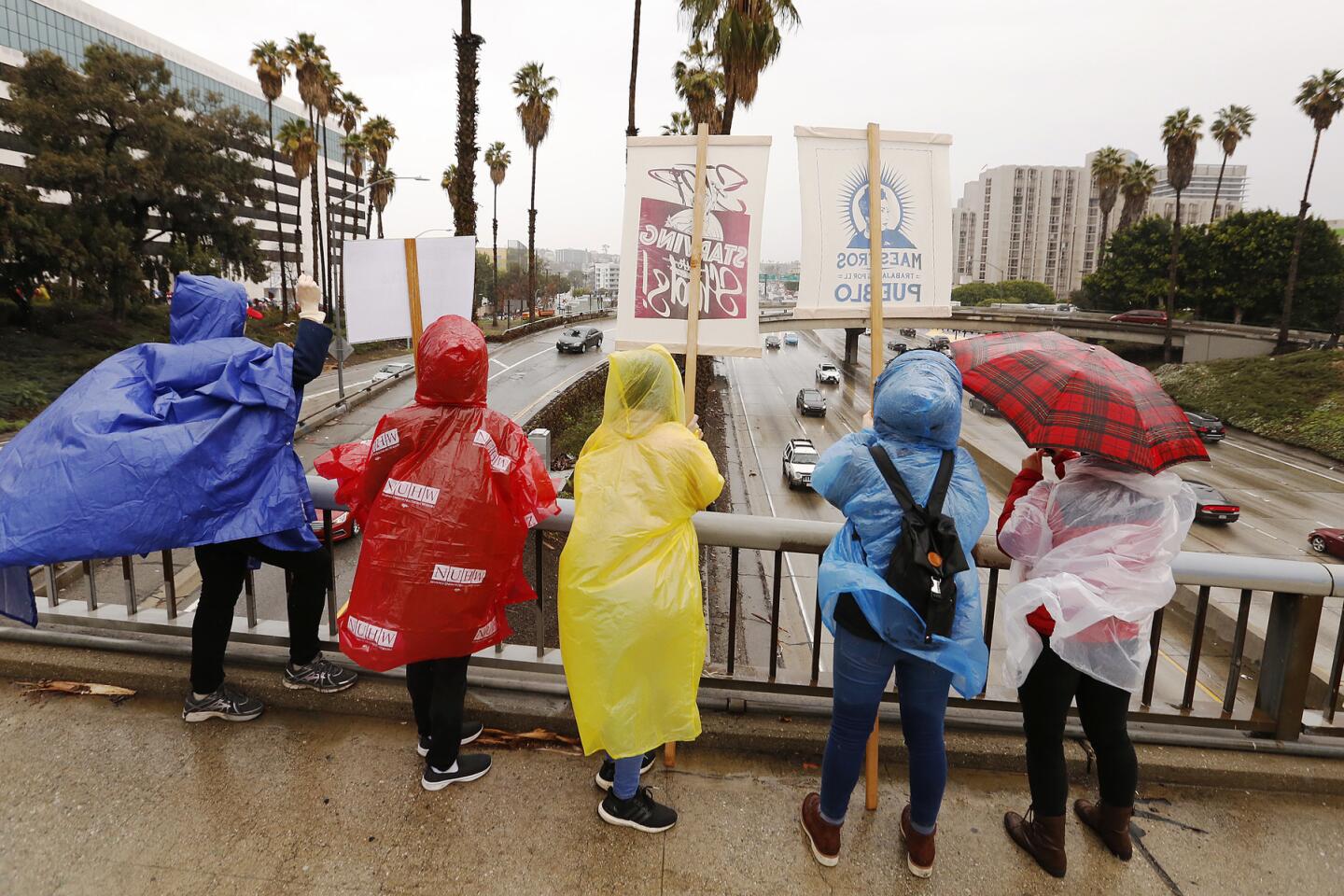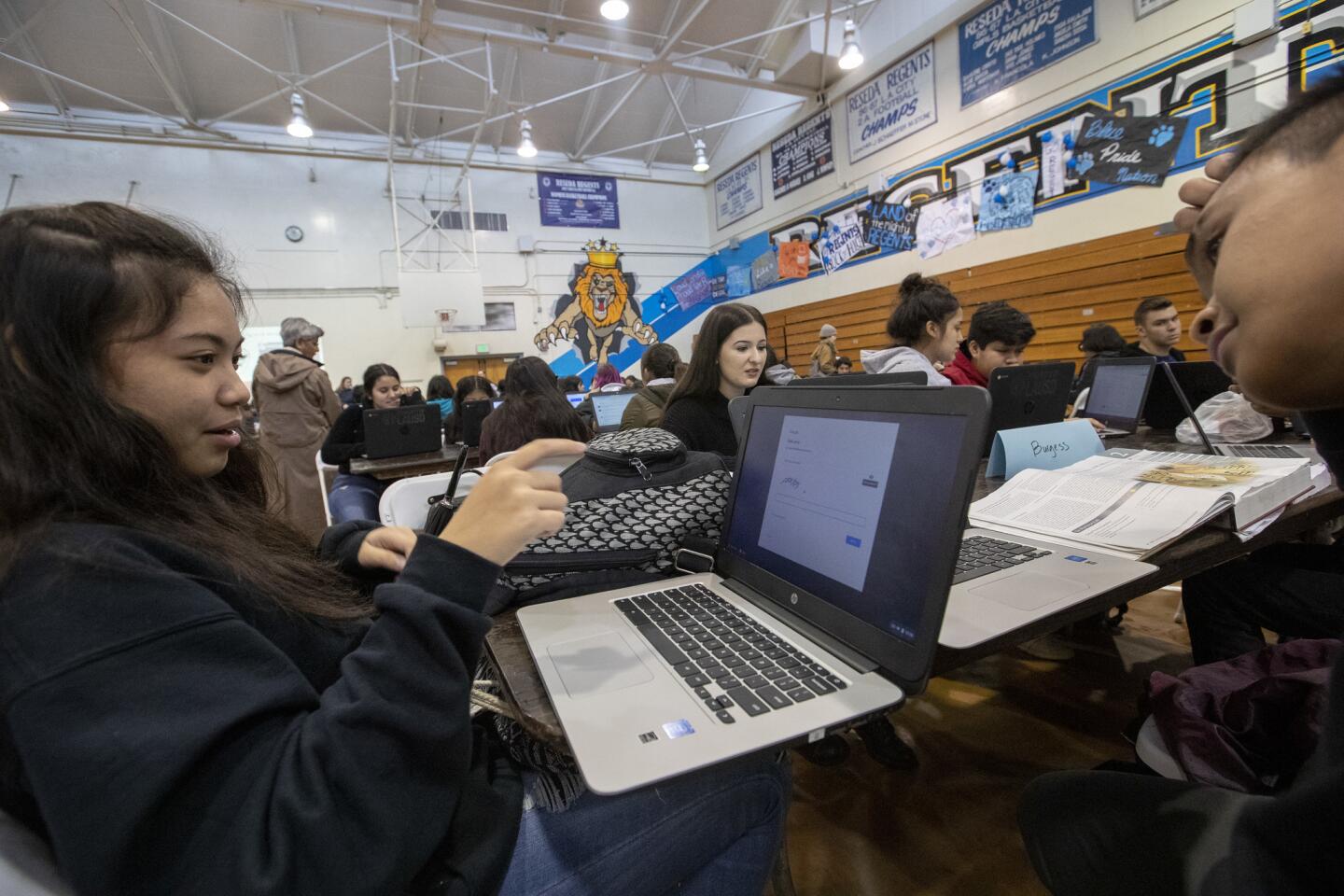L.A. teachers bask in support for strike, but pressure grows to settle amid financial losses
- Share via
It’s been a heady two days for striking Los Angeles teachers and their union leaders.
Rain failed to fizzle huge rallies. People brought free tacos and “Tofurky for Teachers” to the picket lines. And their strike became a cause celebre of liberal politicians such as Bernie Sanders, Elizabeth Warren and Alexandria Ocasio-Cortez.
It was all that L.A. schools Supt. Austin Beutner could do to get in a cautionary word in about the harm he said the strike was doing to the nation’s second-largest school district and its students.
But as the strike enters its third day — and a likely fourth and fifth — there will be increasing pressure for the union to settle as teachers lose salary, L.A. Unified loses money and the thrill wears thinner for families worried about lost learning time and how to balance childcare with work, politics with pragmatism.
‘Struggling’ with LAUSD teachers’ strike means starkly different things depending on your income »
A long strike could take a devastating toll on the finances and reputation of an already troubled district, which could make it more difficult for teachers to achieve their goals.
The outlines of a possible deal are painstakingly taking shape behind the scenes, but huge hurdles remain, including — as of Tuesday night — getting the parties to meet face to face for the first time since last week.
New elements that could be part of a deal include funding for a type of campus called a “community school,” a concept that both sides could support, said L.A. Mayor Eric Garcetti, who is trying to bring the two sides together. Such schools feature an array of social services, recreation programs, a rich curriculum and meaningful involvement by parents and teachers. An agreement also could include adding green space to campuses, a commitment for new mental health services and some measure — at some level of government — to impose more oversight over charter schools and possibly limit their growth.
“In broad terms, this is about much more than pay,” Garcetti said. “This is about the soul of our schools and the way L.A. does or does not build a culture to collectively invest in our future.”
The union and the district are close on salary, and the district, in its latest offer, said it would lower class sizes and hire more nurses, librarians and counselors for one year. Beutner said the district could afford no more without risking insolvency. The union responded last week that these steps were not enough.
Garcetti insisted the differences could be bridged fairly quickly with the parties coming together around common goals but that resources — and a political nudge — from the city, county and state could be needed to get to an agreement.
Making a deal would make sense because in some ways the strike has perhaps achieved a zenith, with high-fives from celebrities including actors Jaime Camil from “Jane the Virgin,” Marlee Matlin, Rachel Bloom and Jamie Lee Curtis.
Nearly 80% of Los Angeles County residents said they sided with L.A. Unified teachers, according to a survey released Tuesday by the Thomas and Dorothy Leavey Center for the Study of Los Angeles at Loyola Marymount University.
“The strike has strong support across the board,” said Brianne Gilbert, associate director of the center. “These results show the labor movement remains a powerful force in Los Angeles, where many families believe union organizing in other fields has improved their quality of life.”
The shelf life of this enthusiasm, however, is untested.
“We may see a different response to this question if the teachers remain on the picket lines for an extended period of time, and the realities of the work stoppage hit home,” Gilbert said.
At a Tuesday morning news conference, Beutner said the 31,000 members of United Teachers Los Angeles collectively were losing $10 million a day. The union represents teachers, nurses, librarians and counselors. On Monday, he said, the district lost $25 million because only about one-third of students showed up. That’s a net loss of $15 million.
In other words, the teachers could become victims of their own strike success. They more or less encouraged students to stay away to put pressure on the school system. But the financial pain could quickly cross over to teachers, as the district has less money with which to make a deal.
Attendance ticked up slightly on Tuesday, but there was no reason to think students would quickly return in large numbers, based on what parents such as Sandelle Kincaid experienced on Monday.
“Very little in the way of educational activity,” Kincaid reported from Reed Middle, a highly regarded school in Studio City. “At one point, they tried to show the movie ‘Christopher Robin,’ but the sound quality was so bad it couldn’t be understood. Couldn’t read because it was so loud, so the kids just played on their phones for the most part. P.E. was literally just walking around and around the gym — no equipment to play anything.”
It looked to her as though less than a third of students were present. “We kept him home today,” she said of her son, “and probably will for the rest of the week.”
On Tuesday afternoon, school board President Mónica García tried to sound a conciliatory tone, even calling the picketers “heroes.”
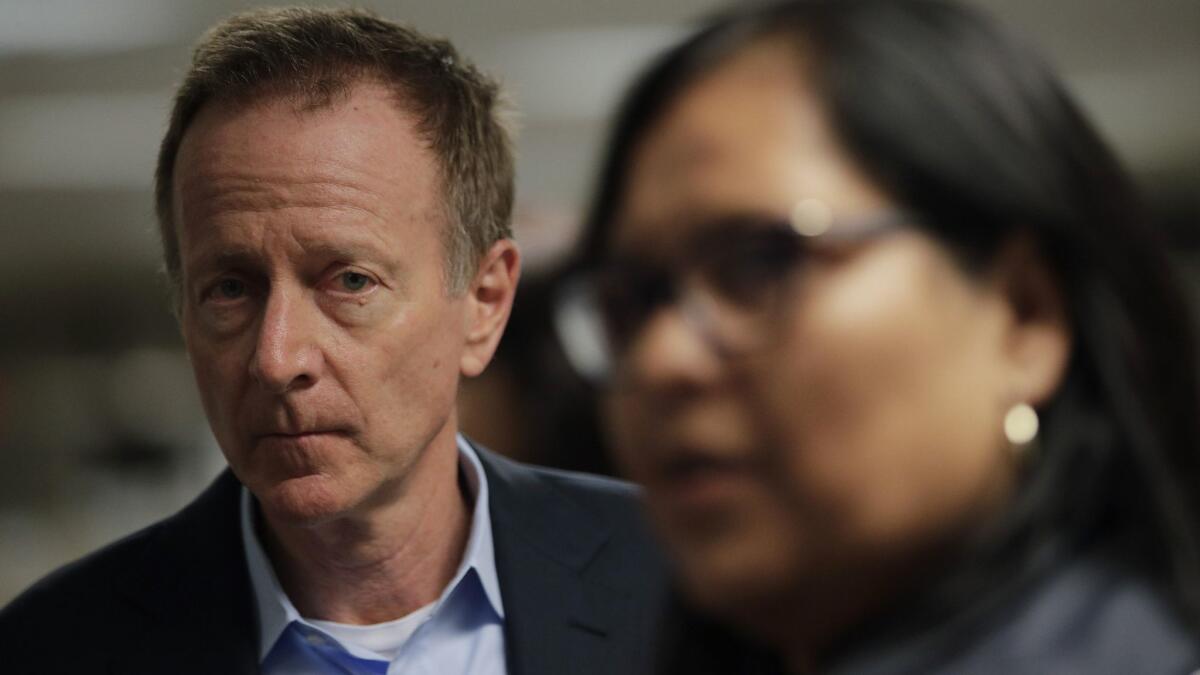
“Both on the inside and outside of schools, we are all on the kids’ side,” García said. “We must come together for those students and families who are counting on us to end the strike.”
Beutner said it was the teachers union that walked away from talks last week.
“As I’ve said repeatedly, anytime, anywhere, I’ll meet. Los Angeles Unified will meet to try to resolve this,” he said in the same news conference.
The superintendent abruptly walked out after three minutes of tense exchanges with reporters, as they shouted questions at his back.
The union on Tuesday broadened its job action as teachers began a strike at the Accelerated Schools, a local charter network with three adjacent schools south of downtown. The Accelerated teachers were working under a different contract, although still represented by United Teachers Los Angeles.
“This has been already an historic week for educators and for public education in Los Angeles,” said union President Alex Caputo-Pearl. He accused leaders of the district and the charter of “looking at teachers as disposable and not as indispensable. We’ve got to change that.”
Teachers also marched on the downtown offices of the California Charter Schools Assn., surrounding the office tower clad in the union’s bright red. Caputo-Pearl has called for a moratorium on new charters, which are privately operated, mostly nonunion and compete with district-run schools for students and the funding that follows them. Charters now enroll about 1 in 5 district students.
Myrna Castrejón, the head of the association, said her group opposed a moratorium on charters and that there was room for high-quality new schools of all kinds in neighborhoods where academic achievement remains low.
The union, she said, is unfairly singling out charters when the real problem is lack of funding for traditional and charter schools alike. In the push for more state money, at least, charters are speaking the same language as Beutner and Caputo-Pearl.
“I love the energy and all the passion and the sea of red that wrapped around our office out of concern for children,” Castrejón said. “But we should be marching together.”
Twitter: @howardblume
Twitter: @LATDoug
More to Read
Sign up for Essential California
The most important California stories and recommendations in your inbox every morning.
You may occasionally receive promotional content from the Los Angeles Times.
